
MAY 2024
www.vertexawards.org RETAIL BRANDS FASTER AND BETTER PLMA Amsterdam At-Show Issue Accelerate Corporate Sustainability Goals with Private Label SPONSORED BY
www.globalretailmag.com


Hundreds of Billions in Commerce
Here we are, back in Amsterdam, preparing for another few days of frenetic energy as thousands of exhibitors vie for the attention of tens of thousands of attendees. For retailers, there’s nothing that quite compares to the incredible array of suppliers that can offer unique solutions for your customers. For those suppliers, it would take years and years to meet and connect with this quantity and level of retailer. PLMA’s world of Private Label represents the enormity of our global industry.
Over the next year, these players will be responsible for hundreds of billions in store brands sales. We’ve learned that retail brands prosper even when the economy doesn’t. And, significantly, they remain so when the economy is strong. Why though? Here’s my theory - While A brands are backed by huge marketing money and other less than transparent influences, private brands take a different path.
Flash vs. Substance
You might say A brands have come to be seen as the loudmouth in the room—the bombastic one who never shuts up. But upon further examination, nothing much of value is being said. In some cases, they represent what ails our society: everybody shouting at each other…nobody listening.
Meanwhile, store brands simply move ahead with great design and branding, innovation, quality, and value.
Think of it in a political context. It’s the flashy, quick-tempered, reactionary frontman versus the calm, thoughtful, measured statesman. While perhaps a too-simple analysis of A Brands vs. Store Brands, the stats support my theory, and I like simple.
As you walk the many aisles, keep some of this in mind. You’ll be bombarded by aggressive salespeople and in-your-face marketing tactics. You’ll also notice some more reserved, quiet, and very successful companies. Decide which will be a more reliable partner, not just in the good times, but when you need them most.
Come by and say hello at Stand 2. C15. This will be my 22nd time exhibiting at PLMA, I’ve seen and heard quite a bit and would be delighted to engage in some insightful conversations with you.
Have a great show!
Kind regards,
Phillip Russo Founder / Editor phillip@globalretailmag.com


4 GLOBAL RETAIL BRANDS / MAY 2024
VIEWPOINT
28-29 May



Hall 1 - booths 1.E03 - 1.F96
Hall 7 - booths 7.Q02 - 7.R47 NON FOOD
Hall 12 - booths 12.E05 - 12.F44

PLMA
Amsterdam
Visit the Italian Pavilions RAI Exhibition Centre Amsterdam, The Netherlands
2024
FOOD
Download Italian Companies
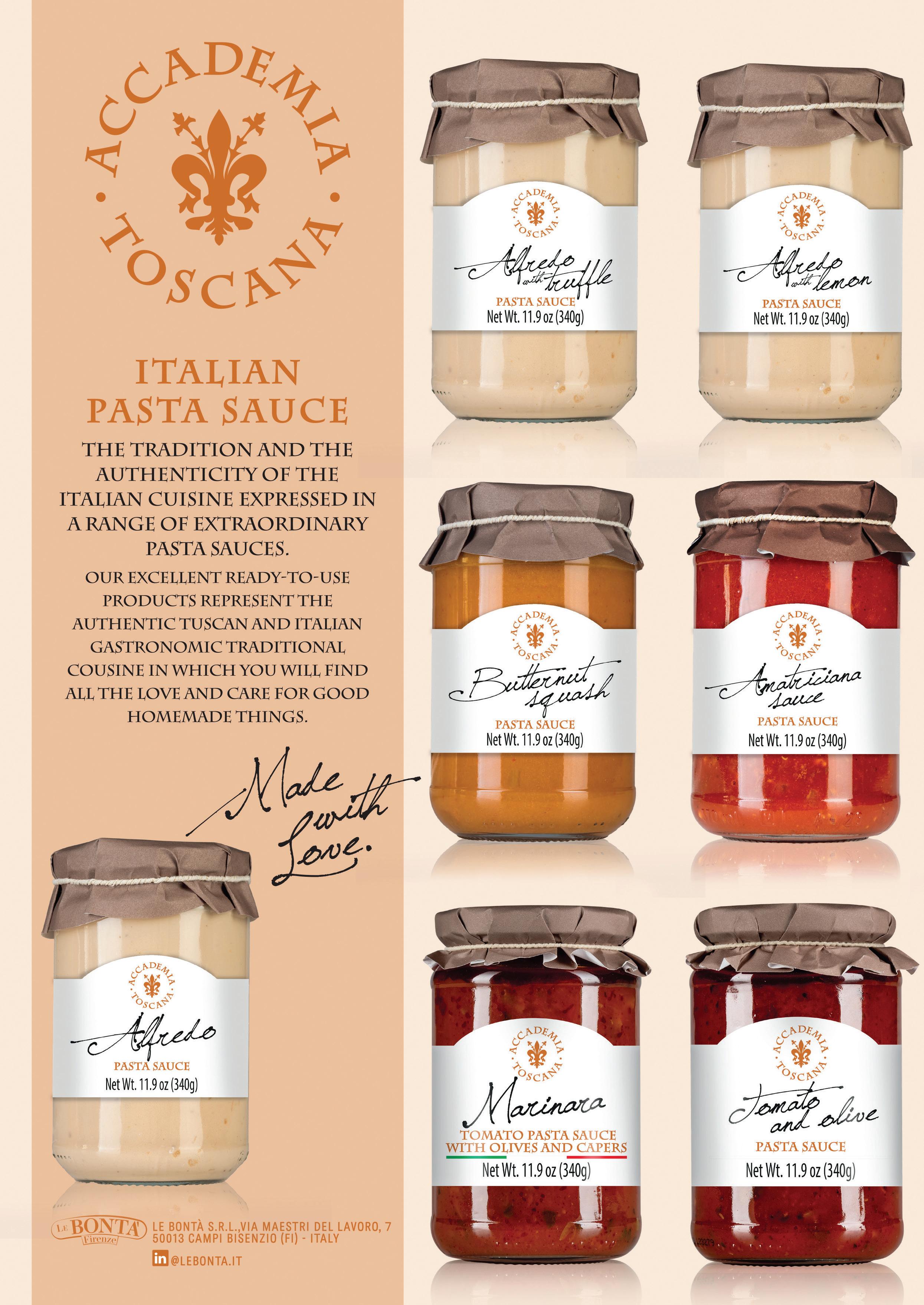
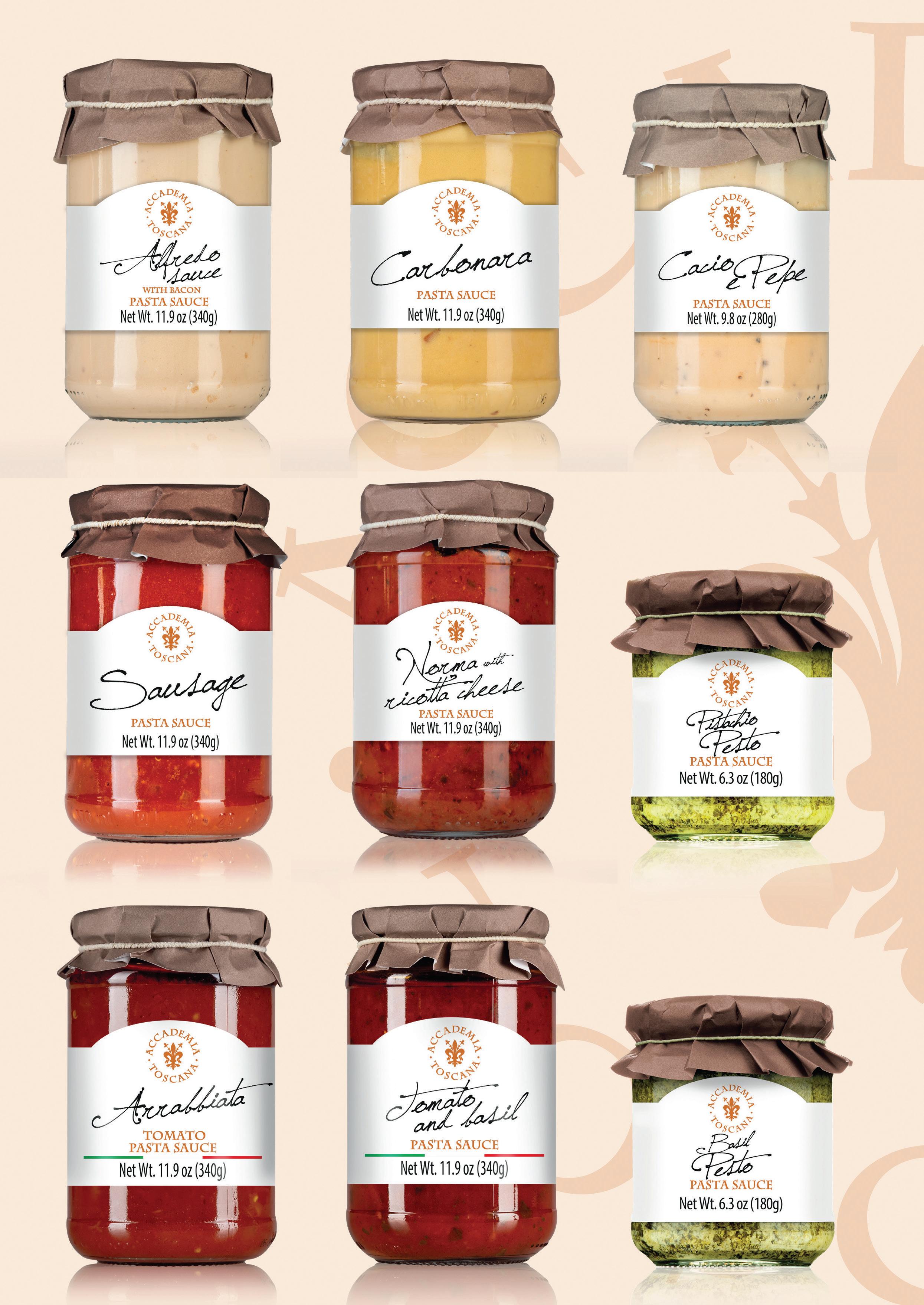
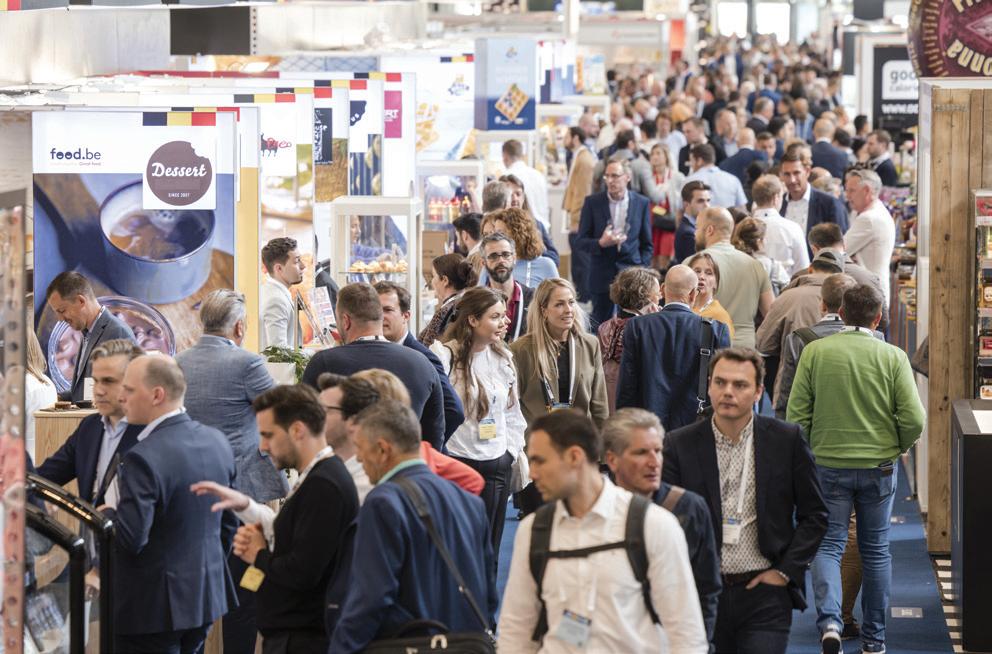
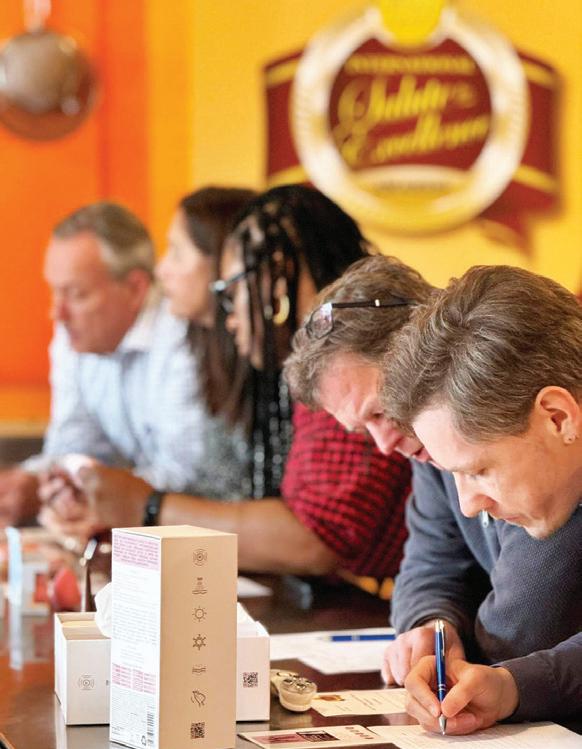

8 GLOBAL RETAIL BRANDS / MAY 2024 CONTENTS GLOBAL RETAIL BRANDS I MAY 2024 I VOLUME 12 I NUMBER 2 DEPARTMENTS 4 Viewpoint 12 Contributors 14 Events Calendar TRADE FAIRS 72 PLMA Chicago Trade Show 74 PLMA Summit Milan 75 SIAL, Paris 76 Marca by BolognaFiere 78 Cosmoprof North America, Las Vegas 81 Tuttofood, Milan SERVICES 82 Advertiser’s Index Next Issue Highlights HIGHLIGHTS 20 PLMA’s World of Private Label, Amsterdam 24 PLMA’s Salute to Excellence COVER FEATURES 48 Retail Brands Evolving Faster and Better Perry Seelert 56 Leveraging Global Retail Media Trends Amber Roberts COLUMNS 58 Private Label Packaging Trends Maria Dubuc & Katie Locke 60 6 Trends Revolutionizing Retailer-Owned Brands Christopher Durham 72 Accelerate Corporate Sustainability Goals with Private Label Cristina Lampert 64 Mastering Private Label Manufacturing in Retailing Stijn DeBats 68 Store Brands Wine Put to the Test Hans Kraak 20 48 24
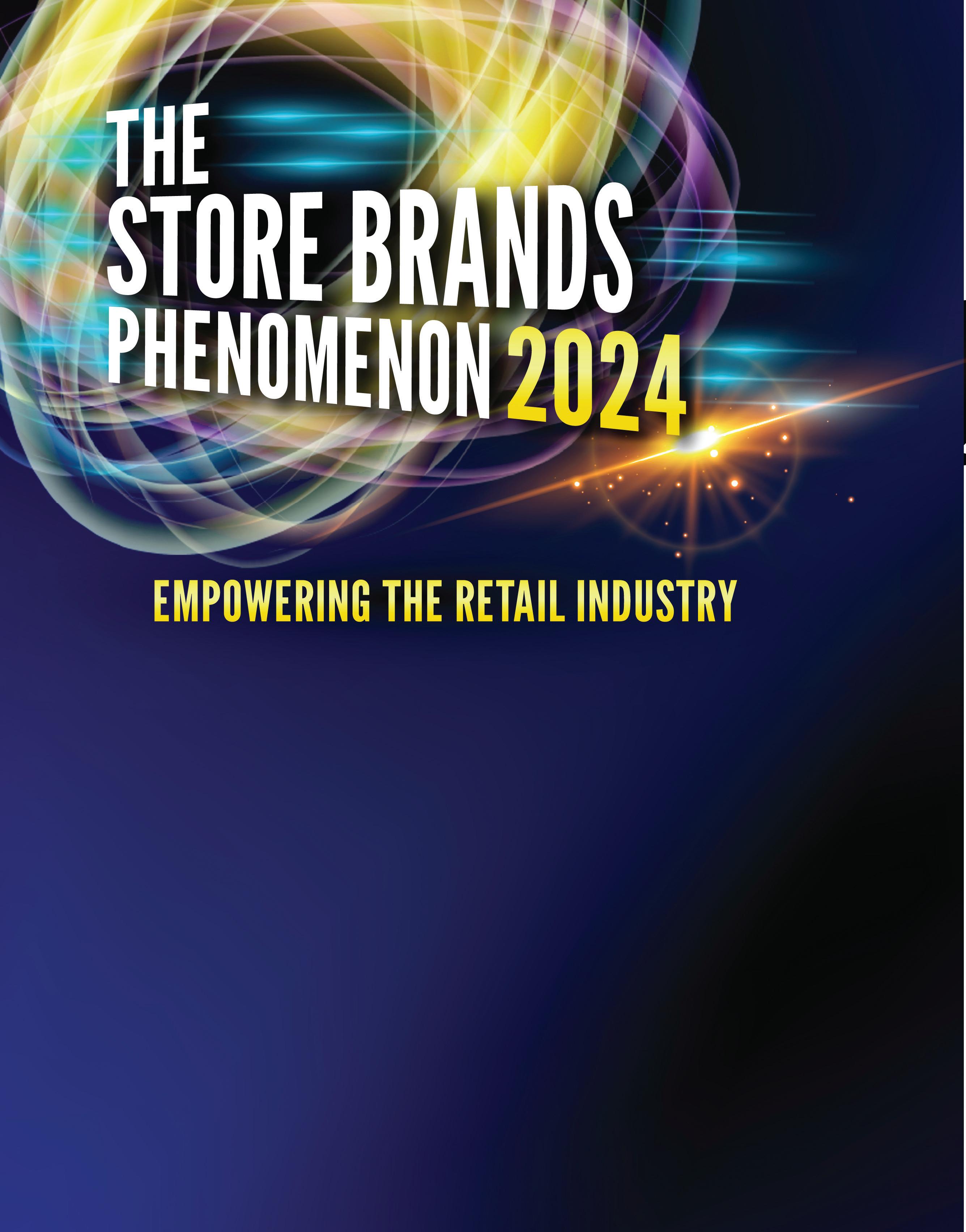
The “phenomenon” continues. Private label’s powerful growth in mainstream retail and expansion into other channels, including discounters, convenience stores, specialty chains, and online, set records last year in annual sales, at US$ 236B, and dollar and unit shares.
PLMA’s 2024 US Trade Show will empower retailers by presenting tens of thousands of food and non-food products from suppliers around the world. From wine and spirits to ethnic and gourmet food to frozen & refrigerated and sustainable packaging; from beauty & cosmetics and personal care to housewares and DIY, and more. For information, email info@plma.com.
CHICAGO PLMA’s PRIVATE LABEL TRADE SHOW Presented by the Private Label Manufacturers Association
17-19 NOVEMBER •
2024 I
Where Retailers Suppliers





12 I NUMBER 2 OF 4
Phillip Russo EDITOR / PUBLISHER phillip@globalretailmag.com
Jacco van Laar BRAND AMBASSADOR jacco@globalretailmag.com
Melissa Subatch CREATIVE DIRECTOR info@melissasubatchdesign.com
Andrew Quinn DIGITAL DIRECTOR andrew.quinniii@gmail.com
Luisa Colombo EUROPEAN DIRECTOR luisa@globalretailmag.com
Ana Maria Jimenez Aguilar BUSINESS DEVELOPMENT ana@globalretailmag.com
Sabine Geissler GREENTASTE.IT Italian Business Development s.geissler@greentaste.it
CONTRIBUTORS
Perry Seelert Emerge perry@emergefromthepack.com
Christopher Durham Velocity Institure cdurham@retailbrandsinstitute.org
Maria Dubuc Marketing By Design mdubuc@mbdesign.com
Hans Kraak Kraak Media kraakmedia@gmail.com
Elena Sullivan sullivan.elena@gmail.com
Tom Prendergast PLMA tprendergast@plma.com
Kevin Ryan, MS, PhD CEO, Malachite Strategy and Research kevin@malachite-strategy.com
Published, Trademarked and all rights reserved by: Kent Media
Phillip Russo, Principal 45 Upper Kent Hollow Road Kent, CT 06757 Tel. +1 917 743 6711
All rights reserved under the Library of Congress. No part of this publication may be r eproduced or transmitted in any form or by any means, electronic or mechanical, including photocopying and recording, or by any information storage or retrieval system, except as may be expressly permitted in writing by the copyright owner. Opinions expressed by contributors are theirs alone and do not necessarily reflect those of the publisher.
Global Retail Brands is published 4 times a year.
Editorial Submissions phillip@globalretailmag.com
Advertising
luisa@globalretailmag.com
Advertising
Subscription Information phillip@globalretailmag.com
MAY
VOLUME
EUROPE
Inquiries –
Inquiries
AFRICA, AMERICAS, ASIA, AUSTRALIA, MIDDLE EAST
–
phillip@globalretailmag.com
www.globalretailmag.com www.globalretailmag.com
& MARCH 2024 www.globalretailmag.com www.vertexawards.org PLMA BOOTH H-1506 2024 SUPPLIER GUIDE 10 Bold Predictions for the Food Industry Rise of the New Global Consumer Imitation, Borrowing and Originality OCTOBER 2023 TENTH ANNUAL VERTEX AWARD WINNERS www.globalretailmag.com www.vertexawards.org BEST OF SHOW PLUS CHOCOLATE GOED VERHAAL PLUS Retail B.V. The Netherlands Anuga, Cologne PLMA Chicago Preview Beyond The Numbers MAY 2024 www.globalretailmag.com www.vertexawards.org RETAIL BRANDS FASTER AND BETTER PLMA Amsterdam At-Show Issue Accelerate Corporate Sustainability Goals with Private Label SPONSORED BY NOVEMBER 2023 www.globalretailmag.com www.vertexawards.org PLMA Chicago It’s Beginning to Look a Lot Like Christmas The Not-So-Secret Secret Weapon for Retailers HALL 2, STAND 2.C15 VISIT US AT PLMA
Meet
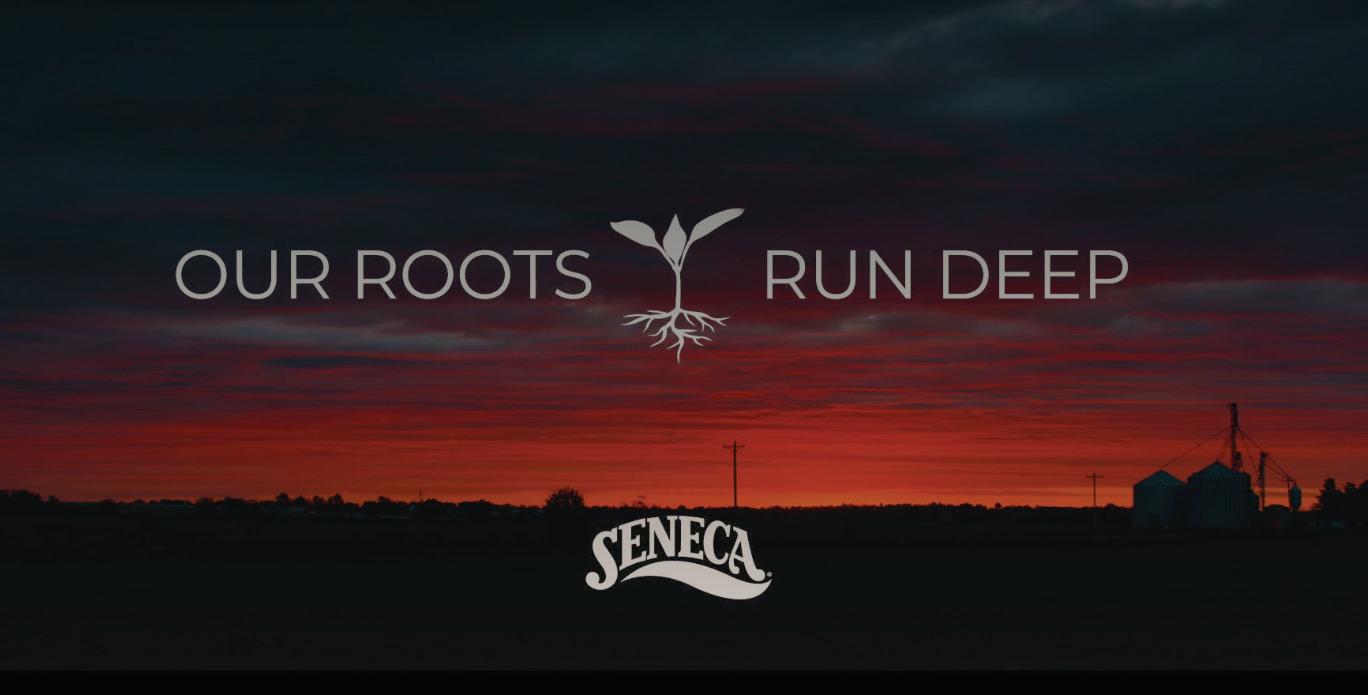
Everything we do is a root in the rich soil that takes strong relationships, knowledge, and timing to do it right. And it all starts with a single seed.
Seneca’s high quality produce is sourced from over 1,400 American farms—family farmers we have done business with for many years, and in some cases generations. Our motto of Farm Fresh Goodness Made Great echoes throughout our fundamental beliefs, which have been key to our success since 1949.
Next year, Seneca Foods will be celebrating 75 years in business. We have spent these years working hard to become one of the most highly integrated fruit and vegetable processing companies in the US. We manage many—and in some cases all—aspects of production, to provide families with a wide range of nutritious fruit and vegetable products that are safe, satisfying and sustainable.
We do it together, the same way we have for over seven decades. Because our roots run deep.
US IN BOOTH #F200


Seneca, we're still doing things the way we always have - the right way. Think globally, grow locally.
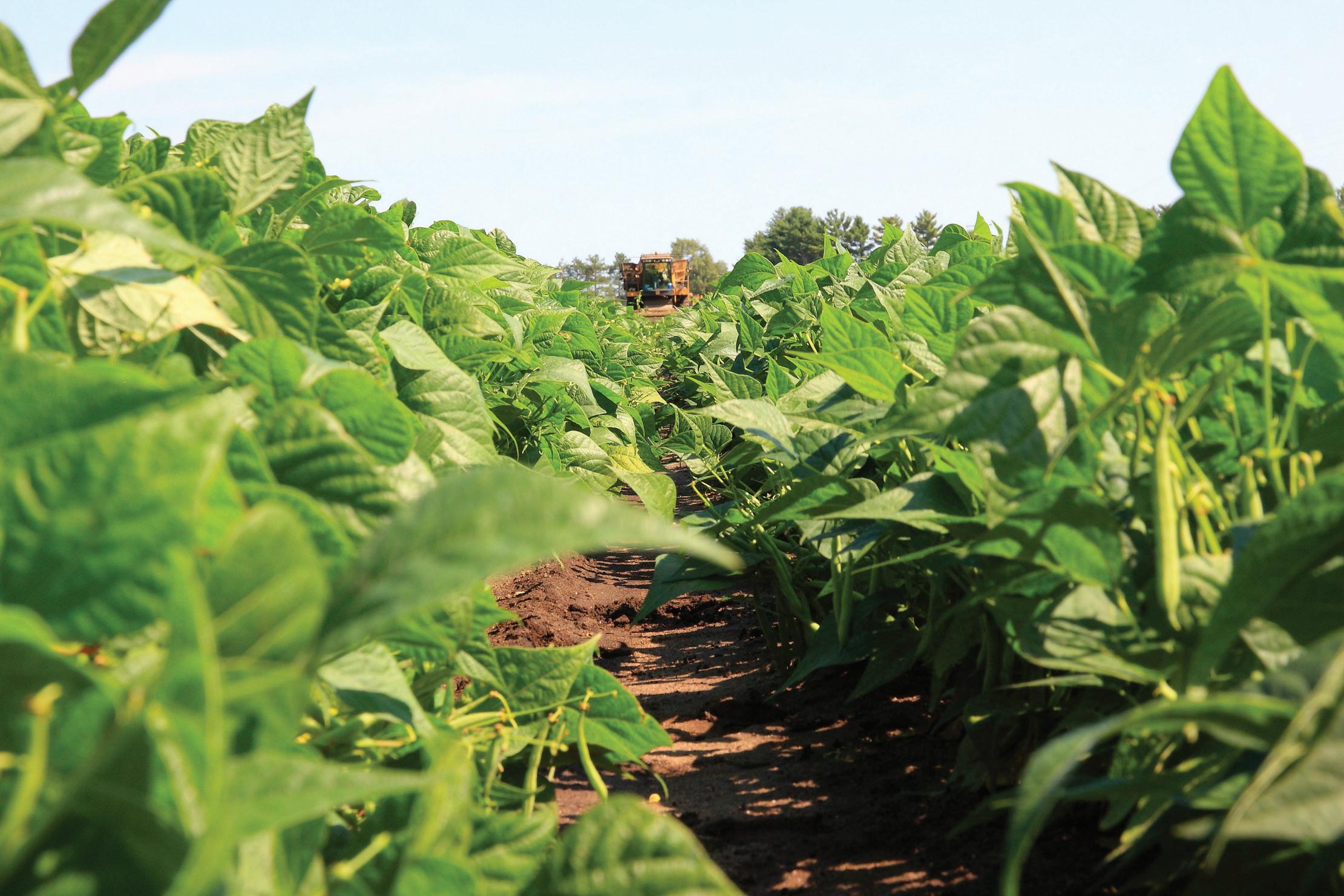
AMERICAN
99% Please visit www.SenecaFoods.com to learn more about our company, people and products. VISIT
Please visit www.SenecaFoods.com to learn more about our company, people and products.
of our produce is grown by
FARMERS

MARIA
DUBUC
President of MBD, is a creative and workflow expert in the retail landscape, Maria’s 30-year career translates branding experiences into eye-catching design that is unique and distinct for each client. he has created new private brands and redesigned/repositioned existing brands with leading retailers, while also implementing workflow management systems specifically tailored to the clients’ needs. Current clients include The Home Depot, Smart & Final, PetSmart, 7-Eleven, PriceSmart, BJ’s Wholesale Club, Sprouts Farmers Market, WinCo Foods, Natural Grocers and more.

STIJN DE BATS
Managing Partner at Cibus Nexum and a food technology expert with 25 years of experience in the food industry and private label manufacturing projects.Cibus Nexum is an independent service provider, specializing in connecting brand owners, retailers, and producers through innovative solutions and partnerships.

CHRISTOPHER DURHAM
President of the Velocity Institute
Prior to this he founded the groundbreaking site My Private Brand. He is the co-founder of The Vertex Awards. He began his retail career building brands at Food Lion and Lowe’s Home Improvement. Durham has worked with retailers around the world, including Albertsons, Family Dollar, Petco, Staples, Office Depot, Best Buy, Metro Canada. Durham has published seven definitive books on private brands, including Fifty2: The My Private Brand Project and Vanguard: Vintage Originals.

REBECCA HAMILTON
Rebecca is the CEO of award-winning Fish Agency and sister agency Whitespace Brands Inc. With over 30 years of experience, she has established herself as one of North America’s leaders in the fields of strategic branding, retail design, and communications for clients in the retail sector. Under Rebecca’s oversight, the Fish Agency brings brands to life at retail and has consistently delivered high ROIgenerating retail experiences for its clients. She mentors and leads highly experienced and integrated teams that provide store design, package design for CPG and private brands, digital/social initiatives, “phygital” experiences, and advertising services.

HANS KRAAK
Hans Kraak is educated in biology and journalism and wrote three books about nutrition and health. He worked for the Dutch ministry of Agriculture, Nature and Food quality and the Netherlands Nutrition Centre. As editor in chief he publishes in the Dutch Magazine for Nutrition and Dietetics, as a food and wine writer he published in Meininger’s Wine Business International and reports for PLMA Live EU and PLMA USA.

CRISTINA LAMPERT is Director of Growth and Innovation at HowGood, a third party research group with the largest food ingredient sustainability database, where she enables major retailers and consumer packaged goods with a sustainability impact platform that models environmental and social impact based on their ingredients and sourcing locations.

KATIE LOCKE
If you’ve ever met Katie, you’ve seen or heard her excitement for building or rebuilding brands. Her passions also include just about every facet of food and eating experiences. For the past 9 years, Katie has worked in Sales & Marketing for Marketing by Design (MBD), a branding and packaging design agency specializing in high volume retailer programs.

AMBER ROBERTS is the Partnership Director at Threefold, the global retail media expert agency responsible for 10+ Retail Media Networks. With nearly two decades in retail, including a tenure at Kroger, Amber’s expertise drives the success of omnichannel marketing strategies for retailers and brands across categories.

PERRY SEELERT
A retail branding and marketing expert, with a passion for challenging conventional strategy and truths. Perry is the Strategic Partner and Co-founder of Emerge, a strategic marketing consultancy dedicated to helping Retailers, Manufacturers and Services grow exponentially and differentiate with purpose.
12 GLOBAL RETAIL BRANDS / MAY 2024 CONTRIBUTORS IN THIS ISSUE









MAY
PLMA’S WORLD OF PRIVATE LABEL
Amsterdam 28 -29 MAY www.plmainternational.com
JUNE
IDDBA
Houston, TX
9 - 11 JUNE www.iddba.org

OCTOBER
SIAL Paris, France 19 - 23 OCTOBER www.sialparis.com

VELOCITY SUSTAINABILITY CONFERENCE
Phoenix, AZ 22 - 23 OCTOBER www.velocityinstitute.org

SUMMER FANCY FOOD SHOW
New York, NY 23 - 25 JUNE

FOOD TAIPEI
Taipei, Taiwan 26 - 29 JUNE
foodtaipei.com.tw/en/index.html
JULY
COSMOPROF NORTH AMERICA
Las Vegas, NV 23 - 25 JULY www.cosmoprofnorthamerica.com
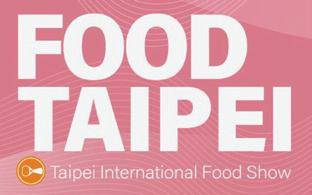
PLMA’S PRIVATE LABEL SUMMIT
Milan, Italy 29 - 30 OCTOBER www.plmainternational.com
NOVEMBER
COSMOPROF ASIA
Hong Kong, China 12 – 15 NOVEMBER www.cosmoprof-asia.com


PLMA’S US TRADE SHOW
Chicago 17 - 19 NOVEMBER www.plma.com
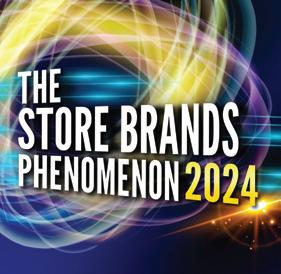
14 GLOBAL RETAIL BRANDS / MAY 2024 INDUSTRY EVENTS






TECHNICAL SCIENTIFIC COMMITTEE


SHOW YOUR BUSINESS POTENTIAL www.marca.bolognafiere.it 15-16 January 2025 21 st EDITION
US Store Brand Sales
Off
to Good Start in 2024
Rebounding from a disappointing last few months of 2023, US store brand sales have started off the new year quite well. The products outperformed national brands in both dollars and units over the first quarter of 2024, according to Circana, PLMA’s provider of exclusive sales data in the US.
Private label dollar sales were up 1.8% compared to an increase of 1.2% for national brands. Over the first three months, total store brand sales were about US 60bn, a potential harbinger of another record year, as was the case in 2023 when all-time highs were set in annual sales, at $236 billion, as well as dollar share (18.9%) and unit share (20.7%).
Over the last three months of 2023, store brands were mired in sluggish figures. Dollar sales were, respectively, plus 0.3%, flat, and minus 0.9%; while unit sales were down 0.6%, down 0.5% and down 1.2%.

“It’s very reassuring and gratifying to see our sales numbers have turned positive again,” says Peggy Davies, PLMA president.
“After the topsy-turvy, post-pandemic period, we appear to have settled back into store brand’s traditional sales performance of solid, low to mid-single digit gains. More than one of every five food and nonfood grocery items sold in the US is a store brand.”
DOLLAR SALES
As of…
The Q1 2024 results in unit sales were even more impressive. Store brands rose by 2.3% while national brands fell 0.9%. As a consequence, store brand market share of both dollars and units increased.

UNIT SALES
as of…..
Looking at the results in the individual product departments for the first quarter of 2024, the leading gainers in store brand dollar sales were Beauty, up 7.9%; followed by General Food, ahead 5.8%, and Beverages, which rose 3.3%. Pet Care was up 2.9%, Home Care 2.7%, Frozen 2.3%, Home 2.2%, and General Merchandise 1.5%. Refrigerated slipped 0.6%.
For complimentary US monthly store brand and national brand sales data, and other actionable statistical information, PLMA members and retailers can sign in at plma.com.

18 GLOBAL RETAIL BRANDS / MAY 2024 NOTABLE
DATE PL DOLLAR SALES PL,DOLLAR VS YA% NB VS YA % 1/28/24 $19,998,014,551 2.1% 1.6% 2/25/24 $20,117,529,336 1.2% 0.9% 3/24/24 $19,957,711,437 2.2% 1.2% TOTAL $60,073,255,324 1.8% 1.2%
DATE PL UNIT SALES PL UNIT VS YA% NB VS YA % 1/28/24 5,144,354,509 3.5% -0.9% 2/25/24 6,067,096,002 1.8% -1.2%
1.7% -0.5% TOTAL 16,255,729,950 2.3% -0.9%
3/24/24 5,044,279,439




PLMA’s World of Private Label:
Experience the Excitement
May 28 and 29 at the RAI Amsterdam Convention Center
More than 2,950 exhibitors from more than 73 countries will fill over 43,500 m2 of exhibit space at PLMA’s 2024 World of Private Label International Trade Show, May 28 and 29 at the RAI Amsterdam Convention Center.
The show floor will span 14 halls, including nine for food and five for non-food. It will feature 67 national and regional pavilions.
“Our high-impact global event provides a dynamic two-day platform for more than 28,000 private label professionals from 120 countries to connect, source, and grow,” said PLMA President Peggy Davies. “The innovation unveiled for food and non-food products and packaging on

the show floor and in Idea Supermarket will strengthen the already booming private label industry.”
Products on display will include fresh, frozen, and refrigerated food, dry groceries, and beverages, as well as non-food categories, including cosmetics, health and beauty, household and kitchen, garden supplies, housewares, and more.
Among the product trends on the show floor:
• Sustainable Claims 39% or 1,150+ exhibitors
• Dietary Needs 31% or 900+ exhibitors
• Vegan, Plant-Based & Vegetarian 22% or 650+ exhibitors
• Organic 26% or 750+ exhibitors

A popular part of the trade show is the innovation and new product development area known as the Idea Supermarket. This section features private label ranges from 64 supermarkets, hypermarkets, discounters, specialty stores and drugstores around the world. Also in this area is the New Product Expo, which will feature 500+ new products developed by exhibitors. Plus, there will be a display of winning products from retailers that won a 2024 International PLMA Salute to Excellence Award for private label innovation.
The pre-show seminar program on Monday, 27 May, will include workshops led by industry experts on relevant topics. Participation in the seminars and workshops is free to all registered retailers, exhibitors, visitors, and industry professionals.
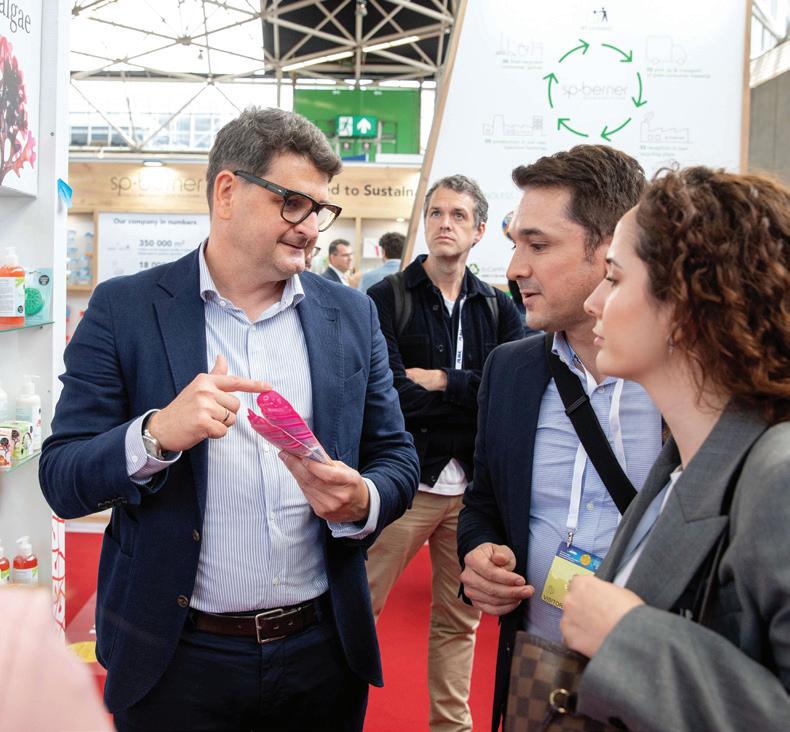

20 GLOBAL RETAIL BRANDS / MAY 2024
NOTABLE

Free Workshops & Pre-Show Seminars
Monday 27 May from 13.00 to 16.00 Forum Centre, RAI Amsterdam Convention Center
WORKSHOPS:
13.00 – 14.00 (pre-registration required)
GETTING TO YES
Strategic Partnership and Creating Mutual Value
A 50-minute workshop where you will be equipped with practical tools and insights to build sustainable strategic partnerships in the realm of Private Label.
Speaker: Erik Aapkes, Managing Partner, Blueprint Europe
PACKAGING & DESIGN
"Unboxing the Future: The Evolution of Packaging Design”
Stay ahead of the curve with insights into emerging trends in packaging design and technology, ensuring your brand resonates now and in the future.
Speakers: Loe Limpens & Sabine Louet Feisser, Yellow Dress Retail
Pre-Show Seminar Programme
14.00 – 16.00
(open to all registrants with a 2024 badge)
Announcing the Winners of the 2024 Int’l PLMA Salute to Excellence Awards
Impression of the 2 testing and tasting days, selecting the best of the best in private label, including the revelation of the winning products, honoring retailers for innovation and quality in private label products and packaging.
Private Labels:
Transformation for Growth
The session examines the retailer-led transformation of private labels in Europe and beyond, its impact on category development and consumer behavior, and opportunities for growth in 2024 and 2025. Circana will provide a forecast based on a proprietary model that takes into account a robust set of factors defining CPG category development.
Speaker: Ananda Roy, SVP Thought Leadership Europe, Circana
Top Global Consumer Trends Report 2024
An overview of the trends expected to have the most impact in 2024 and the implications for business, with supporting data. These trends provide insight into changing consumer values, exploring how consumer behavior is shifting and causing disruption for businesses globally.
Speaker: Ana Tique, Client and Insight Consultant, Euromonitor

RETAILER INSIGHT
An insight look at Picnic and COOP Italia.
PICNIC
“The story of Picnic’s own brand”
An inside look in Europe’s fastest growing and trendsetting online supermarket with inspiring insights of Picnic’s design and packaging process.
Speakers: Vibeke van der Bilt, Business Lead Private Label, and Fleur Randag, Business Lead Private Label, Picnic
COOP ITALIA
“ Coop and its Revolutionary Approach to Private Label”
Learn about its dynamic exploration of real-world success, grounded in practical insights as one of the largest established retailers in Italy.
Speaker: Paolo Bonsignore, COO, Coop Italian Food
PLMA Idea Supermarket® Area of Innovation, NPD and Inspiration
New Product Expo showcases the newest products developed by this year’s exhibitors. On display are nearly 500 of the latest innovations in the private label industry, from new products and flavors to marketing to packaging.
Retail Trends display the latest developments of private label ranges of 60+ retailers worldwide, conveniently presented in one location. The aisles provide a world tour of trends and new launches by retailers around the globe.
2024 International PLMA Salute to Excellence Awards. The Awards give recognition and honor retailers for innovation and quality in the creation of their private label programs. All award-winning products are displayed in the PLMA Idea Supermarket. continued on next page >
www.globalretailmag.com 21
continued from previous page
AT A GLANCE: PLMA’s World of Private Label
OPENING HOURS:
28 May: 09.00 – 18.30
29 May: 09.00 – 16.30
EXHIBITOR PROFILE:
Manufacturers of private label FMCG food and non-food products.
PAVILIONS:
67 national and regional pavilion organizers from 40 countries.
VISITOR PROFILE:
Trade professionals from 120+ countries, including buyers from supermarkets, hypermarkets, discounters, drugstores, and department stores, as well as importers and exporters, manufacturers, consultants, sales agents, and packaging & design experts.
HALLS:
9 Food halls and 5 Non-Food halls, covering all 3 complexes of RAI Amsterdam. Halls 1-8 and 14 accommodate the Food Section, Halls 8-12 accommodate the Non-Food Section.
FOOD SECTION
Beverages
Snacks
Confectionary
Shelf Stable Products
Bakery Products
NON-FOOD SECTION
OTC-Products & Healthcare
Baby Care accessories
Feminine Hygiene
Toiletries
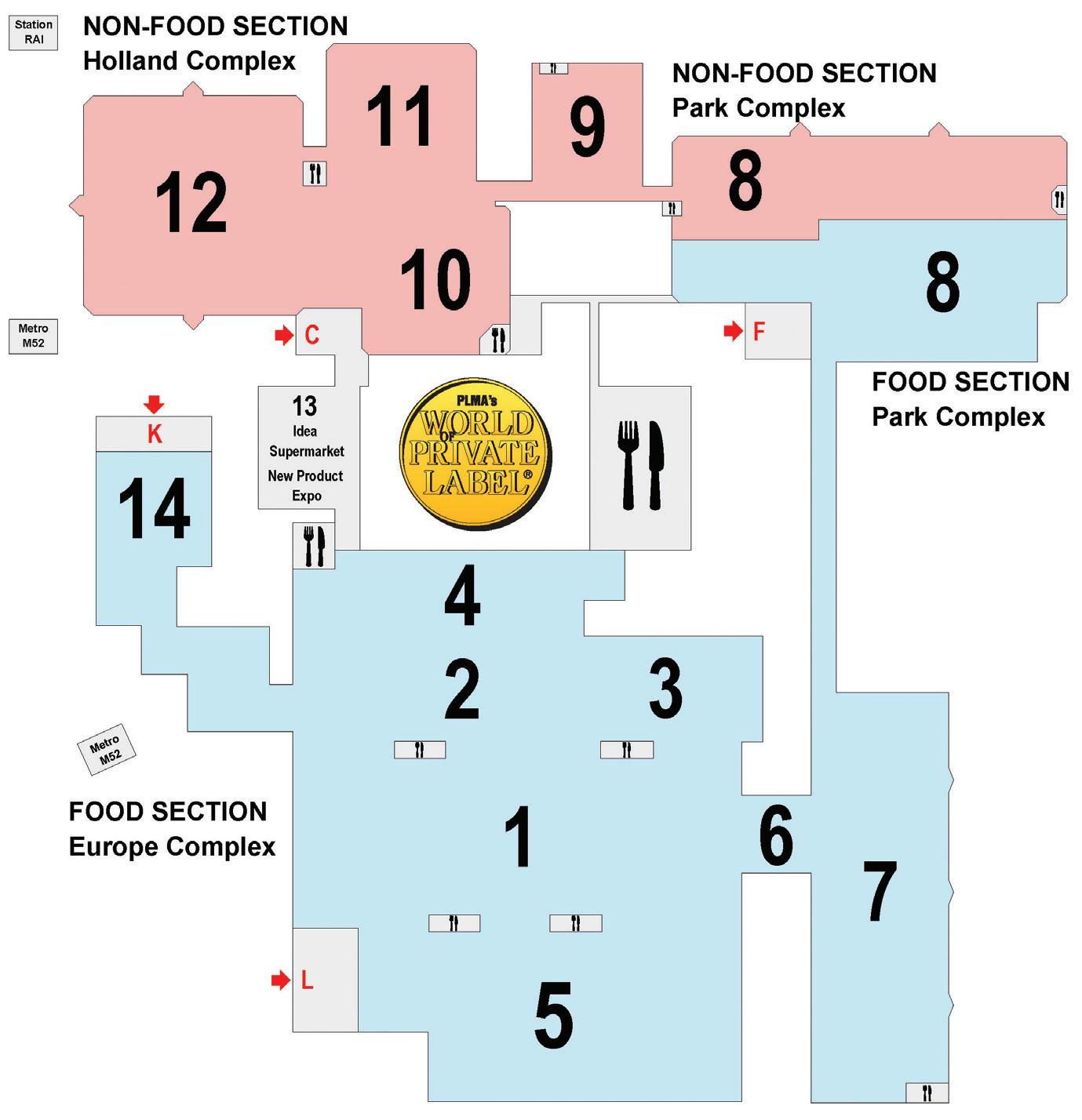
Sauces & Spreads
Pet Food
Fruits & Vegetables
Meat, Poultry & Fish
Ready Meals
Cosmetics
Personal & Leisure
Hair Care & Skin Care
Household Products
Organic, Health &Dietary Products
Diary Products
Oils, Dressing & Seasonsings
Ingredients & Raw Materials
Paper & Plastic Products
Housewares & DIY Products
Pet Products/Accessories
Auto Care
22 GLOBAL RETAIL BRANDS / MAY 2024
NOTABLE
Achieving accelerated growth through customer obsession
To truly stand out in a crowded market, food and beverage brands need to connect rapidly with today’s consumers.
How Prof. Consulting Group can help brands thrive
As award-winning international Food consultants, we help food & beverage brands grow fast, through consumer-focused outcomes. With services including developing innovative growth strategies, leading responsible sourcing, trade mission facilitation and contract manufacturing programs or offering practical advice on accelerating your brand’s ESG journey, as you target new markets Prof. has the expertise to take your business to the next level.
A local business with international reach
Through our international offices in the UK and Australia, we are strategically positioned to target success in high-growth markets.
If you’re a food and beverage business looking to take your passion to the next level, contact Prof. Consulting Group. Together, we can bring your adventures to life and create food brands that resonate with consumers everywhere.

www.profcg.com
UK Email: hello@profcg.co.uk Tel: +44 208 616 7202 AUS Email: hello@profcg.com Tel: +61 180 000 3130
2024 International PLMA Salute to Excellence Awards
Show Retailers’ Support To Shoppers
Shoppers can rely on retailers supporting them in healthy and sustainable lifestyles while keeping an eye on their budgets. Trends in the 2024 International PLMA Salute to Excellence Awards are use of recycled materials, attention for origin and optimized quality and affordability.
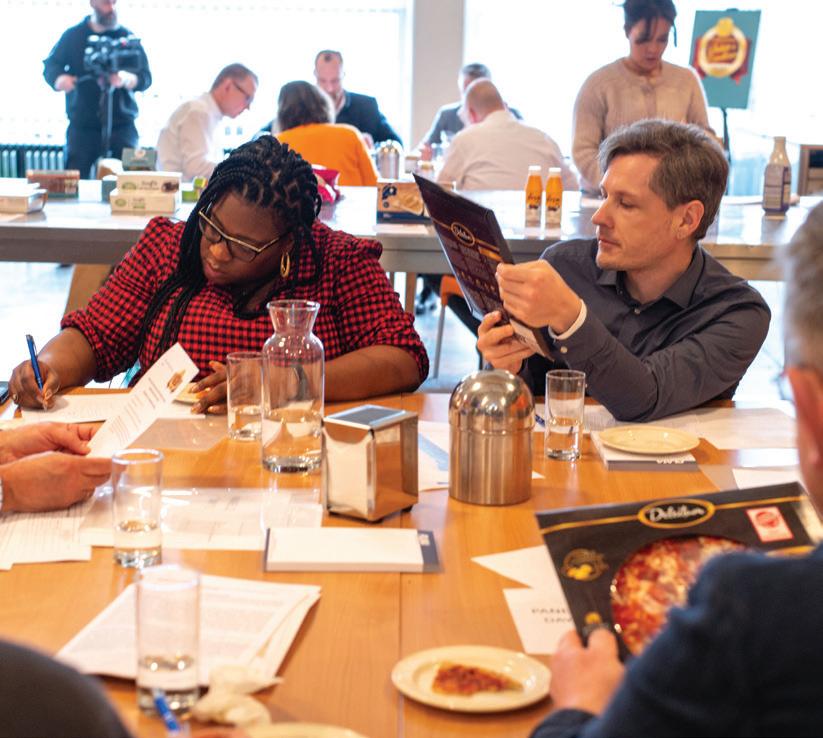

Consumers are capricious. That’s why private label offerings cater to shoppers who are both healthconscious and keen on magic moments of indulgence. Consumers also care for the planet. That’s why innovative plant-based private label items have been introduced, helping shoppers with diets that are sustainable and healthy. Such excellent new items, along many more, have been rewarded with an International Salute to Excellence Award.
In this year’s edition, over 550 new private label items from 72 retailers in 23 countries were submitted for judgement. An international panel of judges – including former retailers, chefs, marketing professionals, nutritionists, and journalists – evaluated these items in intensive sessions. This resulted in 98 food and non-food winners of the International Salute to Excellence Awards.
99 winners by 43 retailers from 23 countries
These winners were introduced by 43 retailers from 23 countries. Most award winning private labels (19) were introduced last year in Germany, followed by Denmark and Italy with 13 Salutewinners each. Dutch and French retailers gained 7 awards each, while retailers in Spain, Portugal and Ireland were given 6 awards respectively. The other awards were divided between retailers from United Kingdom, Norway, Czech Republic, Poland, Türkiye, Ukraine, China, South Africa and Thailand.
High-quality products at affordable prices remain a focus area for retailers who clearly respond to the needs of today’s consumers. “These retailers have successfully responded to the changing wants and needs of today’s shopper,” said PLMA President Peggy Davies.
24 GLOBAL RETAIL BRANDS / MAY 2024
High-quality products at affordable prices remain a focus area for retailers who clearly respond to the needs of today’s consumers.

“They are providing not just quality and affordability but also innovative food and non-food products that reflect current lifestyle trends.”
A closer look at winning retailers learns that the German Rewe Group gained most awards for private labels introduced in its Rewe supermarkets and Penny discount stores. The 9 Salute to Excellence awards for Rewe Group clearly demonstrates the retailers’ innovative performance in new product development. Also from Germany is the drugstore chain Rossmann, who gained 6 awards, just like the Irish retailer Musgrave.
The Netherlands hosts 3 retailers who submitted their new private label items for judgement. The Dutch branch of ALDI (Nord) achieved 4 award winners, while drugstore retailers Etos (Ahold Delhaize) and Kruidvat (AS Watson) were honored in total with 3 awards.
Continente from Portugal, and the Danish retailers REMA 1000 and COOP each walked away with 5 awards. Auchan and Carrefour Group were honored with 4 awards each.
Italy had the largest presence of retailers in the competition and divided the 13 awards between COOP Italia, CRAI, Despar and PAM Panorama, MD, Végé Retail and Vega Soc. Coop. In Spain EROSKI Desarrollo de Marcas and Carrefour Spain divided the 6 awards.
Wines
This balance between affordability and quality is also found at the wine awards. Judges tasted over 130 wines divided in some twenty categories. 14 retailers from 6 countries were honored with an International Salute to Excellence Award for Best Quality and Best Value in wine.
The private label wine category had its own separate tasting sessions. Under guidance of Master of Wine Cees van Casteren, two panels of wine experts blind-tasted over 130 wines divided in some twenty categories. From sparkling whites and rosés, through classic wines to organic cuvées, judges rolled the wine, smelled it, looked at it, tasted, and also scored it on a variety of criteria such as color, style, nose, and appellation.
The judges selected 33 winning wines in the category Best Quality and Best Value. Trendy sparkling, rosé and special grape varieties targeted to millennials and adventurous consumers, were offered in this year wine competition.

Catering to adventurous consumers, means sourcing wines from new regions. “Multiple retailers seem to be more open to source wines from non-mainstream origins and grape varieties”, a judge said, mentioning Portugal with Loureiro, Verdelho and Alvarinho as an example.
According to the tasting panels, the quality of the wines versus their price levels exceeded all expectations and received the praise of the judges. When tasing they experienced a much increased consistency in quality.
“I would definitely serve these wines at a dinner with friends without a doubt or reservation” Cees van Casteren said. “Some of the wines that were presented had such a high quality that they can compete with the most expensive wines on the shelves.”
“Private label seems to become a strategic choice for some producers rather than a Plan B”, one of the judges stated.
continued on next page >
www.globalretailmag.com 25
And the winners are….
Food for the Family
COLD APPETIZERS
Metro (Türkiye)
Metro Chef Gemlik Zeytini (Black Olives)
CONVENIENCE FOOD & READY
MEALS (tie)
REWE Group (Germany)
REWE Feine Welt Burrata Pesto Ravioli
CRAI SECOM (Italy)
La Rosa dei Gusti Ravioli All’Aragosta
FOODS FOR BABY & KIDS
Woolworths (South Africa)
Wooliesbabes Babes Meal Pea, Sweet Potato and Spinach 6+ months
FRUIT & VEGETABLES
COOP Trading (Denmark)
Änglamark Økologiske Klementiner
Rohlik (Czech Republic)
Kitchin Green Peas
MEAT & POULTRY
Musgrave Retail Partners (Ireland)
SuperValu Irish Beef Tomahawk Steak Aged on the Bone
NEW FLAVOUR COMBINATION
Woolworths (South Africa)
Woolworths Food Beetroot + Mixed Berry Flavoured Granola
ON THE GO FOOD
REWE Group (Germany)
REWE to go Wakame Salat mit Mu-Err-Pilzen & Sesam
PIZZA & PINSA
Desarrollo de Marcas (Spain)
Deleitum Pizza Fresca Ibérica
READY TO EAT MEAT
Musgrave Retail Partners (Ireland)
SuperValu Signature Tastes Irish Hampshire Slow Cooked Maple & Honey Bacon Roast
SMOKED SALMON (tie)
ALDI (The Netherlands)
ALDI Gerookte Noorse Zalm
COOP (Norway)
COOP Fra Havet Varmrøkt Krydderlaks
SOUPS
Musgrave Retail Partners (Ireland)
SuperValu Signature Tastes Chunky Vine Ripened Tomato, Pancetta & Mixed Bean Soup
SPREADS & DIPS
PENNY (Germany)
Best Moments Akazien-Honig mit Trüffel
SWEET BREAD SPREAD
Dirk Rossmann GmbH (Germany) enerBIO Kokos-Mandelmus
TAPAS
REMA 1000 Danmark A/S (Denmark) Gram Slot Økologiske Kartoffel Dippers
WORLD CUISINE
Continente (Portugal)
Continente Noodles com Camarão com Molho Picante
Vegan & Vegetarian
FREE FROM
EROSKI (Spain)
EROSKI Sin Gluten Pan de Bocadillo
PLANT-BASED DRINKS
Continente (Portugal)
Continente Barista Aveia (Oat Drink)
VEGAN FOOD
REWE Group (Germany)
REWE to go Vegan Falafel-Veta Bowl Salat
VEGETARIAN READY MEALS
REWE Group (Germany)
REWE Beste Wahl Veggie Bowl Kürbis Quinoa
Meal Preparation
CONDIMENTS & TABLE SAUCES
Globus Markthallen Holding (Germany)
Globus Ahorn Chipotle BBQ Sauce
COOKING INGREDIENTS & COOKING SAUCES
PENNY (Germany)
NATURGUT Bio Schmand
HERBS & SPICES
Woolworths (South Africa)
Woolworths Food Shisanyama Seasoning
HOME BAKING
Globus Markthallen Holding (Germany)
Globus Regional Weizenmehl Typ 405 aus Bayern
OILS & VINEGAR
EDEKA (Germany)
Genussmomente Steirisches Kürbiskernöl
REWE Group (Germany)
REWE Feine Welt Mango-Chili Fruchtessig
PASTA & RICE
PAM PANORAMA (Italy) Tesori dell’Arca Pappardelle Pasta all'Uovo
PASTA SAUCES
METRO AG (Germany)
METRO Chef Pesto alla Genovese Senza Aglio
26 GLOBAL RETAIL BRANDS / MAY 2024
continued from previous page International PLMA Salute to Excellence Awards
Bakery Breakfast & Desserts
BAKERY: (BAKE-OFF) BREAD
REMA 1000 Danmark A/S (Denmark)
REMA 1000 Grillet Madbrød (Grilled Balkan Bread)
BAKERY:
CHOCOLATE-BASED COOKIES
Auchan (France)
Auchan Kidy Milk
BAKERY: COOKIES
DESPAR Italia (Italy)
DESPAR PREMIUM Frolle con Ripieno ai Fichi
BREAKFAST CEREALS
Migros (Türkiye)
Mlife Yulaf Ezmesi (Organic Oatmeal)
CRISPBREADS (tie)
PAM PANORAMA (Italy)
Tesori dell’Arca Pane Guttiau
Vega Società Cooperativa (Italy)
Mondo Natura Bocconcini Croccanti Lavorati a Mano
DESSERTS & TOPPINGS
COOP Italia (Italy)
COOP D'osa Topping Amarena
ICE CREAM
COOP Italia (Italy)
COOP Fru Swing Ghiaccioli di Frutta Fragola e Mela Pronti di Congelare
MUESLI & GRANOLA
ALDI (The Netherlands)
Golden Bridge Granola Rode Vruchten (Nutri-Score A)
SWEET BAKERY
ALDI S.R.L (Italy)
Gourmet Finest Cuisine Torta
Sbrisolona con Cacao e Nocciole
Dairy
HIGH-PROTEIN DAIRY
Musgrave Retail Partners (Ireland)
SuperValu Protein Strawberry Yogurt
MILK & FLAVOURED MILK
Rohlik Group (Czech Republic)
Miil BIO Fresh Milk Whole 3,6 % Fat
REMA 1000 Danmark A/S (Denmark)
GRAM SLOT Økologisk Kakao
Skummet Mælk
NATURAL & FLAVOURED YOGURT
Dagrofa Aps (Denmark)
Grøn Balance ØKO Pære & Banan Yoghurt
(SEMI)-HARD CHEESE
Musgrave Retail Partners (Ireland)
SuperValu Signature Tastes
24 Months Matured Vintage
Irish White Cheddar
SPECIALTY CHEESE
Musgrave Retail Partners (Ireland)
SuperValu Signature Tastes Baking Irish Cooleeney Cheese
Snacks & Confectionary
CONFECTIONERY
PENNY (Germany)
Choco’la ChoViva Peanut Butter Cups
DARK & FLAVOURED CHOCOLATE
Dirk Rossmann GmbH (Germany)
enerBIO Raw Chocolate mit Dattelsüße
DRIED FRUIT
M Commerce Group (China)
M Select Dried Apple
HEALTHY SNACKS (tie)
EROSKI (Spain)
EROSKI Minitortitas Sabor Jamón
COOP Trading (Denmark)
COOP Corn Snacks Sour Cream & Onion
NUTRITION BARS
Migros (Türkiye)
Mlife Slim Style Fruit Bars
NUTS & TRAIL MIX
Auchan (France)
Auchan Noix de Cajou Grillées à Sec Filière Responsable
SALTY SNACKS (tie)
Carrefour (Spain)
Carrefour Selection & Lord Dani
Patatas Fritas Sabor Salsa Bull
CRAI SECOM (Italy)
CRAI Chips di Ceci
SNACKS FOR KIDS
EROSKI (Spain)
EROSKI Galletas Tostaditas
SPORTS NUTRITION & PROTEIN BARS
COOP Trading (Denmark)
COOP Choco Mint Protein Bar
Beverages
COFFEE PODS
DESPAR Italia (Italy)
DESPAR PREMIUM Caffe’ Boheme
ENERGY DRINKS
Continente (Portugal)
GUAPA Bebida Energética
Ananás e Coco
FILTER & COFFEE BEANS
Migros (Türkiye)
M Single Origin Filter Coffee
ALDI (The Netherlands)
Barissimo Espresso Bio Fairtrade
JUICES
Pingo Doce (Portugal)
Pingo Doce Maçã, Coco, Maracuja, Spirulina Juice
SMOOTHIES & SHOTS
Continente (Portugal)
Continente Equilíbrio Immunity
Boost Super Smoothie
Continente (Portugal)
Continente Equilíbrio Energised Shot
SOFT DRINKS
MD S.P.A (Italy)
Lettere dall’Italia Chinotto di Calabria
TEA & INFUSION
REWE Group (Germany)
REWE Feine Welt Bio Früchtetee
Italienische Limone
continued on next page >
www.globalretailmag.com 27
Non-Alcoholic Beverages
MOCKTAILS & SPIRITS
Woolworths (South Africa)
Woolworths Food Non-Alcoholic
Strawberry Daiquiri Sparkling
Carrefour (France)
Hansha Whisky Blended in Japan
Health & Beauty
BABY DIAPERS & WIPES
REMA 1000 Danmark A/S (Denmark)
REMA 1000 Nyføot Bleer 2-4 kg (Newborn Diapers)
BABY & KIDS CARE
EVA (Ukraine)
Honey Bunny Liquid Soap
BATH & SHOWER
EROSKI (Spain)
Belle Gel de Baño Solido Aloe Vera
COSMETIC & BEAUTY ACCESSORIES
Etos (The Netherlands)
Etos Reusable Make-Up
Remover Pads
CLEANSERS & ACCESSORIES
Dirk Rossmann GmbH (Germany)
ISANA Bunte Wattestäbchen aus Baumwolle
FACE CREAM & MOISTURIZERS (tie)
Carrefour (France)
Carrefour Soft Chanvre Hemp Crème Visage
EROSKI (Spain)
Belle Crema Prebiótica
Equilibrante Sensitive
FACE SERUMS (tie)
Carrefour (France)
Carrefour Soft Chanvre Hemp
Sérum Visage
Dirk Rossmann GmbH (Germany)
ISANA Niacinamide Face Serum
HAIR TREATMENT & CONDITIONER
Dirk Rossmann GmbH (Germany) ISANA Professional Plex Spülung
HAND & NAIL CARE
Kremmerhuset (Norway)
DIS Neroli Vertiver Håndkrem
HAND SOAP
Kremmerhuset (Norway)
DIS Neroli Vertiver Håndsåpe
SHAMPOO
Salling Group (Denmark)
Salling Fri Shampoo
SKIN CARE FACE MASKS
Migros (Türkiye)
Like Me Collagen Arindirici Kil Maskesi (Clay Mask)
SUNCARE & AFTERSUN
Vita (Norway)
Harmoni After Sun Aloe Vera Lotion
Personal Care & Healthcare
BODY & PERSONAL CARE
Dirk Rossmann GmbH (Germany)
Alterra Sensitiv Deo-Stick Parfümfrei Bio-Hamamelis
DENTAL CARE (tie)
Auchan (France)
Auchan Brosse à Dents Sensitive à Tête Interchangeable + Recharges
Central Food Retail (Thailand) Smart-R Bio Care Toothbrush
HEALTH & WELLBEING
Etos (The Netherlands)
Etos Silicone Hydrogel Zachte Maandlenzen
MEN’S TOILETRIES
EVA (Ukraine)
Fabien Marche AbO9 Amber
Eau de Parfum
Home & Household
(ECO) DISHWASHER & WASHING UP
Salling Group (Denmark)
Salling Fri Opvaskemiddel Refill
ECO FRIENDLY HOUSEHOLD PRODUCTS (tie)
COOP Denmark (Denmark)
Änglamark Brun Sæbe
Marks and Spencer (United Kingdom)
M&S 2 Recycled Copper Wire Scourers
ECO-FRIENDLY LAUNDRY PRODUCTS
COOP Norway (Norway)
Änglamark Color Koncentreret
Detergent Refill
HOME & LEISURE
Jeronimo Martins Polska (Poland)
Smukee Vintage Electric Kettle
HOUSEHOLD ARTICLES
Shandong Quanfuyuan Commercial
Group (China)
Quanfuyuan Air Frying Paper
HOUSEHOLD CLEANING
ALDI (The Netherlands)
UNA Reinigingsdoekjes Cotton Fresh
LAUNDRY CARE
AS Watson Benelux (The Netherlands)
Kruidvat Extra Concentrated Vloeibaar Wasmiddel Reistube
PAPER PRODUCTS
Auchan (France)
Auchan Better Life Papier
Toilette 3 Epaisseurs
PET CARE & PET FOOD (tie)
VéGé Retail (Italy)
Mucho Amor Mini Croccantini
Gatto Cucciolo
COOP Italia (Italy)
COOP ESIGO Specialist Grain Free
Alimento Completo Secco Cani Adulti
28 GLOBAL RETAIL BRANDS / MAY 2024
continued from previous page International PLMA Salute to Excellence Awards
2024 International PLMA Salute to Excellence Wine Awards Winners

Red Wines
CALIFORNIAN CABERNET & BLENDS
BEST QUALITY: ALDI Inc. (U.S.A.)
Outlander Meritage Red Wine 2021 Paso Robles, California
BEST VALUE: Circle K (U.S.A.)
Sunshine Bliss American Cabernet Sauvignon 2023
CENTRAL ITALIAN REDS
BEST QUALITY: Coop Italia (Italy) Fior Fiore Brunello di Montalcino D.O.C. 2018
BEST VALUE: Gruppo VéGé (Italy) Casale del Duca Montepulciano d'Abruzzo D.O.C. 2022
NORTHERN ITALIAN REDS
BEST QUALITY & BEST VALUE: Pam Panorama Spa (Italy) Von Steiner Südtirol Alto Adige D.O.C. Lagrein 2023
FRENCH
APPELLATION
BEST QUALITY: Albertsons Companies Incorporated (U.S.A.)
Vinaforé Collection Châteauneufdu-Pape A.O.C. 2021
PINOT NOIR
BEST QUALITY & BEST VALUE: REMA 1000 Danmark A/S (Denmark)
Le Bon Negociant Pinot Noir Pays d’Oc I.G.P. 2022
IBERIAN REDS
BEST QUALITY:
ALDI Inc. (U.S.A.)
Specially Selected Rioja D.O.C. Reserva 2018
BEST VALUE: EROSKI S.COOP. (Spain) Chen de Passion Vino Tinto D.O. Cariñena 2022
SOUTH AFRICAN & AUSTRALIAN REDS
BEST QUALITY: REMA 1000 Danmark A/S (Denmark) Gustus Special Reserve Shiraz 2022
BEST VALUE:
Albert Heijn (The Netherlands) AH Shiraz Australie 2022
SOUTH AMERICAN REDS
BEST QUALITY:
New Seasons Market (U.S.A.) Partners In Crime Malbec Argentina 2022
BEST VALUE:
Albert Heijn (The Netherlands) AH Vino Tinto de Chile Stevig 2023
SOUTH ITALIAN REDS
BEST QUALITY:
ALDI Inc. (U.S.A.)
Grande Alberone Vino Rosso d'Italia
BEST VALUE:
Aldi Inkoop Bv (The Netherlands) Almoso Vino Rosso d'Italia 2022
continued on next page >
www.globalretailmag.com 29

White Wines
CHARDONNAY
BEST QUALITY & BEST VALUE:
Albert Heijn (The Netherlands)
AH Excellent Selectie De Dal Chardonnay 2023
(Tie) BEST QUALITY:
Albertsons Companies Incorporated (U.S.A.)
Creamery Chardonnay California Barrel Fermented 2022
FRENCH APPELLATION
BEST VALUE:
Aldi Inkoop Bv (The Netherlands)
La Capelude Grande Réserve Pays d’Oc I.G.P. 2023
IBERIAN WHITES
BEST QUALITY:
EROSKI S.COOP. (Spain)
Mar Blava Vino Blanco D.O. Binissalem Mallorca 2022
BEST VALUE:
Sonae MC (Portugal)
Contomporal Vinho Verde D.O.C. Loureiro Vinho Branco 2023
ITALIAN WHITES
BEST QUALITY: Migross (Italy)
Tenuta Sorgimento Lugana
D.O.C. 2023
BEST VALUE:
Coop Italia (Italy)
Assieme Terra Lavoro Piacere Vermentino di Sardegna
D.O.C. 2022
continued from previous page
SAUVIGNON BLANC
BEST QUALITY & BEST VALUE:
Albert Heijn (The Netherlands)
AH Excellent Selectie Touraine A.O.C. Sauvignon Blanc 2022
SOUTH AFRICAN & AUSTRALIAN WHITES
BEST QUALITY & BEST VALUE:
Albert Heijn (The Netherlands)
Mooi Kaap Suid-Afrika Droë Steen 2023
Sparkling
PROSECCO
BEST QUALITY & BEST VALUE:
Migross S.p.A. (Italy)
Tenuta Sorgimento Valdobbiadene
Prosecco Superiore D.O.C.G., Extra Dry
SPARKLING WHITES
BEST QUALITY:
Pam Panorama Spa (Italy)
Cilium Ribolla Gialla Vino Spumante Brut
(Tie) BEST QUALITY:
PLUS Retail BV (The Netherlands)
CAVA Bienvenido Brut D.O. 2023
BEST VALUE:
Gruppo VéGé (Italy)
Colli del Duca Pignoletto D.O.C.
Spumante Brut
SPARKLING ROSÉ
BEST QUALITY & BEST VALUE:
Pam Panorama Spa (Italy)
Cilium Prosecco D.O.C. Rosé
Millesimato 2022 Brut
Fortified Wines
MOSCATO, MOSCATEL & SWEET MIX
BEST QUALITY & BEST VALUE:
Sonae MC (Portugal)
Contemporal Moscatel Roxo de Setúbal D.O. 2014
PORTS
BEST QUALITY:
Sonae MC (Portugal)
Contemporal Porto 20 Anos
BEST VALUE:
Albert Heijn (The Netherlands)
AH Excellent Selectie Martinez LBV Port 2018
ORGANIC
BEST QUALITY:
Pam Panorama Spa (Italy)
Von Steiner Südtirol Alto Adige D.O.C. Lagrein 2023
BEST VALUE:
Pam Panorama Spa (Italy)
Cilium Ribolla Gialla Vino Spumante Brut
ROSÉ
BEST QUALITY & BEST VALUE: REMA 1000 Danmark A/S (Denmark)
Le Bon Negociant Rosé Pays d'Oc I.G.P. 2022

30 GLOBAL RETAIL BRANDS / MAY 2024
International PLMA Salute to Excellence Wine Awards Winners
Where Retailers Suppliers Meet &



Extraordinary Pasta Sauces from LeBontà
Accademia Toscana, a brand of the LeBontà Group, offers a complete range of extraordinary pasta sauces to satisfy the most refined plates.
The delicious, ready-to-use products represent authentic Tuscan and Italian gastronomic, traditional cuisine, a true expression of love and care for real homemade food.
Thanks to the excellent quality of the raw materials, fresh and without preservatives, Accademia Toscana is a point of reference for all who want to eat well and authentically every day without having the time to make special recipes.
Accademia Toscana, the tradition and authenticity of the Italian cuisine expressed in a range of excellent pasta sauces.




www.globalretailmag.com 31 NOTABLE For more information: www.lebonta.it
HALL 7 STAND 7.R27
www.globalretailmag.com
MARCH 2024 www.globalretailmag.com www.vertexawards.org 2024 SUPPLIER GUIDE 10 Bold Predictions for the Food Industry Rise of the New Global Consumer Imitation, Borrowing and Originality MAY 2024 www.globalretailmag.com www.vertexawards.org RETAIL BRANDS FASTER AND BETTER PLMA Amsterdam At-Show Issue Accelerate Corporate Sustainability Goals with Private Label NOVEMBER 2023 www.globalretailmag.com www.vertexawards.org PLMA BOOTH H-1506 PLMA Chicago It’s Beginning to Look a Lot Like Christmas The Not-So-Secret Secret Weapon for Retailers HALL 2, STAND 2.C15 VISIT US AT PLMA OCTOBER 2023 TENTH ANNUAL VERTEX AWARD WINNERS www.globalretailmag.com www.vertexawards.org BEST OF SHOW PLUS CHOCOLATE GOED VERHAAL PLUS Retail B.V. The Netherlands Anuga, Cologne PLMA Chicago Preview Beyond The Numbers
Sourcing
Certified Origins was born in 2006 thanks to the union of two Tuscan cooperatives of farmers and an organization specializing in international sales and distribution to export and provide fresh and authentic Extra Virgin Olive Oil to families everywhere in the world.
Today, we remain cooperative-owned and continually expand our portfolio by directly sourcing from farmers in the Mediterranean region. The confidence and trust built over decades in the industry means we can guarantee the quality of our products and give us access to the scale necessary to work with retail organizations.
Production
Our international distribution and warehousing network and services mean we can deliver anywhere in the globe within 4-8 weeks, and in as short as 2 days in the USA and Canada.
Distribution and Warehousing
Our international distribution and warehousing network and services are interconnected with our production plants, allowing us to offer efficient warehousing services and to deliver anywhere globally within 4-8 weeks and in as short as two days in the USA and Canada.
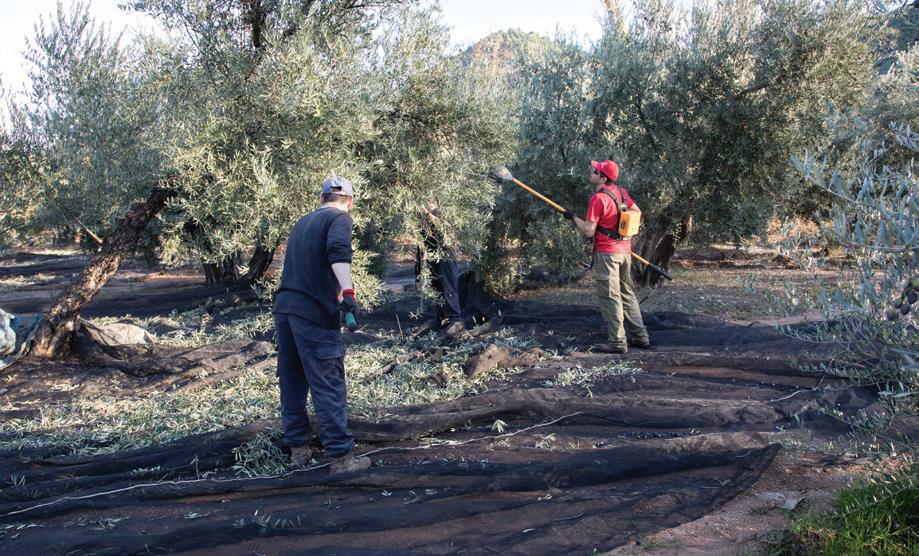

Research and Traceability
Since 2019, we have invested over $1.2 Million in Research & Development in technology & tracking systems. We deploy the latest technologies and third-party certifications to reduce the risk of information manipulation at the source while monitoring our food supply chain’s quality and safety standards.
We are ISO 22005 certified to guarantee traceability across our supply chain, and we utilize Oracle blockchain technology to ensure transparency from farm to bottle for our EVOO and Tomato sauce programs.
Thanks to our partnerships with the University of Salento and Eurofins, we can scientifically verify the authenticity of Extra Virgin Olive Oil’s origin by investing in nuclear magnetic resonance (NMR) and isotopic signatures technologies.
We built an extensive private database of unique «fingerprints» with 1k+ different geolocalized samples of olive oils to provide scientific support to EVOO authenticity to our partners. Each year, our data increases by hundreds of samples to further improve the accuracy of the results.

Sustainability Initiatives
• CARBON REDUCTION:
Certified Origins launched multiple lines of carbon-neutral certified Italian EVOOs under its flagship brand, Bellucci.
• RECYCLED PACKAGING:
Certified Origins utilizes 50% recycled PET and recycled cardboard materials.
• GREEN ENERGY:
Certified Origins Italian facility uses energy supplied by photovoltaic panels and olive pits as a fuel source.
32 GLOBAL RETAIL BRANDS / MAY 2024
www.certifiedorigins.com
NOTABLE
HALL 8 STAND 8.G51


Frostkrone Food Group Sets New Street Food Trend
Foodies get ready: there’s a lush snack upgrade from the Frostkrone Food Group coming your way. Burger Balls boast the full-bodied taste of the original in the cool finger food style. Unlike the original, they are extremely versatile. Their handy size also makes them ideal when you’re just a little peckish. An evening with the family, out and about with your team or at the next party, served on their own, with a crispy salad or potato snacks: Burger Balls are a hit even with sophisticated pleasure seekers. The snacks are prepared in minutes in a deep fryer, fan oven or air fryer and can be savoured immediately.
Their typical square packaging is a real eye-catcher. It mirrors the look and feel so well-known for burgers. And their strong colours at the POS attract huge attention. Burger Balls come in five delicious flavours:
• Cheese Burger Balls - the perfect marriage of juicy beef, mature Cheddar cheese and aromatic tomatoes.
• Bacon Burger Balls rock with beef, bacon smoked over beech wood, Cheddar and tomatoes.

• BBQ Burger Balls - the culinary ensemble of hearty beef, creamy Cheddar, tangy BBQ sauce and smoky aromas.
• Fish Burger Balls created out of fresh fish and fragrant spices are sheer perfection.
• Chicken Burger Balls bring together tender chicken with a kaleidoscope of exquisite spices, a succulent texture making every bite pure bliss.
Frostkrone Loves Finger Food
Frostkrone Loves Finger Food Innovative product ideas and an amazing variety of finger food and snacks – setting the Frostkrone Food Group apart on the market for more than 25 years. The Company Group develops and produces finger food and snacks at eight locations worldwide. The products are available internationally.
An extensive portfolio, huge experience and international presence make the Frostkrone Food Group a strong partner for the retail and food service sectors. And the Company Group is known for responding flexibly to customer wishes and for acting with
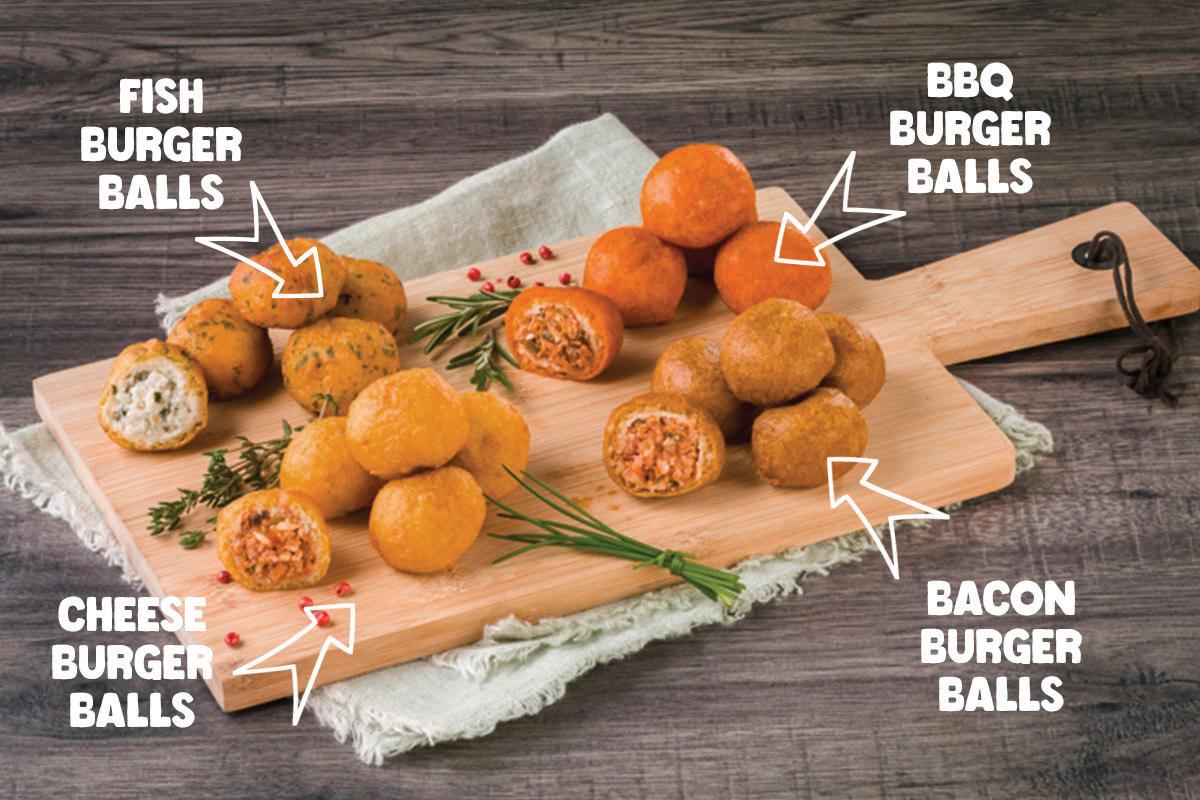
foresight. “We love finger food.” This love drives the Frostkrone Food Group to constantly work on innovative product ideas, which hit the taste buds of consumers.
Visit the Frostkrone Food Group at the PLMA in Amsterdam
Come along to discover and try out the Burger Balls and lots more at the PLMA in Amsterdam on 28 and 29 May. In Hall 1 at Stand 1 H86, the Frostkrone Food Group will be showcasing its extensive range of finger food and snacks.
frostkrone-foodgroup.com
34 GLOBAL RETAIL BRANDS / MAY 2024 NOTABLE
HALL 1 STAND 1.H86
The Leading European Producer of Canned Legumes and Canned Tomatoes
Headquartered in Angri (Salerno, Italy), La Doria is a leading Italian group in the vegetable canning sector, particularly in the production of tomato derivatives, ready-made sauces, canned pulses, juices and fruit drinks. Today, La Doria is Europe’s leading producer of canned pulses, peeled and chopped tomatoes in the retail sector and one of Italy’s leading producers of fruit juices and drinks. The company is also Europe’s leading producer of private label ready-made sauces. As a supplier to major retail and discount chains around the world, La Doria stands out as a group that is primarily dedicated to the production of private labels, the brands of major retailers. In fact, more than 97% of the group’s turnover is generated in this segment.
Underlying this specialization is a strong and determined mission to dominate the large retail and organized distribution markets, offering excellent quality products at very competitive prices as an alternative to the brand.


The Group currently has 6 production plants, 3 in the province of Salerno (Angri, Fisciano, Sarno), 1 in Faenza (Ravenna), 1 in Lavello (Potenza) and 1 in Parma. The international market is the most important sales channel for La Doria, accounting for over 80% of its turnover. The company has significant market shares in the UK, Germany, the rest of Europe, Australia and Japan.
La Doria’s business model is based on the synergy between values considered inalienable - legality, ethics, transparency, respect for human rights, respect for the environment, development of the territory - and the economic solidity of the Group. Convinced that leadership also entails responsibility in the field of sustainable practices, the company has made a concrete and firm commitment to operate with respect for people and the environment at all stages of the production and distribution chain. The responsible management of energy resources, the reduction and recycling of waste and the sustainability of packaging are some of the main guidelines followed by the Group in terms of environmental sustainability.
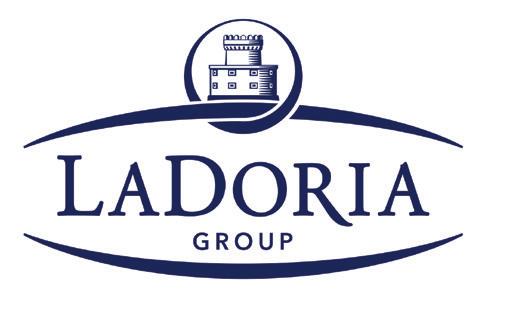
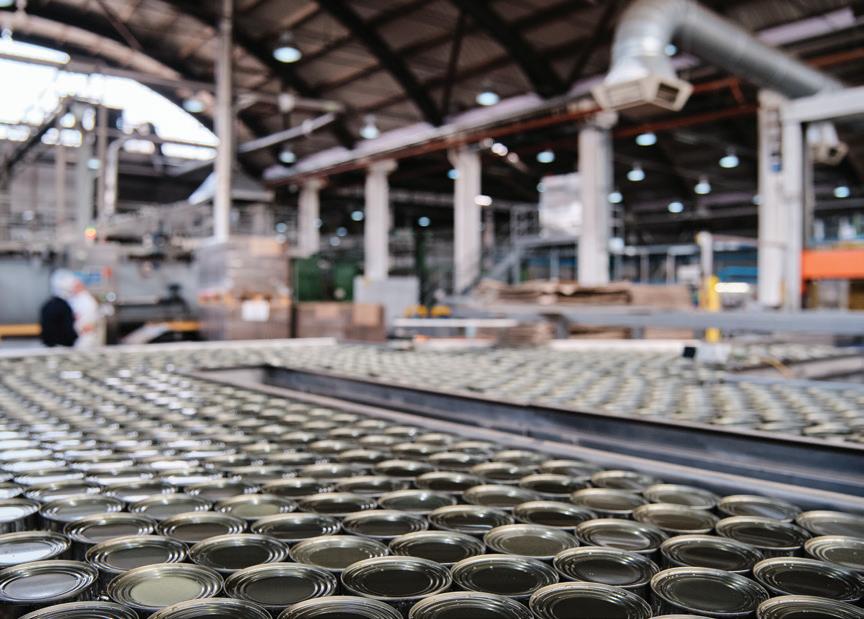
A firm believer in responsible supply chain management, La Doria implements a series of measures aimed at promoting fair working conditions and the rights of workers involved in harvesting in conjunction with growers’ organizations. The link with the territory is another issue that has been close to the company’s heart since its origins. This includes initiatives to promote young people’s right to education and training and their integration into the labor market, as well as projects to regenerate the area and promote social welfare. The Group also contributes to the growth of the local economy by using a high percentage of suppliers operating in the South of Italy.
commerciale.estero@gruppoladoria.it
36 GLOBAL RETAIL BRANDS / MAY 2024 HALL 2 STAND 2.D18
NOTABLE


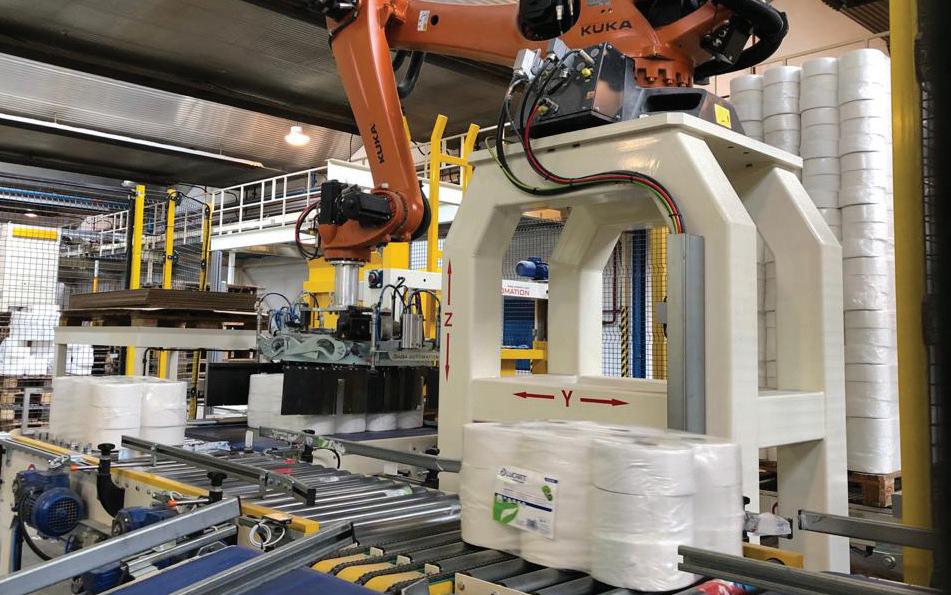
Innovation and Sustainability From Lucart Group
Lucart, a major European manufacturer of thin MG paper for flexible packaging, is a key player in the consumer goods and away-from-home markets as a producer and transformer of tissue and airlaid paper. Its attention to people, sustainable processes, and approach to innovation means they offer cutting-edge products that meet market challenges and customers’ needs.
Fiberpack® is their flagship project in this field: it combines advanced technology and environmentally friendly processes, demonstrating that circular economy principles are fully applicable to the tissue sector.
Lucart created this project starting from the idea of using all the elements of beverage cartons according to circular economy principles. The production process relies on an innovative technology that separates the cellulose fibers found in beverage cartons from polyethylene and aluminum by physical-mechanical action. With this technology, they avoid substances that may be harmful to people or the environment. They produce tissue products with the fibers obtained through

this process and recover the aluminum and polyethylene, converting them into a homogeneous material called Al.Pe.®, which other industries use to produce various items.
The tons of Fiberpack® paper Lucart has produced from 2013 to 2021 have contributed to the recovery of more than 7.6 billion beverage cartons, saving more than 3.3 million trees and preventing more than 195,000 t of CO2e from being emitted into the atmosphere.
Lucart’s continuous research and development work has led to many projects aiming to improve the quality and performance of its products. One such project has led to the innovative QMilk® process, which makes it possible to extract and transform the basic proteins in milk into a soft and precious fiber without using chemical agents. The process preserves the amino acids, and all the moisturizing and nourishing properties of milk in the resulting fiber. It guarantees a 100% natural formula that is dermatologically tested, ultrasoft, and highly resistant.
Lucart is also the only brand in its target market to offer Airlaid products with exceptional absorbency and strength performance. The Airlaid technology uses long, highly resistant cellulose fibers that never come into contact with water during the production process (dry paper) to remain super absorbent. Fibers treated with this process naturally form a “dam” structure, offering outstanding results: can absorb up to 7 times its weight and, thanks to its exceptional resistance, can be reused up to 20 times, compared to 1 or 2 for competitive products.
Lucart is a company made up of people who choose to use innovative and sustainable processes in development, transformation, and manufacturing of paper products, collaborating responsibly for the future of their business and the planet.
Lucart has always been at the forefront of the study of innovative packaging able to reduce the environmental impact of its products. After launching the world’s first line of toilet paper with materbi corn starch packaging in 1997, the company created a series of products with entirely plastic-free packaging in 2019.
38 GLOBAL RETAIL BRANDS / MAY 2024
www.lucartgroup.com NOTABLE HALL 8 STAND 8.C04





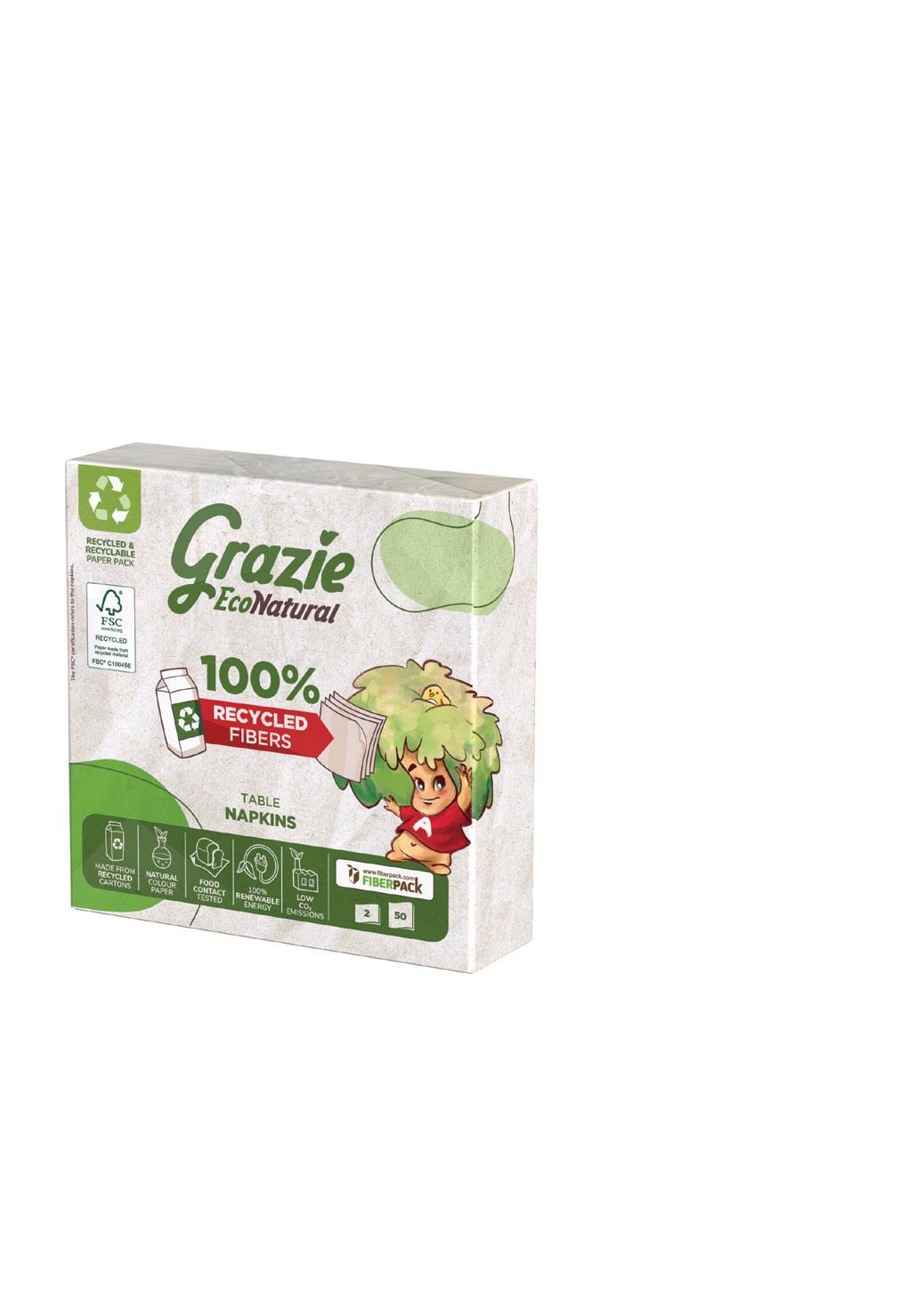

grazie.it For the planet’s needs.
V-LABEL: The International Vegetarian and Vegan Brand Par Excellence

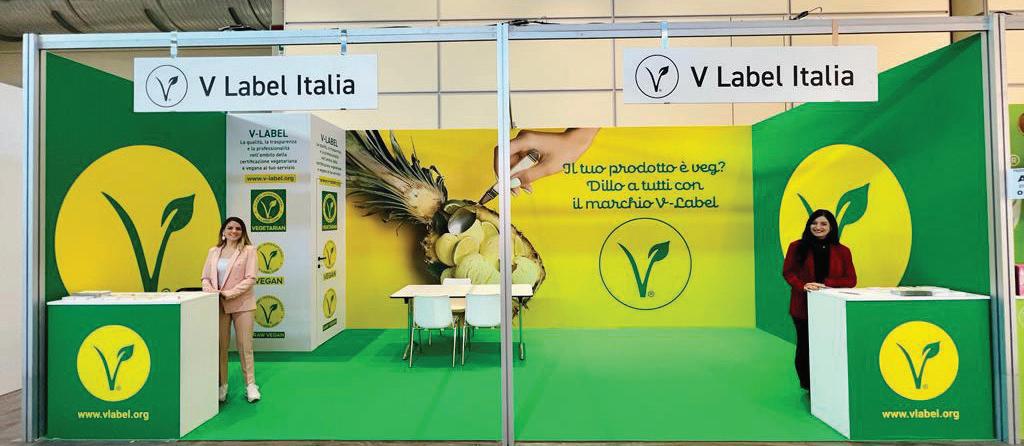
The V-Label brand is an internationally recognized symbol to identify vegetarian, vegan and raw vegan products and services par excellence.
It was created in 1976 as an institutional symbol of the Italian Vegetarian Association and is presently the most recognized synonym for vegetarian and vegan products by consumers all over the world. Its clear, unique image is intuitively associated with vegetarianism and veganism in every corner of the world, effectively breaking down any language barrier.
Officially presented internationally at the first European Vegetarian Congress held in Italy in 1985, it quickly spread first to Europe, and shortly thereafter to the rest of the world.
The V-Label brand is now registered in more than 70 countries worldwide and can be found everywhere around the world: it clearly and safely identifies products and services of various types, from food to textiles, and from footwear to cosmetics as compatible
with the vegetarian and vegan lifestyle. In addition to being available in the food sector (finished products, raw materials, drinks) and in the non-food sector (cosmetics, personal hygiene and home care products, textiles, clothing, footwear), the V-Label brand is a point of reference for catering as well.
But being international doesn’t just mean being widespread, it requires much more than this. It entails being able to transmit and receive, often technical, content properly without making any mistakes. This is possible due to the the close relationships we have worked to maintain with our customers. In most cases, the V-Label brand is distributed by local managers who, because they are familiar with the local language and culture, are better able to convey information to producers and consumers. This local approach also allows us to handle technical material in documents without risking translation errors or problems with understanding.
Despite the widespread availability of the brand in extremely different areas, both in terms of culture and traditions, the V-Label brand has maintained the same verification criteria and standards in every place. This uniformity aims to offer seriousness and quality to consumers who rely on the V-Label brand when choosing which products to buy.
The balance between the local approach and adaptation and the standardization of criteria and processes so that they remain unchanged is what makes the V-Label brand truly international, even more than its widespread coverage.

www.vlabel.org
40 GLOBAL RETAIL BRANDS / MAY 2024
NOTABLE


Reliable, Large-Scale, High-Quality Pizza Partner
Valsa Group is a leading manufacturer of frozen, chilled, and ambient pizza, pinsa, focaccia, and snacks. The company’s primary goal is to promote the true Italian food lifestyle worldwide. The headquarters of Valsa Group is located in Valsamoggia, in the heart of Italy, where the company history began. However, their roots span from North to South, through their ten plants, following a purely Italian entrepreneurial path. The company’s daily commitment can be easily summed up in three words: Culture, Excellence, and Innovation.
The Valsa Group has recently launched a new premium range called Her Majesty, La Pizza. This new range aims to bring the best and most authentic pizzeria experience to consumers worldwide, right in the comfort of their own homes. The pizza features a light, fragrant crust that is naturally leavened for a long time and hand-stretched, topped with the best quality Italian tomato sauce. With every bite, consumers can feel as though they are transported straight to Italy, enjoying a unique and unforgettable taste experience. Her Majesty, La Pizza embodies the high quality and outstanding standards that can only be found within Valsa Group.


The perfect way to complete a retailer’s range with a real Italian product is now available. Enjoy the best Italian pizzeria tradition in every home freezer!
Valsa’s strategic advantage lies in the synergy between its traditional manufacturing process and a strong emphasis on consumer convenience, while maintaining the highest quality standards. In today’s market, convenience paired with premium quality is crucial for creating value in the supply chain.
The Valsa Group is a reputable business partner operating in over 50 countries worldwide. This success has been achieved through their focus on sustainability, organizational integration, production capacity, and innovation in convenience, all while committing to process transparency, waste reduction, and the use of green energy.

Valsa Group operates through various brands such as Valpizza, La Pizza+1, Forno Ludovico, Megic Pizza, Ghiottelli, Il Borgo, and Tuscanya Bakery. As a unique large-scale and highly qualified partner, Valsa Group can provide a wide range of items in each category, from frozen to deli.
info@valsagroup.it
VISIT AT: IDDBA Huston Booth # 3747

42 GLOBAL RETAIL BRANDS / MAY 2024
NOTABLE

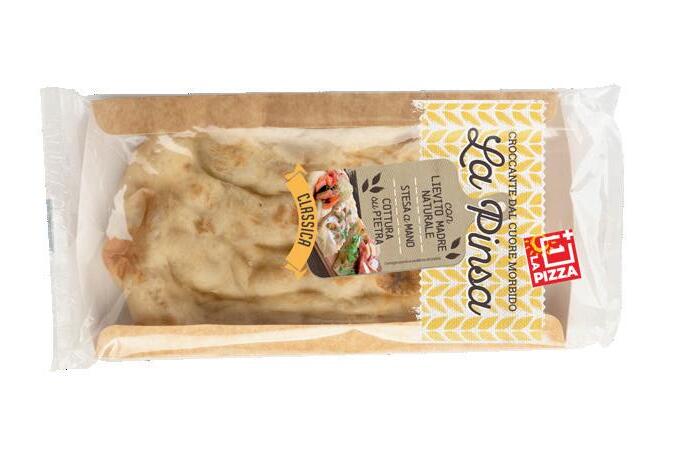









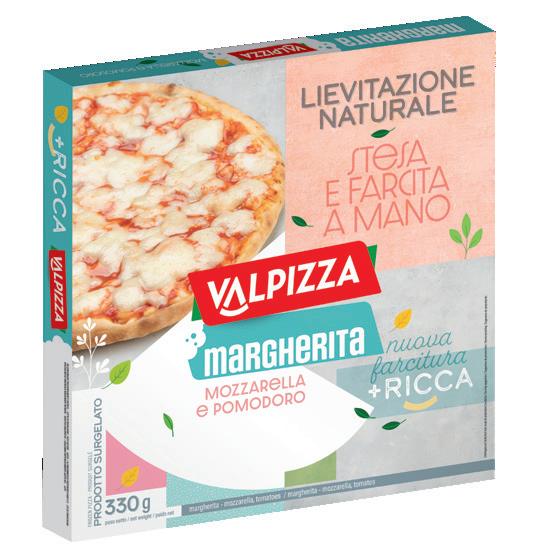
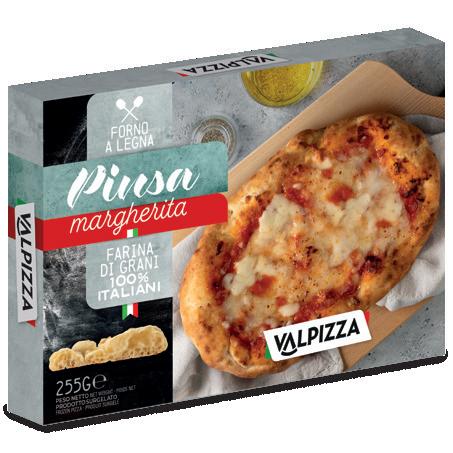
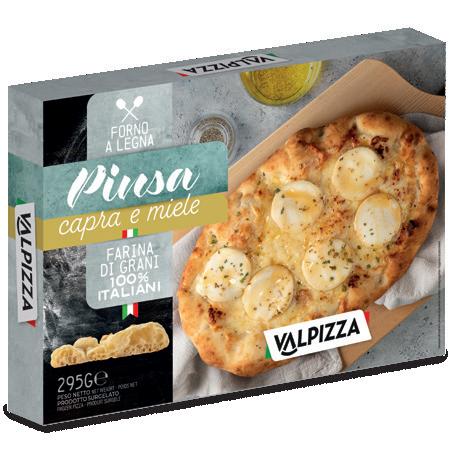

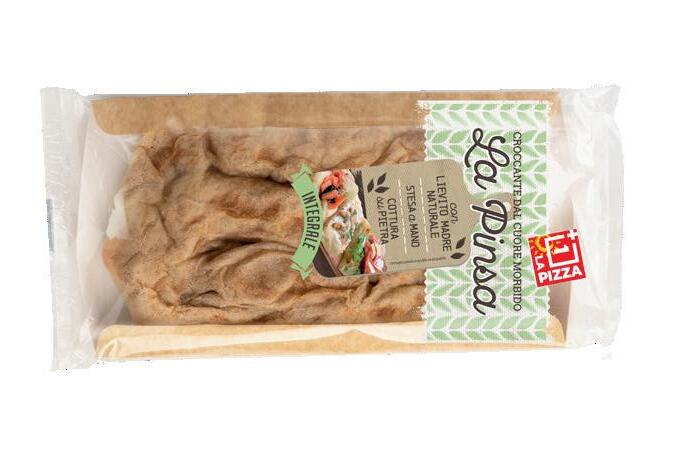














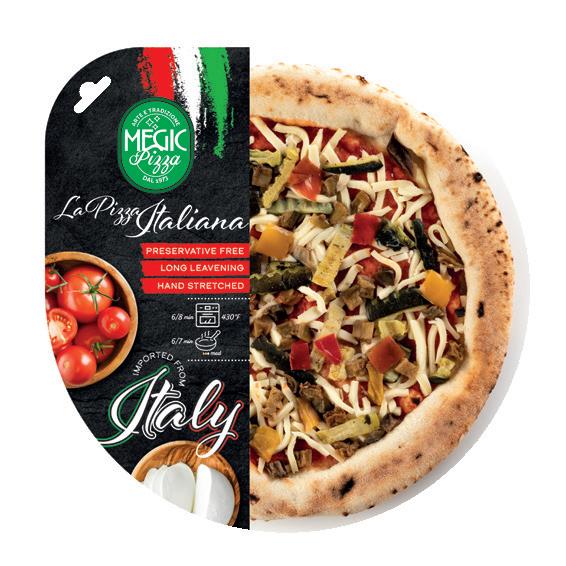


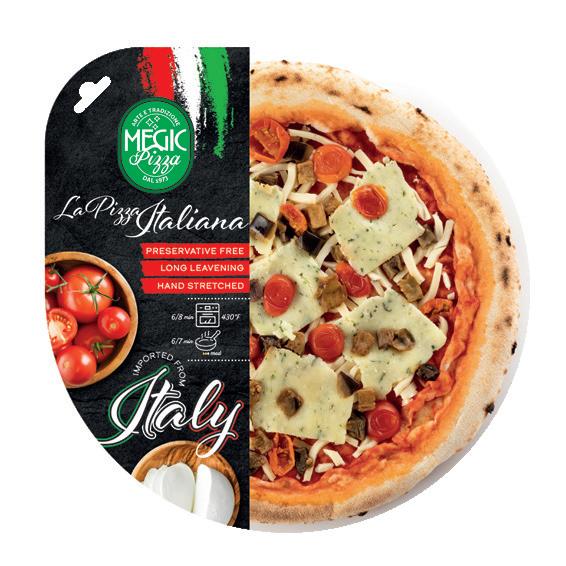

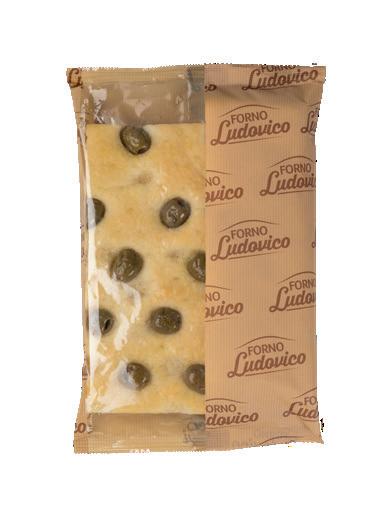
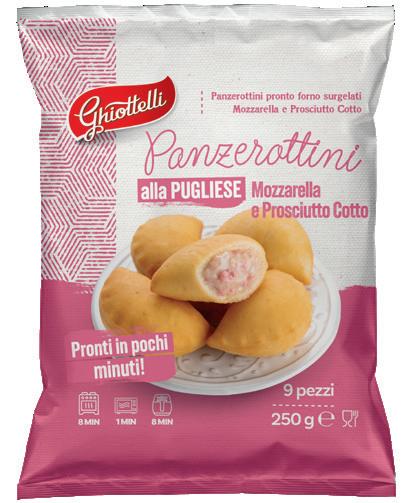












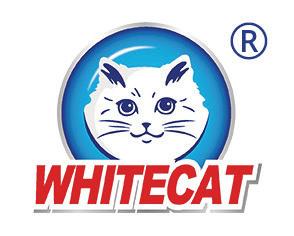
Innovating Cleanliness: Whitecat’s 76-Year Journey Safeguarding Healthy Families
Chapter 1: A Cat Was Born in 1948
In the quaint village of Yongtai, Shanghai county, China, 1948 marked the inception of an entrepreneurial venture that would evolve into Shanghai Whitecat. Initially focused on providing post-war China with essential laundry soap, this small, private manufacturing company embarked on a journey characterized by necessity, groundbreaking innovation, and an unwavering commitment to safeguarding the health of families.
Motivated by the pressing needs arising after World War II, Shanghai Whitecat tirelessly worked to supply the local community with laundry cleaning products that surpassed traditional soap made from soap beans and “Yizi” (a concoction of pig pancreas and plant ash). The goal was simple yet profound: to enhance cleanliness and well-being for families.
Chapter 2: Pioneering Innovation Since 1959
Shanghai Whitecat achieved its first milestone in 1959 by introducing mainland China to the first domestically produced package of synthetic laundry detergent powder, “Gong nong.” This marked the beginning of a series of groundbreaking innovations:
1963: Introduced the first autonomous washing powder paper bag packaging machine.
1981: Developed and produced the first domestically packed Super Concentrated Laundry Powder.

1987: Awarded the “Shanghai Famous Brand” certificate for both Whitecat and Jaimei brand Laundry Powder.
1995: Whitecat Laundry Powder received the “Golden Bridge Award” for National Best-selling Domestic Product for four consecutive years.
2004: Whitecat liquid detergent attained the prestigious title of “China Famous Brand.”
2018: Whitecat Lemon Black Tea Dishwashing liquid secured the “2017 China Biggest Award of Quality Consumer – Quality Gold Award.”
2018: Shanghai Hutchison Whitecat Co., Ltd., was honored as one of “China’s Top 100 Daily Chemicals.”
Chapter 3: Longevity Through Innovation
As Shanghai Whitecat celebrates its longevity, the narrative transcends labels and brands, becoming a story of enduring innovation, necessity, and countless lives touched. With trust built over decades of hard work and substantial investment in research and development, Whitecat boasts:
• Over 100 national patents.
• Annual investments of millions of dollars in R&D.
• A team of over 50 research and development personnel, with over 50% holding Master’s or doctoral degrees.
• The only national standard laboratory in the light chemicals industry.
• State-of-the-art scientific equipment, including gas chromatography/mass spectrometry (GC/MS) and Fourier infrared spectrometer.
Chapter 4: Sustainability for a Better Tomorrow
Whitecat’s dynamic culture of innovation, born out of necessity in 1948, is evolving towards sustainability, ensuring healthier lives for families and our planet. The company is proud to introduce a sustainable, natureinspired line of products, including:
• Concentrated cleaning pods, sheets, and tablets.
• Lactic acid-based cleaning products.
• Soda-based cleaning products. This marks the beginning of a green, sustainable tomorrow with Whitecat. Join us on this exhilarating journey towards a cleaner, healthier world.
About Whitecat
Shanghai Hutchison White Cat Co. Ltd. (“Shanghai White Cat” or “Whitecat”) is a foreign joint venture established by a wholly-owned subsidiary of CK Hutchison, a Global Fortune 500 company with an annual revenue of US$ 500M. With over 23 factories across China’s mainland, White Cat’s own brand products and private label services are available in China, Japan, Korea, the Middle East, Southeast Asia, the Americas, and Europe. Their motto is simple yet powerful: “If you can think it, we can make it!”
http://en.whitecat.com
44 GLOBAL RETAIL BRANDS / MAY 2024 NOTABLE
WHITECAT
Top-Tier Brand Over 70 Years
Home Care And Personal Care
Member Of Fortune Global 500
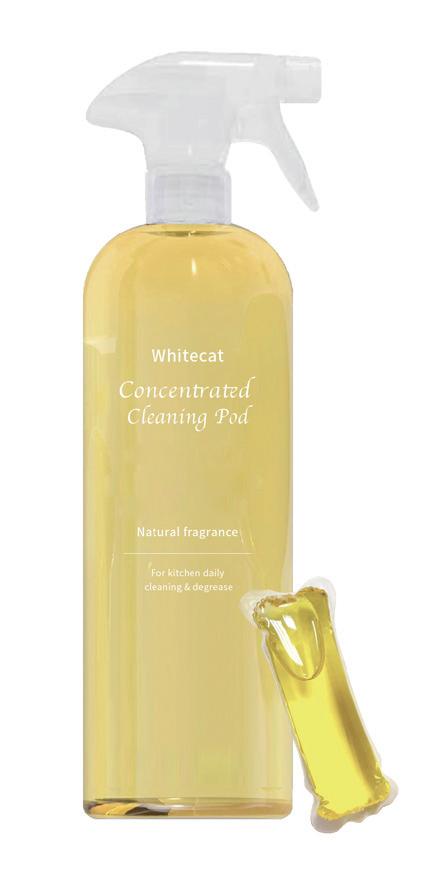






Amercias: salesusa@whitecat.com • USA & Canada: tpark@whitecat.com • EU/Africa/Asia: congy@hwccl.com • https://en.whitecatcom

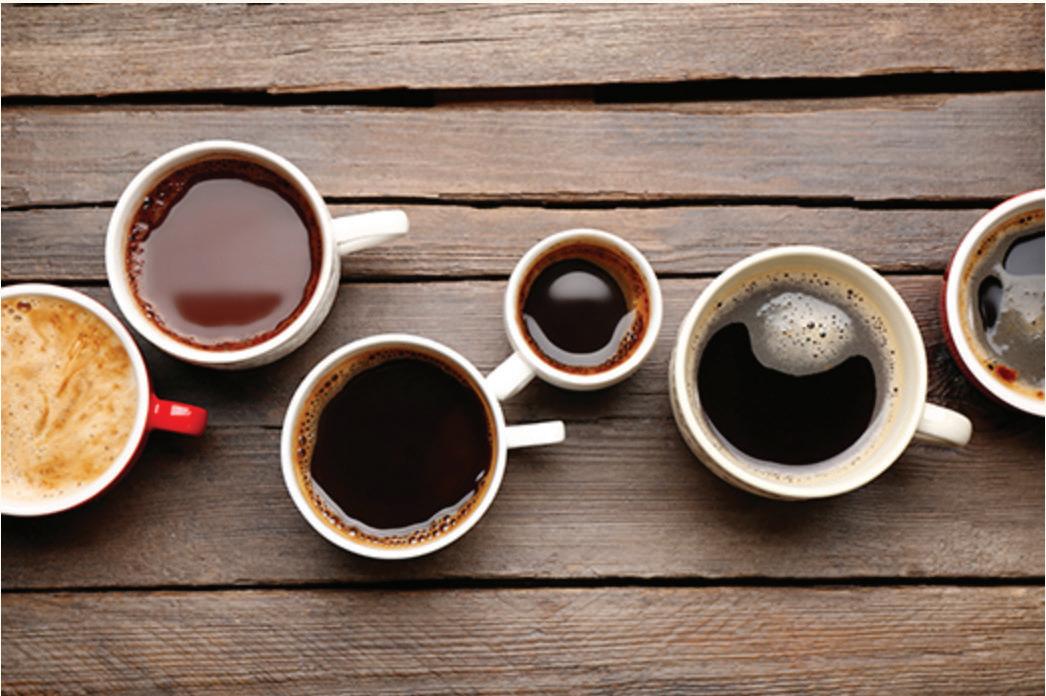

46 GLOBAL RETAIL BRANDS / MAY 2024 www.certifiedorigins.com Certified Origins OLIVE OIL COFFEE DEK Deutsche Extrakt Kaffee www.dek.de/en Frostkrone Food Group FROZEN FINGER FOODS frostkrone-foodgroup.com ITALIAN FOOD & NON-FOOD ITA (Italian Trade Agency) plmaams24.eventidigitali.ice.it HALL 8 STAND 8.G52 HALL 1 STAND 1. A41 HALL 1 STAND 1.H86 CLIENT PRODUCTS AT PLMA HALL 1 STAND 1.E03 -1.F96 FOOD
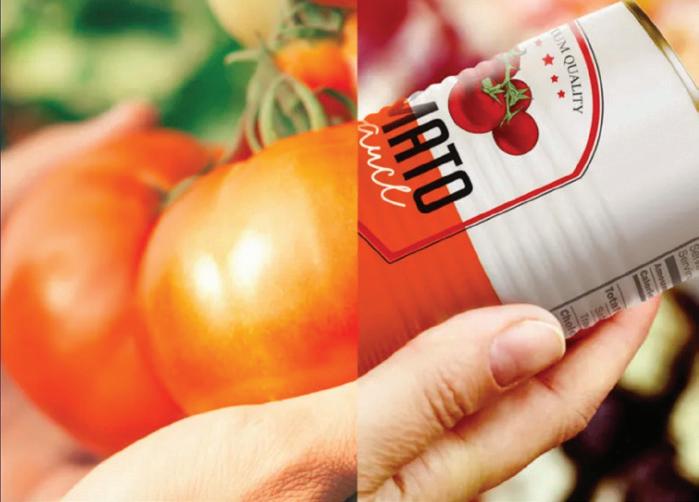
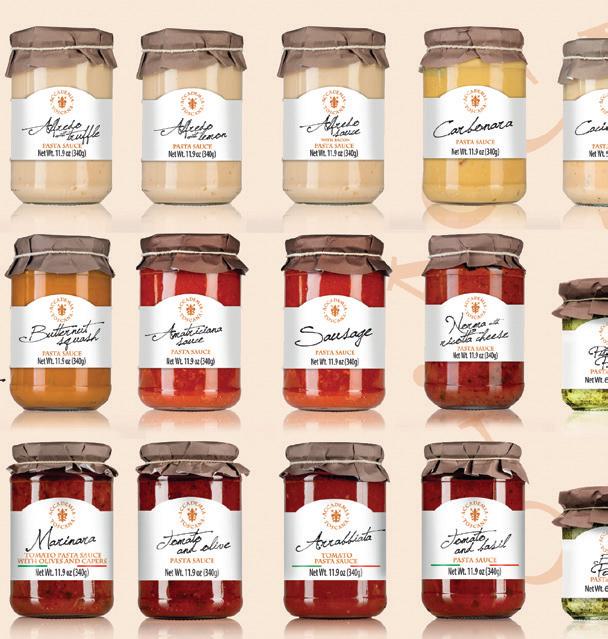
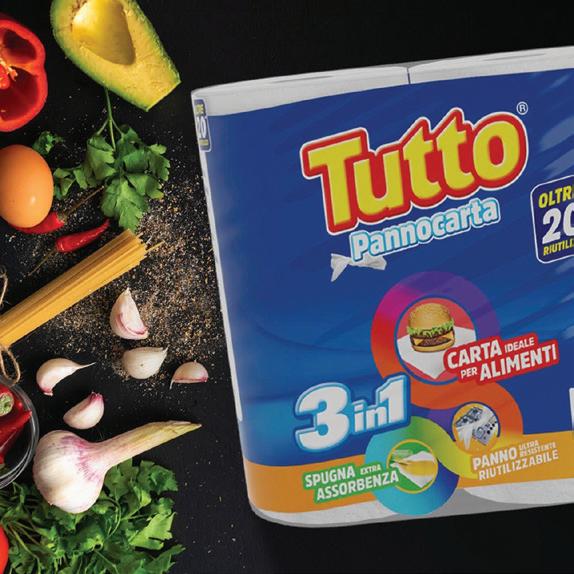
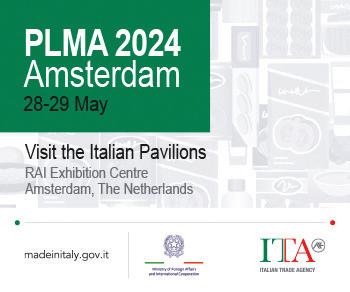
www.globalretailmag.com 47 LaDoria CANNED TOMATOES www.gruppoladoria.it/en PASTA SAUCES LeBonta
HOUSEHOLD PAPER PRODUCTS www.lucartgroup.com Lucart HALL 2 STAND 2.D18 HALL 7 STAND 7.R27 HALL 8 STAND 8.C04 HALL 7 STAND 7.Q02 - 7.R47 HALL 12 STAND 12.E05 - 12.F44 NON-FOOD NON-FOOD
www.lebonta.it/en

Evolving Faster Better and Evolving Faster Better and Evolving Faster Better and
BY PERRY SEELERT

Own brands continue to evolve at a discernibly faster rate than CPG brands, but what does it all mean? What are the key areas of development, what is truly new, and where are the lingering bits of staleness?
If Darwin were still around to understand evolution as it applies to retailer brands he wouldn’t have believed it. They say evolution is unobservable. The process operates so slowly you cannot see it unless you have thousands of years of perspective. But what has happened over 50 years’ time in consumer packaged goods and own brands is astonishing, and even over the last decade, the dynamics that have led to retailer brand success are stunning.
We will start with three overarching areas of change that can be seen, and then we will shift the discussion to a little more micro look at what is more recently new in the industry, some of the catalysts for success, and the things still crying out for change.
THREE OVERARCHING CHANGES
There once was the idea in the own brand industry and across retailers that there were “taboo” categories that were untouchable. You might have been able to create a private brand product for a category, like an own brand wine, but certainly you would never launch it (or sell much of it).
www.globalretailmag.com 49
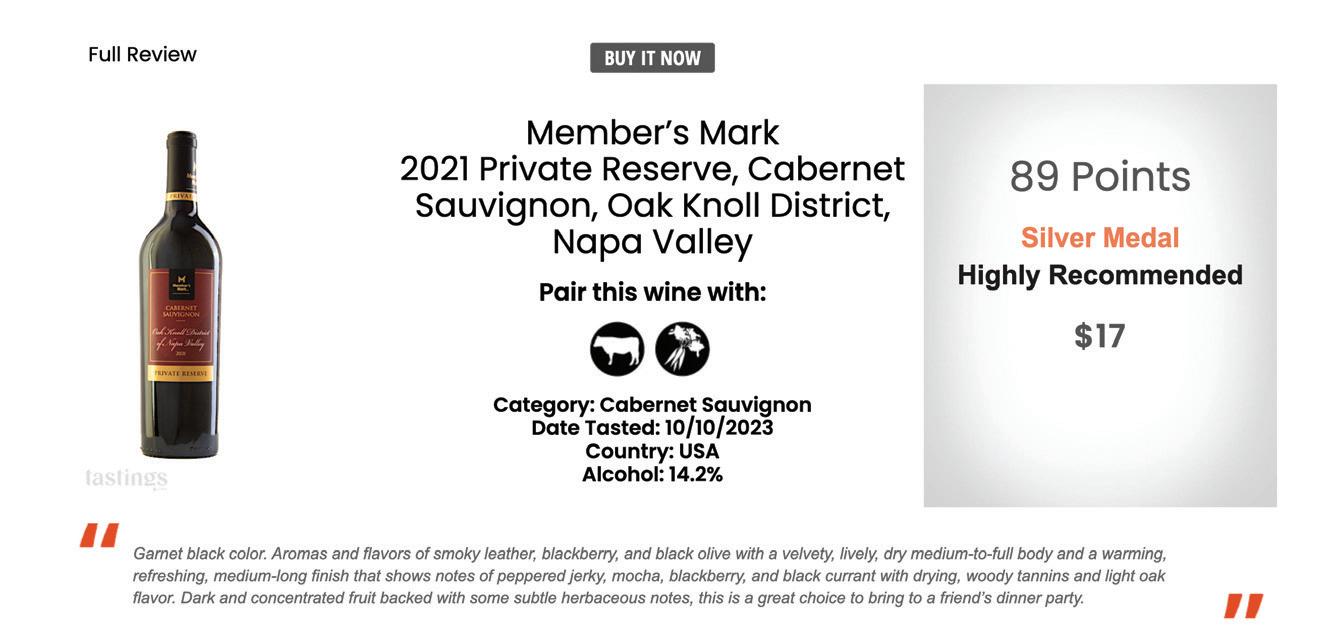

What retailers now think is possible has expanded dramatically, and not only is every category for CPGs vulnerable and reachable, but the scale of own brands has changed in a major way, as well as the credibility that people now attach to them. These three overarching changes stand out more than any others in the retail brand world.

NOTHING IS TABOO ANYMORE
It used to be that own brand succeeded only across big commodities. Milk, bread, eggs were the primary domains for own brand success, and it was for one simple reason, that consumers perceived them as verifiably and certifiably the same as CPG brands. But no category is taboo in today’s own brand industry.
Some wines are receiving real accolades, especially those in the club channel. Personal care products like sun care used to be untouchable but now you see them in sprays, sticks, lotions, all types of SPF, clear, moisturizing, oxybenzone and paraben-free, reef-friendly, and many more.
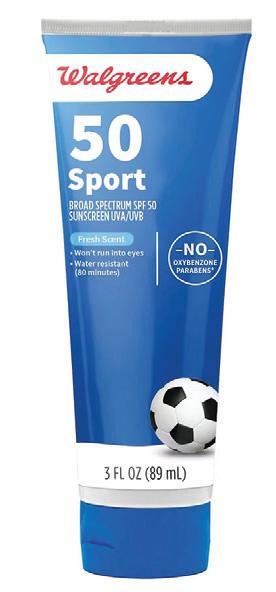
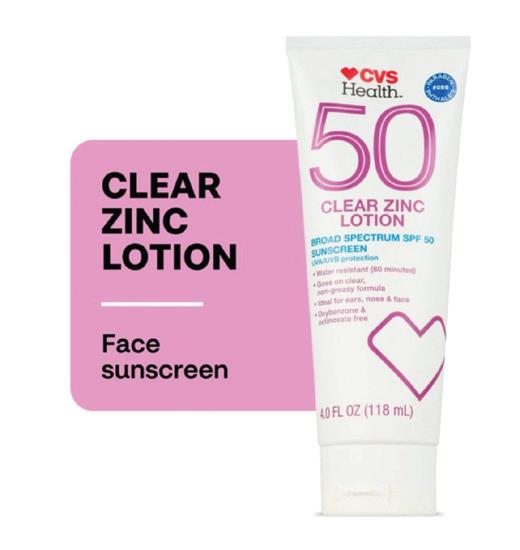


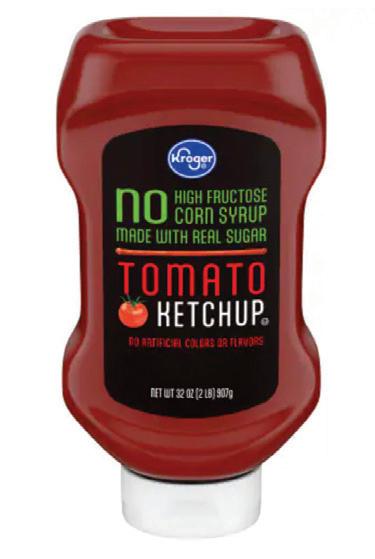
Kroger sells no HFCS ketchup and a Black Truffle variety in their Private Selection tier, and there are all types of Mayonnaise in different packaging configurations, flavors and varieties (including those made with Extra Virgin Olive Oil or egg-free/Vegan).
Personal care (sun care, skin care), baby care, alcohol, categories with distinctive taste profiles, household cleaning – they are not only reachable through own brands, but now we think about how they could topple what once were considered to be vaunted CPG brands.
Categories that have very distinct taste profiles like ketchup and mayonnaise used to engender the greatest brand and consumer loyalties, so they were not considered to be portfolio priorities. Think about Helmann’s or Best Foods mayonnaise or Heinz ketchup, retailers used to only half-heartedly offer own brands in these areas. This has changed too.
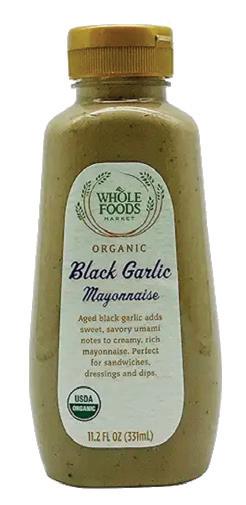

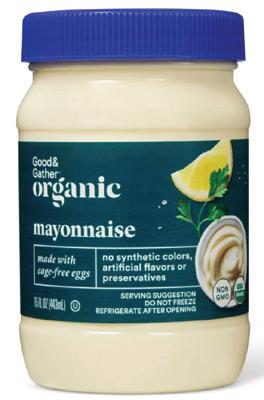
50 GLOBAL RETAIL BRANDS / MAY 2024
1
COVER STORY I EVOLVING FASTER AND BETTER

THE TREMENDOUS SCALE OF RETAILER BRANDS
Today, there are many retailers whose unit share in private brands is over ¼ of what they sell (Kroger, Walmart, Sam’s, HEB and Costco) and the elite with over 50% share (Wegmans). While share and penetration are interesting measures, I think what is astonishing is the sheer scale of certain retailer brands.
Costco’s Kirkland Signature brand sells over $60 billion annually, just let that sink in for a second. Kroger’s “Our Brands” total sales annually is around $30 billion. Comparatively speaking, one of the biggest CPG brands in the world, Coca Cola, generated $46 billion in annual revenue for 2023. Retailer brands and the categories where they are represented is throughout the four walls of the store, their penetration is often over ¼ of total sales, but it is the size of these brands that now commands everyone’s attention.

ESTABLISHING CREDIBILITY, ESPECIALLY WITH
NEW CONSUMERS
The third larger, more overarching change with own brands is the degree to which they have established credibility, especially with younger generations of consumers. Now the most glaringly obvious and functional reason for increased credibility is the “quality” improvements over time with own brand. Consumers, at the product and brand’s core, must trust the quality, this is essential. However, there are three other drivers to establishing credibility:
• One driver is purely in consumers’ experience, or lack of it, with private brands. Many Millennials, Gen Z and Gen Alpha, those who are born from the mid 1990’s and beyond don’t remember generics. They have no experiential baggage. In fact, the word “generics” makes little sense to them as they associate it maybe with drug products and not really food. They have no memory of some of the beginning growing pains of dreary “private label”.
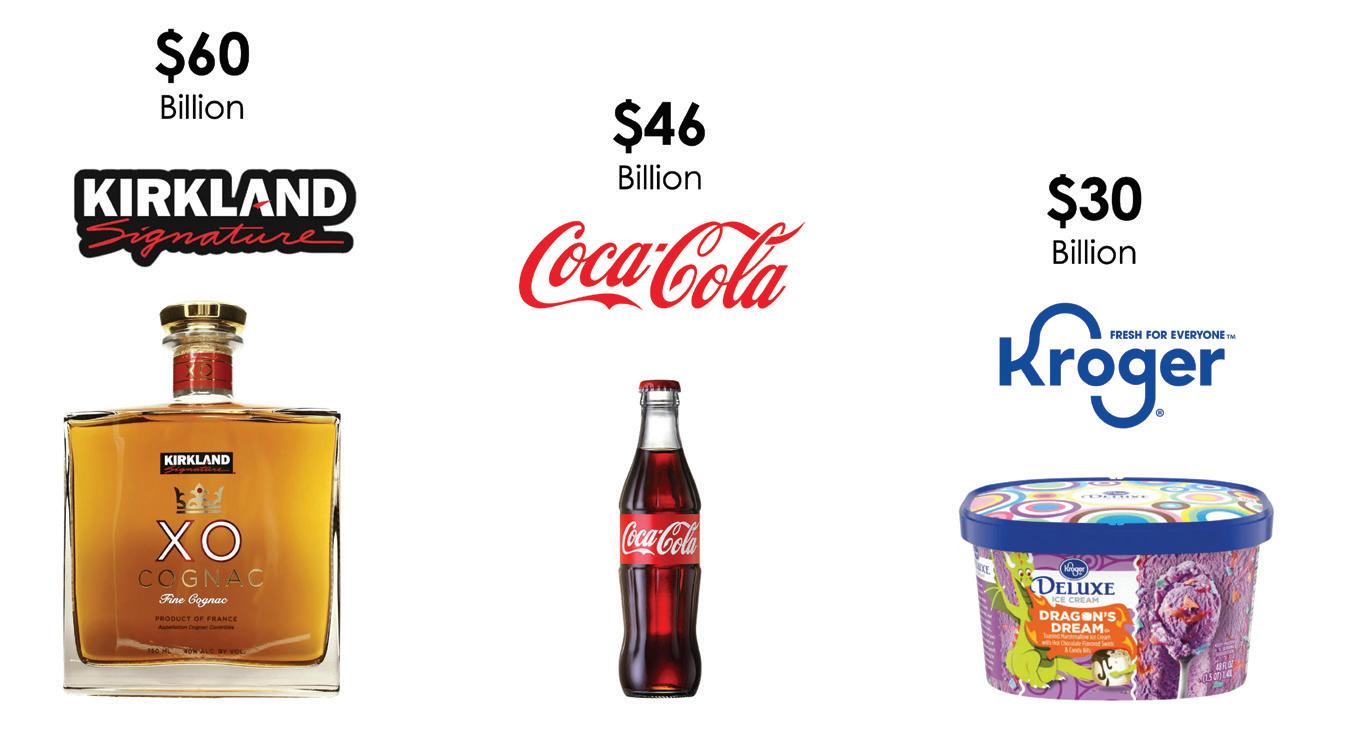
• The second driver in increasing credibility is in the improved visual language of own brands. The copycat language has to a large degree vanished, retailers have hired global design agencies, and the investment in custom imagery have all led to better impression. The strategy behind the design and the deft hand used to create it is a big part of gaining credibility, and we see this especially in English retail design.
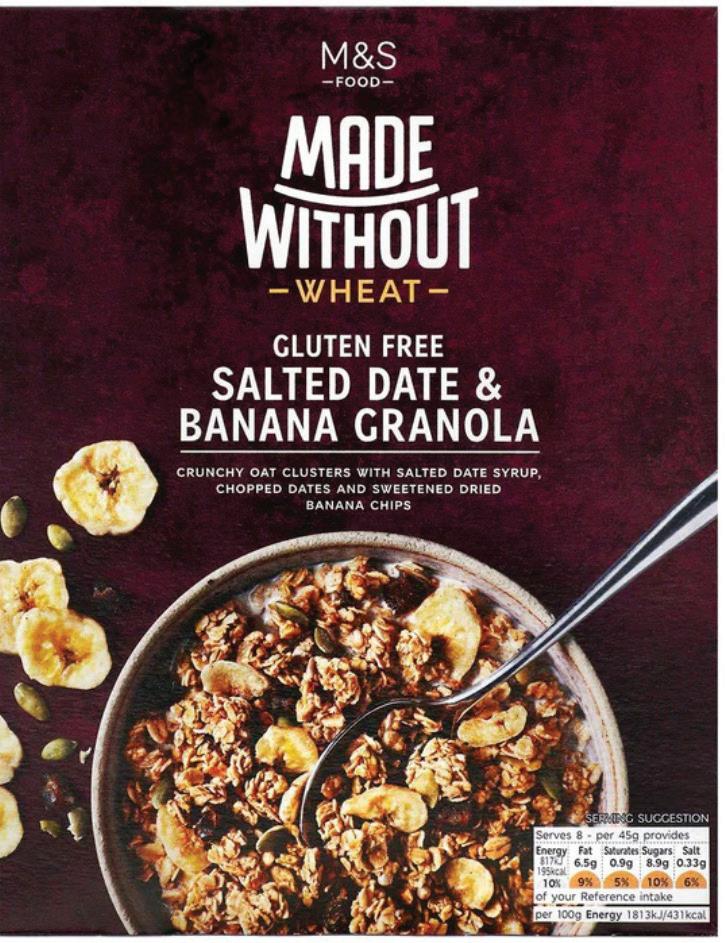
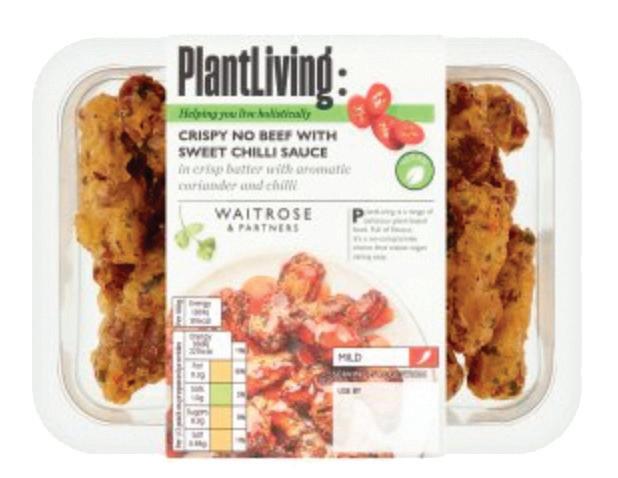
• The last driver in credibility has been the move from “last to first”. Own brands have not relegated themselves to follower status alone, but actually lead the creative product development process at some retailers. Look at Trader Joe’s and you will see launches, like their Everything But The Bagel spice, that preempted the leading CPG, McCormick, to market with this new product.


continued on next page >
www.globalretailmag.com 51
2 3
Beyond these three macro transformations, what have been the most recent changes we have seen in own brands?
One of the most recent sea changes we have seen in the industry is that a retailer’s scale does not determine its ability to foster great and expansive own brands. Even with the scale of Costco and Kroger as we refer to in the more macro transformations, the smaller retailer can still leverage the power and exclusivity of a great own brand program.
THE AGE OF THE SMALLER RETAILER EXCELLING IN OWN BRANDS
Smaller Retailers are not excluded from having unique and attractive own brands, in fact, it’s just the opposite today
It is amazing to see what smaller, more boutique and regional retailers have done with their own brands from a creative point of view. Rather than feeling like they don’t have the scale to attract suppliers, they actually see their scale as the reason they need to have unique, compelling products that have a point of difference versus their chain retail competitors.



FOXTROT
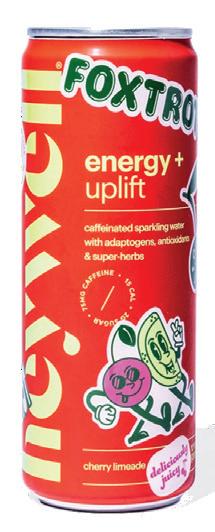
Retailers like Foxtrot with its 33 stores today and 50 planned openings this year is making own brands one of its differentiators. Through unique products, beautiful design and interesting limited-time collaborations, the Foxtrot portfolio is becoming a centerpiece for what they do and how they do it. Notice the incredible appetite appeal and impulse they create through salty snacks, beverages and frozen novelties.
Sadly, Foxtrot ceased operating just before press time.

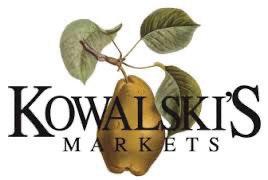
KOWALSKI’S
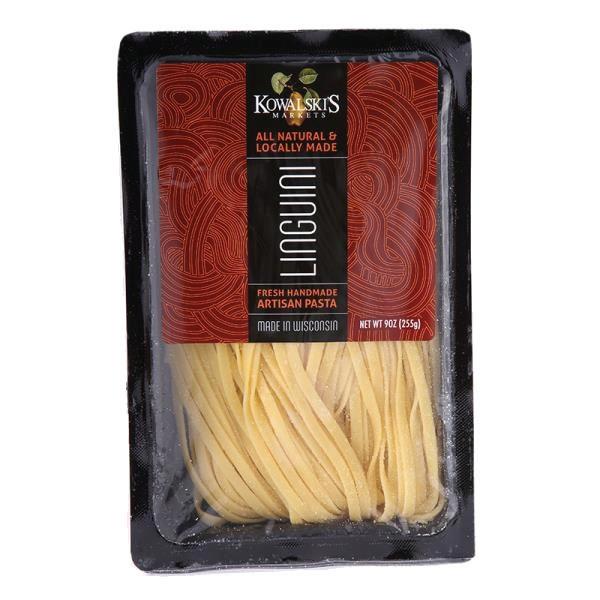
Kowalski’s Markets which covers 11 stores in the Minneapolis/St. Paul region also sees own brands as central to their distinction, and it shows in the way they develop new products, merchandise and market their brand. Categories like hummus are being disrupted by their own brand, which is smallbatch and healthier than the big brands. They also write very intentional stories about their own brands using social media that educate consumers about their unique products.


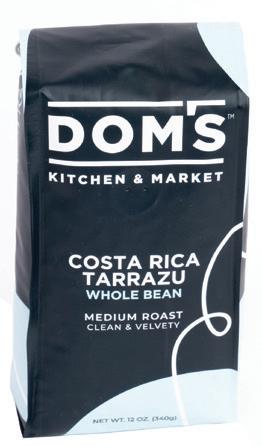
Other smaller, boutique retailers like Dom’s Kitchen & Market in Chicago (which just merged with Foxtrot) and Dorothy Lane Markets in Dayton, Ohio are developing and marketing unique coffees, snacks, bakery and pantry items, sometimes locally-sourced and all creative in their purpose.
52 GLOBAL RETAIL BRANDS / MAY 2024
COVER STORY I EVOLVING FASTER AND BETTER
MARKETING INVESTMENT, MARKETING PROWESS
The Marketing Investment for own brands by retailers continues to grow, and the influence and skill of their communications does too
The second more recent dynamic you can see in the own brand industry is that there is a more significant marketing investment retailers are making. The spend on own brands used to be a fraction of retailers’ overall marketing budget, but no longer. You see this in four important ways:
• Through television advertising
• Through continued celebrity/ endorsed exclusive brands
• Holiday and seasonal events that are own-brand focused
• The promotional calendar aimed at building shopper engagement.
Wakefern/Shoprite in the New York area has supported their Bowl & Basket brand on television more than any other retailer’s own brand I have ever seen. It is a non-stop barrage of family-oriented, heart-warming and even humorous spots that all tie in the portfolio and message behind the Bowl & Basket brand. Six of them in total, which represents a real investment.

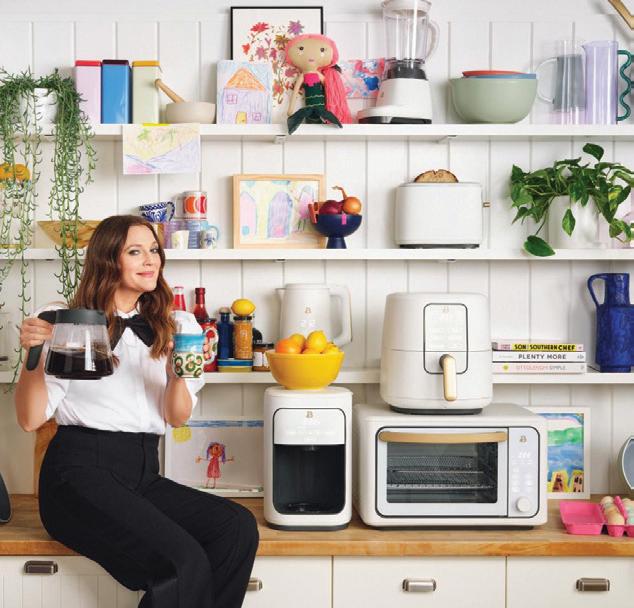

Walmart continues to invest in own brand marketing and exclusive brands with their celebrity tie-in to Drew Barrymore, who like Joanna and Chip Gaines at Target, has designed everything from kitchen appliances to housewares to furniture.
A third example of retailers’ more significant marketing for own brands is how they are doing it through seasonal events and holidays now. Marks & Spencer supports Easter through their M&S Collection brand, and their Easter Egg, chocolate, and candy portfolio, which is absolutely amazing. It gets significant press coverage, youtubers talk about it, and it is a true marketing event where own brand is the driver.

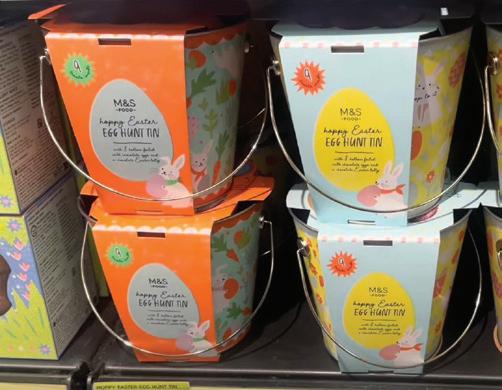
A fourth example that shows how retailers continue to invest in own brand marketing is through their promotional inventiveness, where the cost is largely in the ideation and not so much in the execution (if it is done through the social media you control). Take a current example happening at Trader Joe’s.
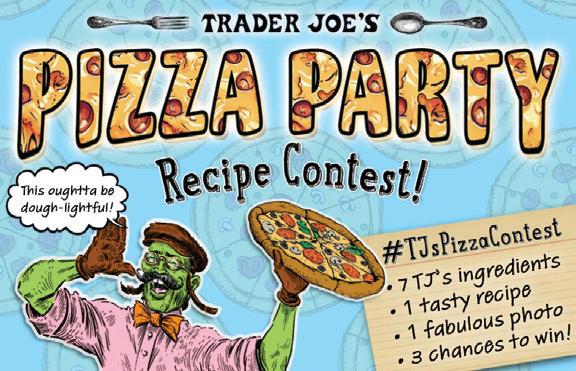
The idea is pretty simple, use 7 Trader Joe’s own brand products to make a pizza, snap a photo of it and tag it on social media with your recipe instructions and #TJsPizzaContest in your caption. There are literally thousands of entries, and it is this type of promotional creativity that generates engagement and interest around Trader Joe’s brands.

continued on next page >
www.globalretailmag.com 53
THE ROLE OF AI IN PRIVATE BRANDS
If you are already sick of hearing about artificial intelligence, we are just getting started
There is a third more recent dynamic you can see just trickling into retailing and the potential for it to hit own brands is powerful and inevitable. You may be sick of hearing about AI, but its impact is already becoming real, and thus we have to mention it as a catalyst to more change we will be seeing in private brands.
FMI and grocerydoppio did a recent study about AI and its impact on the grocery industry from executives’ point of view. They predicted the following:
“The use of AI in grocery stores will grow by 400% by 2025”
• Executives believe this could eliminate 18% of store associates
• Eliminate 73% of store tasks
• Eliminate 53% of shopper inquiries
• Create $113 Billion in operational efficiency”
So how do we teach AI about the virtues of Private Brands and the importance they represent? How is AI handling private brand shopper inquiries?

How do we teach chat GPT when consumers ask for a “budget friendly meal for under $20” along with the recipe that they need to mention your private brand ingredients?

Walmart is already becoming an integrator and leader when it comes to AI, and they are embedding it across their corporate employees, in the stores, throughout the supply chain and in theft mitigation. It is only a matter of time before it gets more actively applied to assortment decisions and directly to private brands.

Kroger is implementing AI through their 84.51 data science division and combining forces with Microsoft Promote IQ to build out more personalized marketing and advertising (based upon what they know about their shoppers). AI is already getting implemented at retail, and the effect on own brands will be undeniable, so it is better to embrace this thinking now so that you stay ahead of the game.
OPPORTUNITIES AND NOT ACCEPTING STALENESS
Yes, Darwin’s head would be spinning, because the own brand evolution and the catalysts behind the change have happened quickly overall. And even with all these positive developments, there are still some things that linger from the “old school”, that are symbols and evidence of past own brand approaches, that could be improved. Here is a rapid-fire list of some of the opportunities:
More modern trade shows that reflect our tremendous progress: I have been attending the relevant trade shows domestically and globally for over 30 years, but there are some that have not kept modernizing and keeping up with rapid industry evolution. In fact, some venues have not changed, and the shows feel caught in time. Many of them need to really refresh their visual language, change the environment, they need to feel younger, fresher and more vibrant. Retailers have done this with their packaging and marketing (they have even done this with their people), but the shows feel a little formulaic and tired. Sorry, but these shows have an opportunity for a big re-think if we are to jolt into an era of artificial intelligence, ecomm, robotics, and rapidly changing retail.
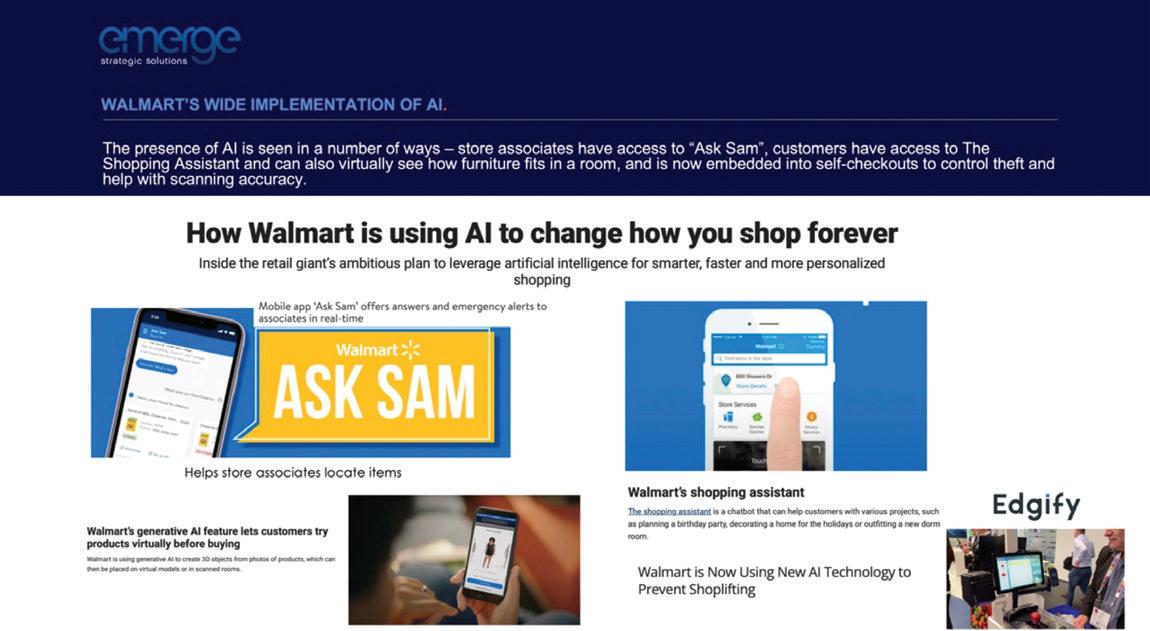
54 GLOBAL RETAIL BRANDS / MAY 2024
COVER STORY I EVOLVING FASTER AND BETTER

Increasing an acceptable failure rate:
You heard that right, when it comes to new product launches and taking risks around your own brand program, retailers should acknowledge that there is an acceptable failure rate. We come from a copycat culture, which was all about the safety of imitating proven CPG successes, and thus there really were not many failures. Create a culture that allows a little more risk.
Destination development and the meaning of “destinations”:
The word “destination” gets thrown around a little too easily, and it is a legacy of the beginnings of category management over 30 years ago. A destination is big stuff, it is meaningful, it is truly differentiating, and it is not something that can be readily copied. Destinations should NOT be so transferrable from retailer to retailer. Target’s destinations should be really different than Walmart which are different than Costco and so forth. And if you have a destination, it is even better if own brands are central to the destination. Costco doesn’t just sell a $1.50 hot dog and soda, they sell a KIRKLAND SIGNATURE hot dog, and it just doesn’t translate well anywhere else. The message in all of this is create the destinations that are meaningful and distinct to your DNA.
Driving innovation is different than the CPG world:
Many retailers have imitated a lot of the innovation and arduous research process you see within big CPGs, and for sure, retailers’ private brand departments needed more of that. However, it is also important to leave a little room for invention, intuition and reacting to trends more quickly. When Dave Nichol created President’s Choice at Loblaw he (and then ultimately a team) travelled the world, used their culinary sensibilities and invented with some hyperbole. Decadent cookies, Memories sauces, a cola that competed against Coca-Cola. This boldness would have never happened if there wasn’t a little room left for risk (and yes, failure), speed of implementation, and intuition.
WE REALLY ARE EVOLVING FASTER AND BETTER
The world of own brands has evolved tremendously, and there is still evolution to come. To summarize it all, you have the overarching transformations, the more recent changes in the industry and the opportunities that are still in front of us.
THREE OVERARCHING TRANSFORMATIONS:
• No category is taboo anymore
• Scale that exceeds the biggest CPG brands
• Consumer credibility
MORE RECENT CHANGES:
• The power of the smaller retailer
• Continued marketing prowess
• The looming impact and integration of AI
OPPORTUNITIES:
• Modernizing the shows that represent us
• Accepting more risk/failure
• Pushing for unique destinations
• Driving innovation with more degrees of freedom
“Change is at the very core of evolution and without it, all creatures would look alike and behave the same way.” [attributed to Martin Dansky]
I like to think the change in the own brands world we have seen in a mere 50 years is astounding, and it is exciting to think that there is more to follow.

Perry Seelert is retail branding and marketing expert, with a passion for challenging conventional strategy and truths. He is the Strategic Partner and Co-founder of Emerge, a strategic marketing consultancy dedicated to helping Retailers, Manufacturers and Services grow exponentially and differentiate with purpose. Please contact Perry at perry@emergefromthepack.com
www.globalretailmag.com 55
Leveraging Global Retail Media Trends to Propel Private Label Growth and Loyalty in North America
In the whirlwind world of retail, where trends come and go faster than you can say “flash sale,” one phenomenon has been making waves across the globe: retail media. Picture this – you’re perusing your favorite online store, innocently adding items to your cart, when suddenly an ad appears, tempting you with a deal you just can’t resist. Or maybe you’re wandering the aisles of your local supermarket, and lo and behold, a colorful display catches your eye, beckoning you to try something new.
The concept of retail media has emerged as a game-changer, offering brands unparalleled opportunities to connect with consumers at pivotal moments along their purchasing journey. At its core, retail media encompasses any marketing initiative that targets individuals at or near the point of purchase, transcending traditional advertising channels to deliver personalized experiences that resonate with shoppers. Whether encountering a product ad while scrolling through social media or stumbling upon a new offering showcased on an instore aisle fin, retail media captivates consumers when their mindset is most receptive, driving engagement and influencing purchase decisions.
Globally, retail media has skyrocketed as a data-backed advertising channel for brands, encroaching on traditional channels, like linear TV. While private-label brands haven’t yet harnessed its full potential in North America, global private labels have already realized positive returns on retail media investment. As North American retailers continue to grow their Retail


Media Networks, private-label brands will look to retail media to help grow market share in an increasingly competitive landscape.
Understanding Retail Media Networks:
Central to the retail media ecosystem is the concept of a Retail Media Network (RMN), wherein retailers curate advertising platforms across their e-commerce apps, websites and physical stores. By harnessing the power of these networks, brands gain unprecedented access to shoppers at various stages of the path to purchase, enabling them to deliver targeted ads that drive brand awareness and foster brand loyalty.
Data-Driven Insights:
Key to the effectiveness of retail media is its reliance on data-driven advertising. Retailers with robust loyalty programs collect a wealth of information about their customer’s preferences and purchase behaviors, which they share with CPGs to facilitate the delivery of relevant ads. This symbiotic exchange of data not only empowers brands to craft compelling campaigns but also provides invaluable insights into return on investment, enabling them to make informed decisions and optimize their advertising strategies.
Driving Sales and Enhancing Visibility:
Retail media offers a myriad of benefits for private-label brands, including increased sales growth and heightened brand visibility. Targeted placements enable brands to reach specific audiences along their purchase journey, tapping into consumer interest and driving engagement. Additionally, personalized shopping experiences foster consumer loyalty, making it easier for shoppers to discover and embrace private-label products.
Measurable ROI and Access to First-Party Data:





One of the most compelling aspects of retail media for private-label brands is its ability to deliver tangible returns on investment. By leveraging retailer-collected data, brands gain valuable insights into shopper behavior, enabling them to refine their strategies and drive business success. Furthermore, retail media serves as a strategic tool for supporting negotiations with retailers, providing brands with a platform to showcase their value and secure favorable pricing or margins.
56 GLOBAL RETAIL BRANDS / MAY 2024 COLUMN
Tangible Benefits for Private Label Brands:
In the retail landscape where every decision counts, private-label brands are discovering a powerful ally in retail media. Retail media, facilitated by platforms like Plan-Apps, not only provides a platform for brand visibility but also offers invaluable insights into consumer behavior, guiding private-label brands toward informed and effective investment decisions. Every dollar spent becomes a piece of actionable data, illuminating the path to success for private-label brands. Through partnerships with retailers, private label campaigns have unveiled remarkable performance metrics. Utilizing anonymized retailer data, we’ve witnessed a remarkable $3.81 ROI for private label SKUs compared to $1.36 for branded SKUs, as reported in Plan-Apps Feb, 2024. This isn’t just a statistic; it’s a testament to the transformative potential of retail media for private-label brands. Retail media doesn’t just offer insights; it delivers tangible returns on investment. RMNs are indispensable for private label success and set the stage for long-term customer loyalty.
Omnichannel Presence and the Shopper Journey:

Consumers no longer follow a linear shopping journey as the retail landscape continues to evolve. Research indicates that over 50% of customers engage with 3-5 channels each time they make a purchase (McKinsey & threefold.team

Company, “What is omnichannel marketing?” August 17th, 2022). This shift highlights a crucial reality: CPGs must be present across multiple touchpoints to reach consumers effectively. By leveraging RMNs, CPGs can enhance their presence and influence at the point of purchase across various physical and digital channels. Leading retailers in the US underscore the importance of creating a cohesive omnichannel experience. By aligning in-store retail media with digital channels, brands can deliver a seamless journey for consumers, enhancing brand visibility and driving conversion. RMNs provide the platform for brands to engage with consumers at critical moments, ensuring that their products are not only found but purchased. By embracing these networks and taking an omnichannel approach, brands can maximize their impact, ultimately driving growth and loyalty.
Influence on Shopper Perceptions:
Perhaps most importantly, retail media significantly influences shopper perceptions, driving awareness, interest and learning about new products and brands. As consumers encounter targeted ads across various touchpoints, they are more likely to consider and embrace private-label offerings, leading to increased adoption and loyalty over time.

Embracing the Future of Retail Media:
The retail landscape is undergoing unprecedented transformation. The trajectory of retail media is one of exponential growth and innovation. The role of retail media in driving growth and loyalty for private-label brands in North America cannot be overlooked. With advancements in technology and evolving consumer behaviors, the opportunities for private-label brands to capitalize on retail media are vast and diverse. By embracing data-driven strategies, enhancing brand visibility, and fostering meaningful connections with consumers, private-label brands can unlock the full potential of retail media to thrive in a dynamic marketplace.
Behind every ad, every click and every sale lies a story waiting to be told – and it's about to unfold right here in North America. By illuminating the transformative potential of retail media and its implications for private-label brands, we embark on a journey toward a future where brands and retailers alike can redefine the retail experience, one personalized interaction at a time.

Amber Roberts is the Partnership Director at Threefold, the global retail media expert agency responsible for 10+ Retail Media Networks. With nearly two decades in retail, including a tenure at Kroger, Amber’s expertise drives the success of omnichannel marketing strategies for retailers and brands across categories.
www.globalretailmag.com 57 AMBER ROBERTS Partnership Director THREEFOLD
PRIVATE LABEL PACKAGING TRENDS
It’s an exciting time to be in packaging design, with a new wave of innovation and regulatory changes shaping the landscape.
As retailers navigate the ever-evolving world of private label products, packaging design continues to be a crucial differentiator in capturing consumer attention and loyalty. In 2024, we’re witnessing a dynamic interplay of design elements that redefine the essence of private label packaging. From the nostalgic allure of reimagined classics to the bold and playful use of hyper contrasts, brands are leveraging design to evoke emotions and tell compelling stories. Complimentary illustrative elements, once seen as mere embellishments, are now integral to creating immersive brand experiences. Meanwhile, the use of brand characters and mascots continues to resonate with consumers, offering a unique avenue for brand-person relationships.
Simultaneously, packaging is becoming a canvas for storytelling, with sourcing narratives and origins taking center stage. Bold shapes and unexpected color choices are breaking traditional norms, inviting consumers to explore products with a sense of curiosity and adventure. The artistry of illustrative work is elevating packaging, blurring the lines between functional packaging and artistic expression. As we delve into the top private label packaging design trends of 2024, it’s evident that packaging is no longer just a vessel for products; it’s a gateway to brand experiences that captivate, engage, and ultimately, drive consumer loyalty.
New Key Packaging Trends for 2024:
1. Nostalgia meets modern:
One of the main design trends emerging in food packaging for 2024 is the fusion of nostalgia with modern design. By giving classic elements a contemporary twist, brands can evoke feelings of warmth and familiarity. This trend aims to capture a sense of fun, resonating with consumers seeking comfort and nostalgia.
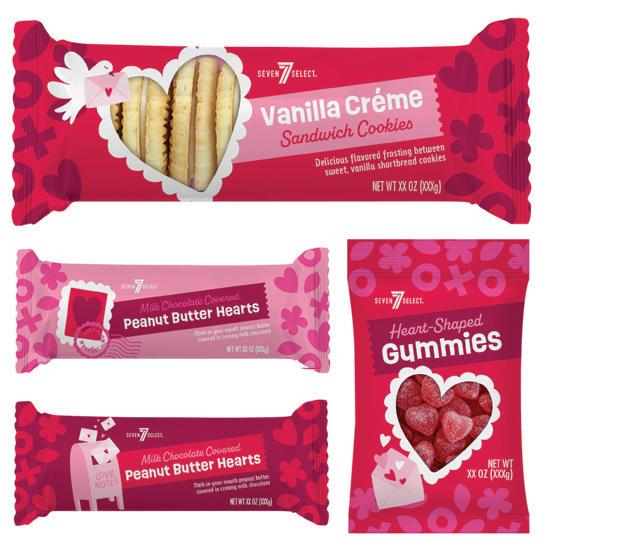
2. Hyper contrasts:
Another notable design trend for 2024 is the use of hyper contrasts. This approach embraces a 'more is more' philosophy to capture consumer attention. It revolves around juxtaposition, using mismatched, highly saturated colors to create a bold and playful look. Brands that embrace this trend can purposefully clash creative elements to leave a strong and impactful impression on consumers.

3. Discreet but deluxe:
The 'Discreet but Deluxe' trend focuses on creating intrigue and allure through intentionally subtle design choices that unfold throughout the unboxing experience. It's about creating small moments of discovery that keep consumers engaged and enhance the perceived value of the product.

Carrying On from 2023
Carrying over from 2023, we continue to see several design trends that are as popular as ever. These include the use of complimentary illustrative elements, playful patterns and depictions of food, storytelling through sourcing, bold shapes, unexpected color choices, and the enduring appeal of brand characters and mascots. These trends remain effective in capturing consumer attention and creating memorable brand experiences.
58 GLOBAL RETAIL BRANDS / MAY 2024
COLUMN
1. Complimentary illustrative elements:
MBD designed the Member’s Selection brand to communicate high quality, trustworthiness, and affordability. This design exudes appetite appeal, speaking to customers in a friendly, fresh, and inviting manner. The window showcases the product, and playful hand-drawn illustrations add an original twist. The tone is inviting, bright, and cheerful, making it easy to distinguish in the club.

2. Playful use of patterns with food:
The playful use of patterns on food packaging continues to be a prominent trend, adding a touch of whimsy and charm to product presentation. Brands are leveraging patterns to create visually appealing packaging that stands out on shelves and resonates with consumers. Whether it's bold geometric shapes, lively illustrations, or intricate designs, these patterns add depth and character to packaging, enhancing the overall brand experience and drawing consumers in with their delightful and engaging aesthetics.
 MARIA DUBUC President MBD
MARIA DUBUC President MBD

3. Sourcing story telling:
MBD set out to create an 'Andes Mountain range' look, tone, and feel for this Sprouts Farmer's Market chip packaging. The sunshine rising in the back brings light and positivity, complemented by an Inca-inspired subtle illustration in the mountain range, mimicking a traditional Peruvian pattern for storytelling. The hero of the concept is the photography, showcasing the gorgeous Andes Mountains-grown chips. This packaging thoughtfully celebrates the uniqueness of these chips with its carefully designed concept.

4. Beautiful illustrative work:
Infusing a beautiful and whimsical illustration style into the butter cookies design helped to not only elevate the packaging, but to help sell the upscale cookies ingredient story. The product name pops off the cream in a whimsical yet easy to read font, while the beautiful product photography showcases the product.
KATIE LOCKE Sales & Marketing Manager MBD

5. Mascots:
The trend of using mascots or characters on packaging continues to be a powerful strategy, adding personality and creating a memorable brand identity that resonates with consumers. This friendly design for BJ’s Wellsley Farms organic applesauce showcases the pouches, perfect for on-the-go snacks or lunch boxes. The product claims are clearly communicated and playfully highlighted, integrated with a cute character mascot.



Marketing By Design is a full-service strategy, creative, production and workflow packaging design agency built to meet the challenges and opportunities facing Private Label and National Brands today.
Interested in working with MBD?
Maria Dubuc, mdubuc@mbdesign.com
Katie Locke, klocke@mbdesign.com
www.globalretailmag.com 59
EMBRACING DISRUPTION: 6 Trends
Revolutionizing
Retailer-owned Brands
In the ever-evolving retail landscape, Retailer-owned Brands (private brands) have emerged as a formidable force that has disrupted traditional consumer patterns and reshaped the industry’s dynamics. As retailers navigate this dramatic change, understanding and adapting to the latest trends is essential for fostering growth and cultivating customer loyalty. Here, we explore the six trends disrupting private brands and provide actionable strategies for retailers to not only survive but thrive in this transformative era.
1. Sustainability Takes Center Stage:
In an age where environmental consciousness is paramount, consumers are increasingly gravitating towards eco-friendly products. Retailers can capitalize on this trend by incorporating sustainable practices into their private brand portfolio. From utilizing recyclable packaging to sourcing ethically produced ingredients, prioritizing sustainability attracts environmentally conscious consumers and fosters long-term brand loyalty.
2. Digital Transformation:
The digital revolution has revolutionized how consumers shop, with e-commerce platforms offering unparalleled convenience and accessibility. Retailers must embrace digital transformation by leveraging technology to enhance the visibility and accessibility of their private brands. From intuitive online interfaces to personalized recommendations, investing in digital solutions can significantly elevate the customer experience and drive sales.

3. Health and Wellness: With an increasing emphasis on health and wellness, consumers seek brands and products that align with their dietary preferences and lifestyle choices. Retailers can capitalize on this trend by expanding their private brand offerings to include a diverse range of health-conscious products. Whether it’s organic snacks or plant-based alternatives, catering to health-conscious consumers broadens the customer base and positions the brand as a trusted ally in promoting well-being.
4. Transparency and Authenticity: In an age of information overload, consumers are increasingly discerning and demand brand transparency. Retailers can build trust and credibility by being transparent about their sourcing, production processes, and ingredient origins. By fostering an environment of authenticity, retailers can forge genuine connections with consumers and cultivate brand loyalty based on mutual trust and transparency.
5. Innovation and Agility: With consumer preferences evolving rapidly, retailers must demonstrate agility and innovation to stay ahead of the curve. Embracing a culture of experimentation and risk-taking allows retailers to adapt to changing market dynamics and seize emerging opportunities. Whether introducing new brands, novel product formulations, or pioneering innovative marketing strategies, embracing innovation enables retailers to carve out a distinct competitive edge in the market.


6. Community Engagement:
Community engagement has become a cornerstone of brand loyalty in an increasingly interconnected world. Retailers can foster a sense of community around their private brands by actively engaging with consumers through social media, events, and community initiatives. By nurturing meaningful connections with consumers, retailers can cultivate brand advocates championing their products and contributing to long-term brand success.
In conclusion, the landscape of private brands is undergoing a profound transformation, driven by shifting consumer preferences and technological advancements. By embracing these six trends, retailers can grow their private brands and cultivate a loyal customer base that passionately embraces and advocates for their brands. As the retail landscape continues to evolve, those who are agile, innovative, and customer-centric will undoubtedly emerge as the leaders of tomorrow’s Retailer-owned Brand revolution.
Christopher Durham
Christopher founded the groundbreaking site My Private Brand. He is the co-founder of The Vertex Awards. He began his retail career building brands at Food Lion and Lowe’s Home Improvement. Durham has worked with retailers around the world, including Albertsons, Family Dollar, Petco, Staples, Office Depot, Best Buy, Metro Canada. Durham has published seven definitive books on private brands, including Fifty2: The My Private Brand Project and Vanguard: Vintage Originals.
60 GLOBAL RETAIL BRANDS / MAY 2024 CHRISTOPHER DURHAM President VELOCITY INSTITUTE COLUMN
RETAILERS CAN ACCELERATE CORPORATE SUSTAINABILITY GOALS WITH PRIVATE LABEL
As retailers globally look to reduce their carbon footprint, many of their own products offer the opportunity to make a significant impact. Revamping private label lines can provide the direct results needed to meet corporate sustainability goals. The endeavor is not always simple, but the emphasis here can provide retailers with high-quality products at a strong value that are also thoughtfully made.
At the center of the work required by retailers to make these changes to store brand products, is data. Identifying where the major greenhouse gas (ghg) emissions come from in a product line is an important first step. Many retailers are often surprised to find it’s not the packaging or transportation of the private label line, but the raw materials sourced that account for the most ghg emissions. Over 70% of a food product’s impact is derived from the land use required to grow the raw materials for production. What happens on-farm, such as the use of synthetic fertilizers, will have a further negative environmental impact for those individual ingredients. In order to revamp private label lines, an emphasis on upstream impact is necessary.

As grocery retailers look to improve their private label programs, the use of impact data is important for business functions both internally and externally.
Arm Internal Decision Makers with Upstream Impact Data
In order to effectively meet sustainability targets, the decision makers at the product level need to be a part of the conversation and have access to the right impact data. Product formulators, who are adding new items to private label lines, are responsible for a myriad of decisions to ensure they’re producing items that taste great, are visually appealing, and meet consumer expectations. With product sustainability data in hand, product formulation teams can begin to get familiar with how their new items are going to impact the larger organizational goals.
This approach extends to private label procurement teams as well, who have struggled to balance corporate sustainability commitments with business operatives around private label products. Sourcing practices
significantly impact the emissions factor of each ingredient used in a food or beverage SKU. With supplier data in hand, procurement teams can identify where to source those ingredients from to better keep carbon emissions reduction targets in line with organizational goals throughout the process. These buyers can then analyze a supplier’s ESG metric performance alongside price and specifications, and better strategize on the sustainability implications of their sourcing decisions.

62 GLOBAL RETAIL BRANDS / MAY 2024 COLUMN

Effectively Communicate Impact Downstream to Shoppers
Having customer demographics are critical to be able to communicate the work a retailer has done in its sustainability initiatives. With these details, retail teams can better package the metrics of their emissions reduction improvements in a manner that will resonate with shoppers. Ingredient data plays an important role to substantiate on-pack sustainability claims. With so many certifications and standards that can be applied, simplicity in messaging is key to showcase the impact quickly at the moment of purchasing intent, whether it’s at the shelf in-store or digitally for e-commerce. Consider how North American grocery retailer Giant Eagle promoted its new product formulation efforts across its private label line Nature’s Basket. Ratings on each of the products included easy-to-understand climate labels of “Good”, “Great”, or “Best” to denote an overall environmental and social sustainability impact better than more than 75%, 85%, and 95% of food products assessed through a similar rating.


Separate from on-pack claims, shelf tags can provide further details on how individual products stack up against a variety of environmental attributes including using less water, having a lower greenhouse gas emissions, having fewer than seven ingredients, made without industrial processing, minimize the use of petroleum-based herbicides, fertilizers and other chemicals, and those that respect workers’ rights. Access to these insights at the shelf-edge can help consumers make informed purchasing decisions.
Grocery retail is one industry that can lead by example to effectively reduce its overall emissions. The food industry is faced with the reality that 34% of global emissions are generated by the food system. What’s more, 87% of a food company’s emissions are Scope 3, meaning emissions that are out of their direct control. Supplier data will be a necessary part of the equation to enable internal decision-makers to meet sustainability goals, and to allow for effective shopper communications strategies.
Private label development teams can formulate new products with a lower carbon footprint and increase sales among conscientious consumers to drive brand loyalty from customers looking for a new level of transparency. Advancing sustainability initiatives will only serve retailers, who can assume the first educator advantage, and establish brand loyalty with audiences who are seeking out information on the impact of their food choices.
Cristina Lampert is Director of Growth and Innovation at HowGood, a third party research group with the largest food ingredient sustainability database, where she enables major retailers and consumer packaged goods with a sustainability impact platform that models environmental and social impact based on their ingredients and sourcing locations.
www.globalretailmag.com 63
Director Growth and Innovation HOWGOOD
CRISTINA LAMPERT
INNOVATION UNLEASHED: Mastering Private Label Manufacturing in Retail
INTRODUCTION
The Evolution of Private Label Manufacturing in Retail: A Strategic Insight
In the ever-evolving retail landscape, private label manufacturing has emerged as a cornerstone for success, particularly in the food industry. With senior-level executives, category managers, buyers, merchandisers, marketing managers, and CEOs increasingly focusing on private label strategies, understanding this sector’s intricacies is crucial. This article aims to shed light on the opportunities and challenges of private label manufacturing, providing practical insights for those at the helm of retail and private label industries.
IDENTIFYING
OPPORTUNITIES AND CHALLENGES
Seizing Opportunities and Navigating Challenges in Private Label Manufacturing
The allure of private label manufacturing lies in its ability to offer retailers and suppliers control over product quality, branding, and market positioning. However, this comes with its own set of challenges. Navigating these complexities requires a strategic approach. Key opportunities include:

1. Brand Differentiation: Private labels allow retailers to differentiate their offerings, creating unique products that cater to specific customer needs and preferences.
2. Cost Control: By overseeing production and supply chain processes, companies can efficiently manage costs, offering competitive pricing to consumers.
3. Market Responsiveness: Private label products can be quickly adapted to changing market trends and consumer demands, ensuring relevance and appeal.
Conversely, challenges include:
1. Finding the Right Manufacturing Partner: Aligning with a manufacturer that meets your quality standards and production needs is crucial.
2. Supply Chain Management: Efficiently managing the supply chain is key to ensuring product quality and timely delivery.
3. Regulatory Compliance: Navigating the complex landscape of food safety and regulatory compliance is essential to avoid costly mistakes.
PRACTICAL STRATEGIES FOR SUCCESS
Implementing Effective Strategies in Private Label Manufacturing
To capitalize on the opportunities and overcome the challenges in private label manufacturing, it is imperative to adopt practical strategies. These strategies, tailored to the needs of executives and decision-makers in the retail sector, are designed to enhance efficiency and drive success:

64 GLOBAL RETAIL BRANDS / MAY 2024 COLUMN
Managing Partner CIBUS NEXUM

1. Strategic Partnership Selection:
• Vet Potential Manufacturers: Rigorously assess manufacturers for quality standards, production capabilities, and alignment with your brand values.
• Leverage Industry Networks: Utilize connections within the food industry to identify and secure the best manufacturing partnerships.
2. Efficient Supply Chain Optimization:
• Implement Technology Solutions: Utilize technology for better supply chain visibility and management.
• Adopt Lean Manufacturing Principles: Streamline production processes to reduce waste and improve efficiency.
3. Focused Market Research and Trend Analysis:
• Understand Consumer Behavior: Conduct detailed market research to align products with consumer preferences and trends.
• Adapt to Market Dynamics: Be agile in adapting your product offerings to changing market conditions and trends.


4. Quality Assurance and Regulatory Compliance:
• Implement Rigorous Quality Control: Ensure consistent product quality through stringent quality checks and testing.
• Stay Informed on Regulations: Keep abreast of the latest food safety and regulatory changes to ensure compliance.
5. Innovative Product Development:
• Embrace Consumer Trends: Develop products that resonate with emerging consumer trends, such as plant-based or sustainable options.
• Collaborate for Innovation: Work with manufacturers and suppliers to develop innovative products that set your brand apart.
By implementing these strategies, businesses can effectively manage the complexities of private label manufacturing, ensuring product quality, market competitiveness, and consumer satisfaction.
Deepening Collaboration with Manufacturers in Innovation
In the realm of private label manufacturing, the genesis of innovation often originates not within the retail sector, but from the industry itself, particularly manufacturers, ingredient suppliers, and packaging companies. Understanding and harnessing this dynamic can be a game-changer for retailers.
Source of Innovative Ideas: Innovation primarily emerges from the industry, as manufacturers, ingredient suppliers, and packaging companies are at the forefront of technological advancements and market trends. They possess the technical expertise and resources to develop new products and solutions.
Fostering Favorable Innovation Conditions with Manufacturers: Manufacturers are more inclined to share their innovations with retailers who establish a strong, symbiotic relationship. Key factors influencing this include:
continued on next page >
www.globalretailmag.com 65
STIJN DE
BATS
continued from previous page >
• Trust and Transparency:
A transparent relationship where both parties share goals and challenges fosters trust, leading manufacturers to be more open with innovations.
• Long-Term Commitments:
Manufacturers favor retailers who demonstrate commitment through long-term contracts or consistent business, providing stability and assurance for future collaborations.
• Cooperative Development: Retailers who actively engage in product development, offering insights and market knowledge, are seen as valuable partners.
• Volume and Loyalty:
A retailer’s promise of volume and loyalty can incentivize manufacturers to prioritize them for their latest innovations.
• Openness to Experimentation: Retailers open to experimenting with new ideas are more likely to receive innovative solutions from manufacturers.
To maximize benefits from these relationships, retailers should focus on building long-term partnerships, engaging in joint product development initiatives, and maintaining a balance between volume assurance and innovation adoption.
Stepping Back in the Supply Chain:
Recognizing that many innovations originate from ingredient and packaging suppliers, retailers should:
• Stay Informed on Industry Trends: Actively follow trends and innovations in ingredients and packaging by attending trade shows, reading industry publications, and engaging in industry forums.

• Challenge Private Label Manufacturers: Encourage your manufacturers to incorporate these innovations into the products they produce for you. This can be achieved through regular meetings focused on innovation, setting up innovation-specific objectives, and providing incentives for adopting new technologies or ingredients.
Tips for Staying Informed and Proactive:
1. Attend Industry Conferences and Trade Shows: These are hotbeds for the latest innovations, providing insights into emerging trends and networking opportunities with suppliers and manufacturers.
2. Subscribe to Industry Publications: Regularly read trade magazines and online publications to stay updated on new developments.
3. Network within the Industry: Engage with peers, suppliers, and experts in the industry to gather diverse perspectives and insights.
4. Leverage Digital Platforms: Utilize online forums, webinars, and industry-specific social media groups to stay connected and informed.
By focusing on these strategies, retailers can not only keep abreast of the latest innovations but also effectively integrate them into their private label offerings, thus enhancing their market competitiveness and consumer appeal.
CONCLUSION
The landscape of private label manufacturing is continuously shaped by innovation, predominantly driven by manufacturers and suppliers. Retailers, by cultivating robust relationships with their manufacturers and staying informed about industry advancements, can effectively integrate these innovations into their product offerings. This approach not only enhances the competitiveness of their private label brands but also ensures they remain relevant and appealing in a rapidly evolving market. Embracing this collaborative and informed strategy is key to thriving in the dynamic world of retail.
Stijn de Bats
Managing Partner at Cibus Nexum and a food technology expert with 25 years of experience in the food industry and private label manufacturing projects. Cibus Nexum is an independent service provider, specializing in connecting brand owners, retailers, and producers through innovative solutions and partnerships. With their unique FoodFlow Method they transform food production from concept to market.
66 GLOBAL RETAIL BRANDS / MAY 2024
INNOVATION UNLEASHED




STORE BRAND WINES PUT TO THE TEST
Steady Growth In Quality Of Supermarket Wines
Over The Years
The Private Label Manufacturers Association (PLMA) awards the best private label wines from retailers every two years. The Salute to Excellence Wine Awards are given to the best wines in their respective categories. Recently, a panel of specialists conducted a blind tasting and rated the wines that were submitted by retailers and gathered by PLMA. As a member of the jury, I asked my fellow judges about their thoughts on the quality of private label wines.
I cannot disclose the results of the 2024 International Salute to Excellence Wine Awards at this time as the winners will be exclusively announced by the PLMA during their tradeshow in Amsterdam on the 27th of May. However, I can provide some insights into the private label wine category and share a hint about the upcoming winners.
This year, the PLMA presented 135 wines from 19 retailers across 7 countries to their eight wine judges. There were two awards given in each category - one for Best Quality and one for Best Value. This year, there were a total of 42 awards given across 21 categories. Some of the categories included sparkling whites, Chardonnay, rosé, South, Mid and North Italian reds, Californian Cabernet and blends, Prosecco, South African and Australian whites, French

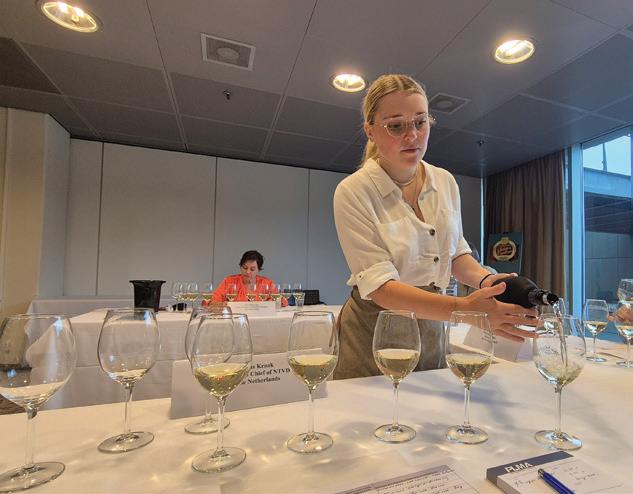
appellations, Iberian reds and whites, Moscato, Moscatel, Sauvignon, Pinot Grigio, Pinot noir, and more.
The Jury is In
The judges of PLMA come from different backgrounds, including Master of Wine Cees van Casteren who leads the tasting, sommeliers, wine importers, and wine writers and journalists. I myself am one of the latter. As a wine and culinary writer, I have visited hundreds of wineries and wine tastings around the world, sampling thousands of different wines. While I don’t want to exaggerate, I can recall tasting as many as ninety wines in a single day, such as during a tasting of Canadian wines. Starting at breakfast and continuing until dawn, it can be quite a job! However, I don’t complain, and you needn’t worry - the PLMA divides the judges into two panels. Each group of four judges is tasked with scoring around 67 wines in one day, which is still a tough job but reasonable for experienced tasters.
As I reflect on the 68 wines that I tasted, I noticed that the overall quality of the wines was quite good. The wines were technically well-made, and over the years, I’ve observed that even bulk producers have embraced technology in their cellars and bottling plants, which has resulted in better entry-level wines.
This is where the tasting jury, in this case the PLMA jury, comes in. They determine which wines are outstanding and perform better than others. To give you a hint, for me, two Portuguese wines in the Iberian red category were very pleasing, and most of the Californian Cabs did very well. You won’t regret serving them at a reception or a wine bar or pairing them with a meat plate.
The Pinot Grigios, on the other hand, were remarkable whites and all had a good basic level. However, the roses were a bit disappointing. Several wines sent in were

68 GLOBAL RETAIL BRANDS / MAY 2024 COLUMN
PRIVATE LABEL WINE SERIES
from 2022, but the younger ones from 2023 were better. For a crisp rose, youth is essential, and to maintain good quality, it is important to store and transport them correctly - not for too long or too hot - otherwise, their quality can quickly diminish.
Diversity in Private Label
According to Master of Wine Cees van Casteren, this year’s entries for Salute to Excellence are of a very high standard. He confirms that they have not found any faulty wines, and that the quality is improving every year. In fact, he finds it incredible that at this price level, one can get such a great value for money. However, Cees laments that English supermarkets are not participating in the Salute to Excellence, opting instead to participate in established competitions such as Decanter and IWSC. He feels that if more supermarkets worldwide participate in the Salute, it will help increase the competition’s prestige.
Van Casteren believes that private label wines’ quality varies greatly by country. In England, every supermarket has its own selection, while in the Netherlands, it was mainly available in the lower price segment. However, Albert Heijn’s efforts are changing that. Although AH promotes their private label wines modestly, the quality is improving every year, and they now offer premium options.
Van Casteren points out that AH is the only supermarket in the Netherlands that offers private label products in the premium category, whereas others mostly focus on lower-priced products such as liter bottles. In the Netherlands, private labeling is often associated with lower-priced products, especially the so-called “extreme value wines”. However, AH is slowly changing this tradition. During our testing, the most outstanding wine we tasted was a Chilean cabernet
sauvignon that cost €4.49 for a whole liter and was of great quality. This wine could easily compete with many other wines that are priced €2 higher for a regular 75cl bottle.
Belgian Market
Another juror for PLMA, Alain Bloeykens, a famous Belgian wine writer, shares the perspective from his country. He says bulk of wine is sold in supermarkets and private label wines have a low share, around 10% of the total market. However, retailers with specialized wine buyers pick out the best wines for their customers, often bottling the wine themselves with a small sign of the retailer. Bloeykens is astonished by the developments in private label wines in the last few decades and believes that the overall quality is good.

The quality of private-label wines available in Belgian stores is highly dependent on the buyers. Bloeykens explains that retailers like Colruyt and Delhaize, known for their wine assortments, have specialized Belgian wine buyers who have a thorough understanding of the local market. However, some discounters purchase more centrally and may not meet the taste preferences of Belgian consumers as well. Consequently, these retailers have less shelf space for wine.
Belgian consumers have the privilege of choosing from a wide selection of wines from over 31 countries. According to Bloeykens, this is amazing. Supermarkets offer wines that provide a great introduction to new tastes,
particularly for those who are new to wine. These affordable wines can be a starting point for people to try different types of wine or regions. If they like a particular type or region, they can then visit specialized stores to explore more. This way, supermarkets and specialized stores complement each other. Some retailers are even shifting their focus to offer more premium wines segment. For example, Colruyt sells particular, more expensive wines, online only.
Loyal et Marchand
Antoine Gerbelle, a French wine journalist, participated in a wine panel and agreed with his fellow judges that private label wines have improved in quality. He confirmed that they are technically well made and better than before. He also stated that all the wines tasted were sound and fair of merchantable quality, which is referred to as ‘Loyal et Marchand’ in France. While most of the supermarket wines were not as complex as the premium wines, they had a good basic level. In contrast to Belgium, French consumers mostly drink wine produced in their own country. Gerbelle revealed that 98 percent of the wine in French supermarkets is French, which is not surprising considering France is a big wine producing country.
Somebody get me a beer please!

Hans Kraak is educated in biology and journalism and wrote four books about nutrition and health. He worked for the Dutch ministry of Agriculture, Nature and Food quality and the Netherlands Nutrition Centre. As editor in chief he publishes in the Dutch Magazine for Nutrition and Dietetics, as a food and wine writer he published in Meininger’s Wine Business International and reports for PLMA Live EU and PLMA USA.
www.globalretailmag.com 69
HANS KRAAK Principal KRAAK MEDIA PRODUCTIES
WHAT DOES IT TAKE FOR YOUR NEW PRIVATE BRAND TO SUCCEED?
Here’s what only an experienced design partner will know…
You are a retail marketing leader. Your private brand’s current package design has aged… and it looks it. A competitor has recently launched a private brand makeover and it’s getting a lot of attention in the marketplace. Private brand sales are on the rise, and there’s pressure on your team to re-energize your brand so that they get their fair share of the growing private brand pie. It’s time to start a private brand redesign.
But what’s the brief?
Award-winning creative?
Low-cost adaptation?
Speed to market?
The answer:
All of the above.
Today’s private brand leaders can’t afford to waste time or money or miss the mark on new design. They need to aim right for the pocket of quality and value. The right agency gets it. They know exactly what it takes to revitalize brands efficiently and cost effectively and will bring passion that can ignite purpose in a retail organization.
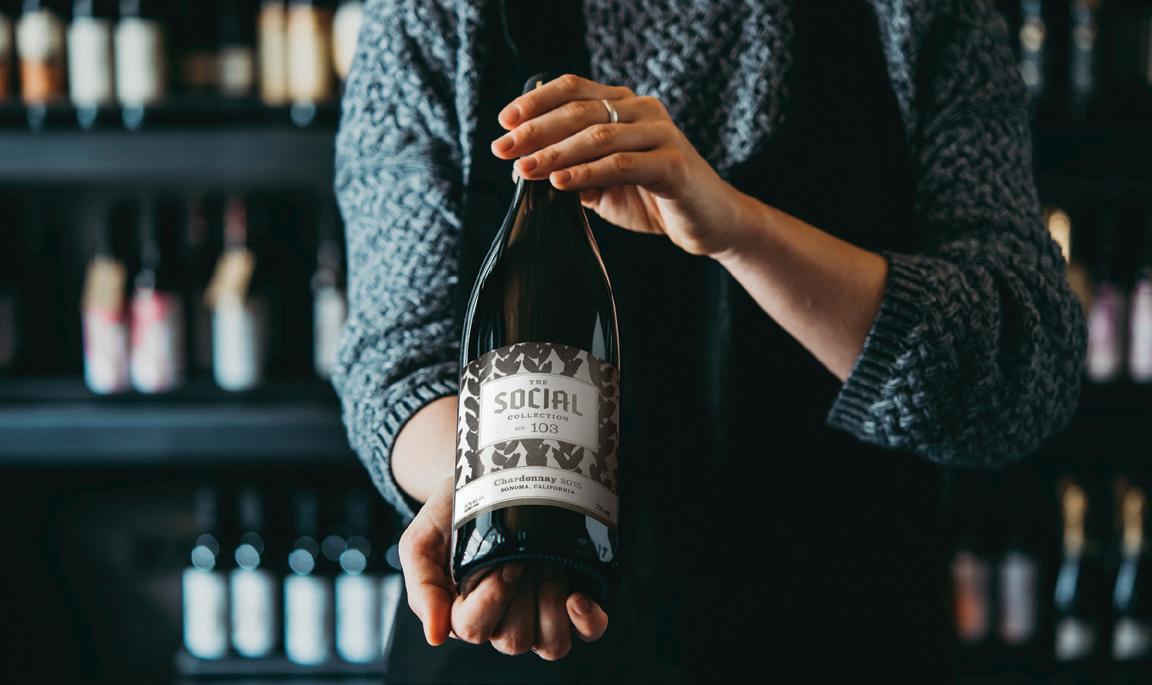

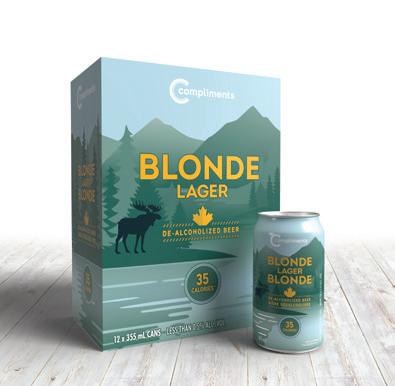
Here’s what it takes for your private brand redesign to succeed:
It Takes an Experienced Private Brand Design Partner
Your RFP for a private brand design agency will get responses from many creative agencies. Some may have a great creative reputation, strong workflow management processes, or efficient costing, but when it comes to private label design, experience should be very high in the list of decision criteria.
Private brands can span across hundreds of categories and thousands of SKUs. Successfully designing this many products takes practiced understanding of the unique challenges of private brands. The goal of your design is to make each product distinct in its category, and yet all part of the same private brand family – a complex task. It takes a very special group of artists to work painstakingly and patiently to make every product successful. It helps if they have tackled major private brand designs before.
It Takes Appreciating Category Breadth
While private brand design experience is essential, so is understanding how differently design impacts each category. With packaged goods, there are vastly different requirements for different products - from aspirin to aluminum foil, and from cookies to cat food. Each category has different competitors, regulatory requirements, and communication priorities.
As one designer once told us explaining his design experience: “I’ve designed up and down every aisle ten times.” We hired him right away! This type of designer builds a team that can tackle any design challenge and can work proactively, bringing insights and design solutions for each category to the client, rather than the client having to inform the agency.


It Takes Understanding Value Perception
The private brand redesign brief needs to include all the details about the scope of the assignment, including key guidance about value perceptions. A retailer might be redesigning for many reasons: faded design and stagnant sales, keeping up with competitors, new trends, changed formulas or regulations.
70 GLOBAL RETAIL BRANDS / MAY 2024 COLUMN
BEFORE AFTER
Whatever the reason, a clear brief around value perception is your best, first chance at having a great redesign. These are just some key questions:
• What are the perceptions of your current design? What does it say customers?
• What is its value perception? What quality is it expressing? Why?
• Does the price seem fair for the quality, or not?
• Are there private brand ‘competitors?
• What quality and value perceptions should the redesign have?
• What needs to shift?

AFTER

It Takes a Passion for the Puzzle of a Design System
Often the key to the best private brand design is the success of the design system. As consumers navigate (real or virtual) aisles looking for your products, they need a system to help them find what they’re looking for. Just like traffic signs are always the same in any road, a consumer needs consistent cues across the private brand to help them understand product differences within and across categories:
• Tiers of quality in the same brand
• Size differences
• Flavor or variety differences
• Special formulas or features
• E-commerce thumbnails
Your private brand design partner should feel passionately about developing this system. It’s the key framework that makes the design roll-out across all categories seamless, in a schedule that’s timely and affordable. The degree of enthusiasm about the design system should be a good clue about how well your design partner plans, and their readiness for the long haul ahead.

It Takes an Ability to Lead Vendors
When redesign projects are vast, a retailer might need more resources in ensuring the new design is applied well to each SKU in every category, and that all private brand vendors have what they need to complete the redesign. Ideally then, you have a creative design partner who has experience in managing vendors on behalf of their clients. This means having systems where all information is managed and stored, an ability to support vendors with less experience in design changes, and a vision for consistent design quality across the brand despite the variety of vendors and their printing substrates. This extension of resources can be an important capacity to ensure redesign success.
THE FISH AGENCY

It Takes a Workflow that Works
A major rebrand has many complex stages and stakeholders who need to provide input and approval at every juncture. Not having a clear process in place can create confusion, hold up workflow and ultimately end up costing time and money.
A good redesign project is supported by a good workflow process. Effective workflow has the following characteristics:
• Clearly defined roles for all contributors
• Goals and timing
• Tools to communicate and manage progress
• Quality control measures
You want to work with a creative partner who is also passionate about workflow process. As passionate about workflow as they are about the design system.

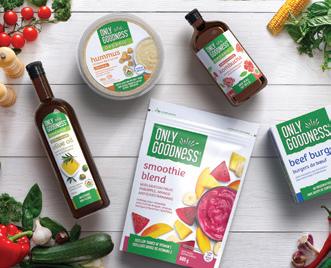
Looking for a redesign partner that has what it takes? At FISH, we’re very proud of our private brand redesigns and how they have put new life into our clients’ brands. All on time. And on budget.
If the planning of a major packaging design is giving you pause, give us a call. We’re happy to talk through your objectives and challenges. We know we can help.
rebecca@fishoutofwaterdesign.com
www.globalretailmag.com 71 REBECCA HAMILTON CEO
BEFORE
PLMA US TRADE SHOW REPRISES SUCCESSFUL 'PHENOMENON' THEME
17 – 19 NOVEMBER 2024

Empowering the Retail Industry
The "phenomenon" continues with PLMA’s 2024 US Private Label Trade Show November 17-19 at the Donald E. Stephens Convention Center in Chicago where the largest CPG event of its kind will showcase trending and in-demand food and non-food products, elevated flavors, infused fragrances, sustainable packaging, unique ingredients, essential services, and more.
Organizers of “The Store Brands Phenomenon 2024 – Empowering the Retail Industry” are hoping to eclipse last year’s sold-out event -also themed “Phenomenon” -- that attracted a record 1,685 exhibitors, as well as 2,740 exhibit stands and more than 13,000 retailers, suppliers, and other visitors. Some 600 exhibitors were new to the PLMA Chicago event, which was 20% larger than the prior year. Non-food exhibitors alone expanded 45%.
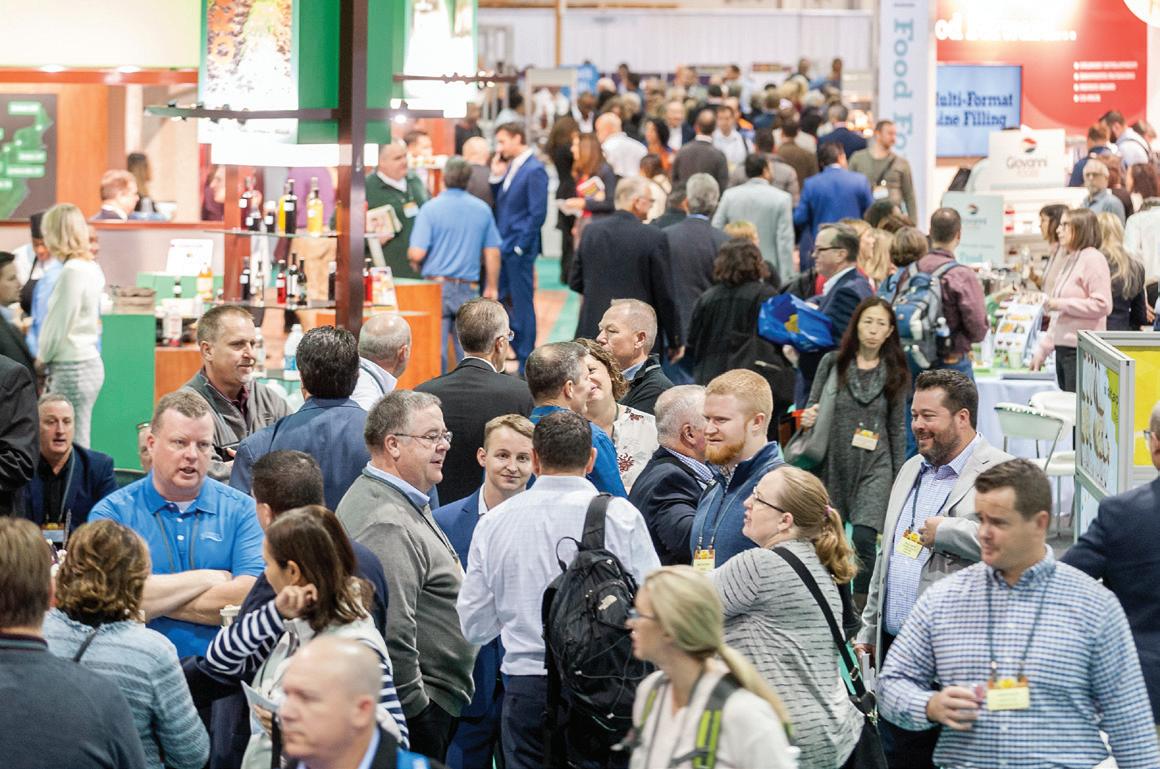
The international presence was extraordinary. More than 45% of the Show floor consisted of food and non-food suppliers from outside the U.S. Nearly 60 countries were represented at the Show, including 40 national pavilions.
Not surprisingly, retailers who attended were pleased. In an informal survey conducted by PLMA following the event, 90% said they would recommend attending the Show to a colleague, 97% reported they were able to find new products and suppliers and 92% were able to meet current suppliers. One in three said they attended for the first time in 2023 while half reported they attend regularly.

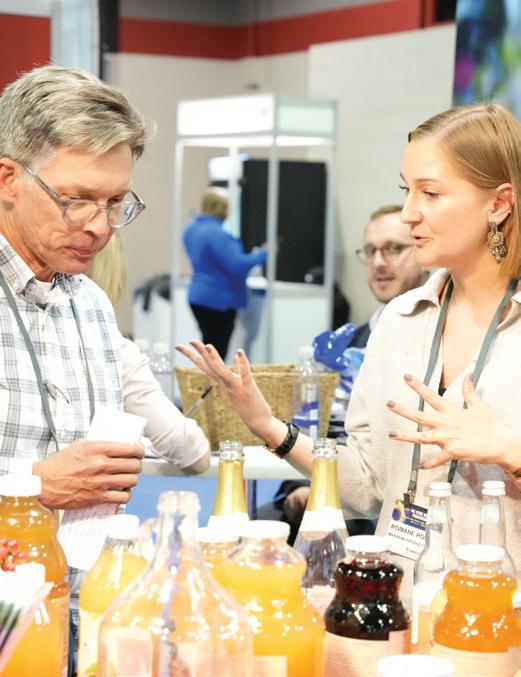
“We’re seeing the loyalty of the American consumer and the strong growth of the industry continuing not only with mainstream US retailers but with expanding channels, specialty chains and online platforms,” said Anthony Aloia, PLMA’s Corporate Vice President. “The goal of the 2024 US Show is to empower those retailers and thousands of other attendees with the opportunity to taste, touch and experience the latest innovations from global and regional authentic food and nonfood product suppliers.”
72 GLOBAL RETAIL BRANDS / MAY 2024
CHICAGO
TRADE FAIRS
The demand for store brands in the US has never been greater. The rise of multigenerational households includes store brand friendly Millennials and GenZers. In a 2024 PLMA study, more than half of 1,000 Gen Z shoppers said they “always/ frequently” choose a place to shop due to its store brands, two thirds were “extremely/very” aware of store brands, and two-thirds buy store brands “always/frequently.”
Along with a growing ethnic population and global supply chain issues abating in the US, suppliers of categories in food, beverages, food service, health and beauty, baby care, organics, refrigerated and frozen, household goods, adult care, general merchandise, kitchenware wine and spirits, pet care and specialty and gourmet food stand to benefit by exhibiting in the November Show in Chicago, advised Aloia.

Strong International Presence in Chicago
There's a lot to discover when your passport gets stamped in Chicago. The store brands phenomenon continues with thousands of authentic, gourmet and specialty products from nearly 60 countries, including 40 national pavilions, spread across three halls at PLMA's 2024 US Trade Show, 17-19 November at the Donald E. Stephens Convention Center.


The goal of the show is to bring together suppliers and retailers and give them the opportunity to network and ultimately, build lasting, global partnerships.
Suppliers exhibiting in both pavilions and individual stands will offer innovative and authentic flavors, fragrances and ingredients as well as sustainable, organic and plant-based food and non-food

products for buyers from not only traditional retailers, but also specialty chains, discounters, convenience stores and online formats seeking to satisfy the wants and needs of today’s global American consumer.
“This is a multi-billion-dollar industry and PLMA’s US Show offers international suppliers a venue to present the very best in quality and value to retailers who rely on store brands as a strategy for success,” said PLMA President, Peggy Davies. “The goal of the show is to bring together suppliers and retailers and give them the opportunity to network and ultimately, build lasting, global partnerships.”
www.plma.com

www.globalretailmag.com 73 TRADE FAIRS
PLMA’S PRIVATE LABEL SUMMIT
We asked PLMA President Peggy Davies a few questions about the 2024 program.
Private Label is a Brand
In the eyes of today’s consumer, private labels are comparable to national brands in terms of quality and trust. For retailers, they build corporate equity, competitive advantage, consumer loyalty and create growth opportunities for their producers as they share common goals of enhancing their brands’ reputation.
PLMA’s 2024 Summit “Private Label is a Brand” will explore private label from this new perspective, featuring a comprehensive agenda with presentations by retail experts and marketing professionals. Through interactive discussions and case studies, attendees will gain valuable insight into their brands’ current strengths and how to continue to build their business by developing a brand strategy roadmap.

Q. We noticed you've updated the event name from "Roundtable" to "Summit" and shifted the date from February to October. Will this be the new recurring date for the annual summits?
A. The traditional definition of roundtable is a form of academic discussion where participants discuss and debate. PLMA’s annual event has evolved into a deep dive of industry topics and information sharing. To reflect this, and as a strategic improvement, the event has been rebranded as a "Summit". October will be the recurring date for our annual international conference.
Q. The theme of this summit “Private Label is a Brand” is very opportune, why was this theme chosen?
A. The theme was chosen because of the increasing significance and evolution of private label products in the retail industry. Today, private label brands are as recognizable as the A brands and no longer described as generic or lower quality alternatives to national brands. There’s been a shift of consumer perception, with many consumers now actively seeking out private label products for their assortment along with value and quality. The unique ranges developed by retailers have established food and non-food products into “must have” destination products.


The summit will include discussions on branding, marketing, innovation, and customer engagement specific to private label and will explore strategies for building and leveraging these brands.
Q. Why did you choose Milan? Can we still expect the same rotation of different cities in Europe?
A. In Italy, the development of private label products has been significant in recent years. Italian retailers have increasingly invested in developing their own private label brands across nearly all categories. Milan was chosen for its dynamic business atmosphere and convenient accessibility. We're committed to the tradition of hosting the conference in different cities throughout Europe to ensure diversity in experiences and accessibility for attendees.
Speakers and topics will be announced soon. For more info contact: conferences@plma.nl
74 GLOBAL RETAIL BRANDS / MAY 2024 TRADE FAIRS
29 – 30 OCTOBER 2024 MILAN, ITALY www.plma.com
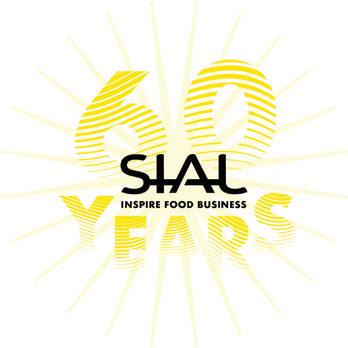
THE WORLD’S LEADING FOOD INNOVATION EXHIBITION SET TO MARK ITS 60TH ANNIVERSARY
19 -23 OCTOBER 2024 PARIS
This milestone event offers a unique opportunity for industry professionals to reflect on six decades of groundbreaking innovations while eagerly anticipating the future of the food sector.
With anticipation building, SIAL Paris 2024 is poised to host over 7,500 exhibitors representing more than 130 countries, with an impressive 75% of attendees expected to be international visitors. Renowned as the premier event for food industry players worldwide, the upcoming edition promises to be an unparalleled gathering of global innovators, thought leaders, and decisionmakers.
In the coming weeks, a special program will be unveiled, further enriching the SIAL experience. Throughout the five-day event, the food ecosystem will pulsate with vitality and conviviality, both within the convention center and throughout Paris, featuring activities that capture the essence of the culinary world.

INSPIRED BY THE PAST TO SUSTAIN THE FUTURE
Under the theme "Own the Change," SIAL 2024 aims to galvanize industry professionals to embrace ongoing transformations and tackle global food challenges. This collective movement will be fueled by showcasing exhibitors' CSR initiatives and highlighting expertise through initiatives like SIAL Insights, a biennial analysis of industry trends, SIAL Innovation, offering a glimpse into future developments, and SIAL Start-Up, which will feature twice as many promising startups in 2024, including early-stage concepts.
NEW PLAN, NEW DYNAMICS
Among the key highlights will be a new exhibitor booth arrangement. To improve the visitor experience, SIAL acknowledges 80% of visitors have expressed their wish to see the stands organized by product type in order to make more efficient rounds. The new floor plan will group exhibitors by theme.

SIAL PARIS : MELTING POT OF THE FOOD INDUSTRY
In terms of representation, France and Italy are vying for the top spot, with Italy currently leading in exhibition space, boasting over 16,000 square meters. Notably, China returns with vigor, showcasing more than 6,000 square meters of pavilions, while Ukraine and India demonstrate their growing influence on the global stage.
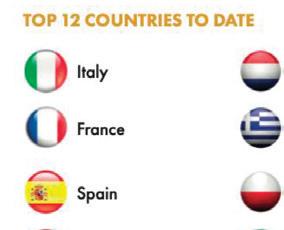



With an estimated attendance of 285,000 professionals, including 8,000 major buyers wielding a combined purchasing power of 50 billion euros, SIAL Paris offers unparalleled visibility and business opportunities on the global stage. Moreover, the event serves as a cornerstone of culinary diplomacy, with over 100 official delegations expected to grace the occasion.
KEY FIGURES
• 83% of purchasers agreed to transactions on-site or after the SIAL
• 9/10 visitors consider the SIAL strategic for their companies
• More than 400,000 products exhibited and 7,500 exhibitors expected
www.globalretailmag.com 75
www.sialparis.com/en
TRADE FAIRS
MARCA BY BOLOGNAFIERE 21ST EDITION IN THE PIPELINE
Additional Day Added for Pre-Arranged B2B Meetings
15 – 16 JANUARY 2025
BOLOGNA, ITALY
With over 20,000 trade visitors, 1,100 exhibiting companies, 22 retailer chains, 7 halls, and more than 250 hosted buyers from 30 countries, the event is expected to be even more successful in 2025.
The exhibition, which was organized in collaboration with ADM - Associazione Distribuzione Moderna, exceeded all expectations in terms of quality and quantity during its last edition. The event showcased the best of Made in Italy, both in food and non-food offerings. The conference and observatories held at the exhibition attracted highprofile speakers and institutional presences, demonstrating a clear drive towards internationalization.
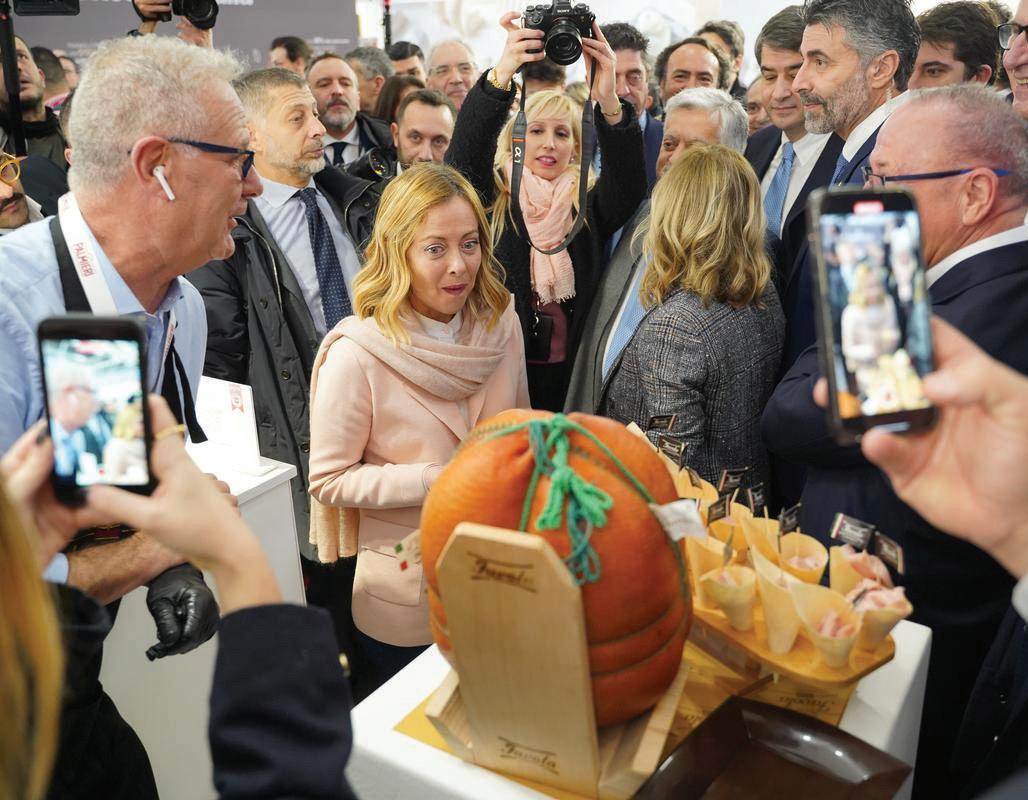


One of the new innovations that has been announced is the addition of an extra day, Tuesday January 14th, exclusively dedicated to B2B meetings between exhibiting companies and international buyers. This is in addition to the two days already scheduled for Wednesday January 15th and Thursday January 16th.
Also confirmed is the general layout of the event with its two main exhibition areas, Food and Non Food. The thematic formats, Marca Fresh and Marca Tech, will also return. Packaging, logistics, raw materials, ingredients, technology and services: at its 11th edition Marca Tech will showcase intermediate goods for the Private Label supply chain, offering an opportunity for manufacturers and retailers to discover the latest trends for innovation and sustainable operations.
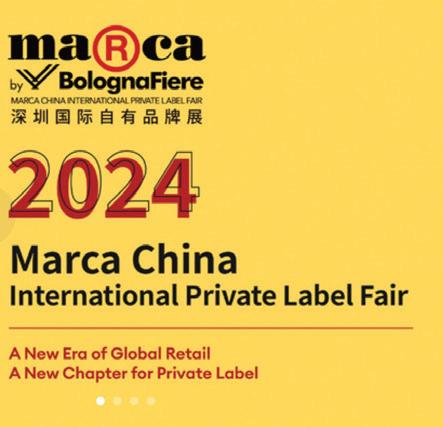
Next Stop, Marca China
In addition to the preview on January 14th, BolognaFiere has implemented several actions aimed at further boosting the internationalisation of the event, thereby ensuring the presence of an increasing number of international chains – with 250 hosted buyers arriving from 30 countries in 2024 – while facilitating the entry of Italian companies into foreign markets, initiating collaborations between manufacturers, brand owners, and retailers, and fostering the broader development of the private label industry.
The 3rd edition of Marca China will kick off at the Shenzhen Convention & Exhibition Center (Futian) from June 26th to 28th, 2024. With an exhibition area of 20.000 square metres, the event will bring together 400 exhibiting companies and is set to host about 20 forums and events, welcoming over 10.000 buyers and trade visitors. Focusing on key sectors for Private Label, the exhibition will give wide space to the latest consumer trends such as health, organic and packaging design. A significant innovation of this edition will be the presence of a dedicated area for the pet sector, aimed at providing new stimuli to the market.
www.marca.bolognafiere.it
76 GLOBAL RETAIL BRANDS / MAY 2024 TRADE FAIRS
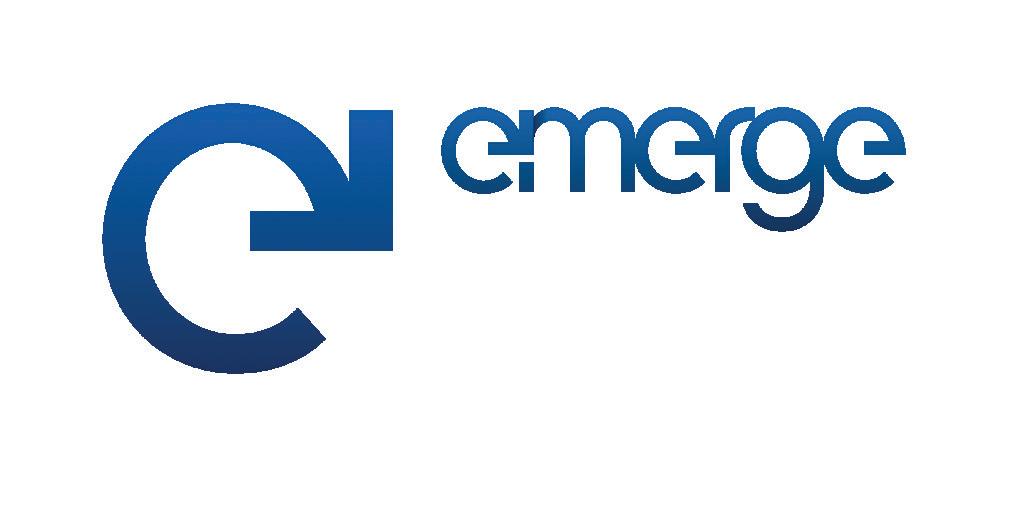
At Emerge, we are focused around two simple client objectives, which are at the heart of everything we do. FOR SUPPLIERS Looking to expand and differentiate their business or take new innovations to market FOR RETAILERS Wanting to build a unique roadmap and actionable tactics for Private Brand greatness CALL US We would love to start a conversation with you
Perry Seelert, Partner; Mark Dickinson, Partner
529 3668 1. 2.
www.emergefromthepack.com
Perry@emergefromthepack.com Mark@emergefromthepack.com +1 203
COSMOPROF NORTH AMERICA RETURNS TO MANDALAY BAY CONVENTION CENTER IN LAS VEGAS
After a triumphant inaugural edition in Miami and a landmark 20th-anniversary celebration, Cosmoprof North America (CPNA) is thrilled to announce its return to the Mandalay Bay Convention Center in Las Vegas.
23 – 25 JULY 2024
LAS VEGAS
Scheduled to take place from July 23 – 25, 2024, CPNA promises an unparalleled showcase of innovation, networking opportunities, and educational insights for the beauty industry.
The 21st edition arises as the beauty sector rebounds with a notably robust performance in 2023, distinguishing it as the sole U.S. industry within general merchandise retail categories to achieve positive year-over-year unit sales growth, according to Circana.
Following two editions at an alternate venue, CPNA returns to Mandalay Bay Convention Center, a beloved venue known for fostering collaboration and connection. The move, a result of popular demand, allows exhibitors and attendees to network, socialize, and rest all in one place.
Exhibitors
The exhibition hall will feature an extensive array of finished products across skincare, makeup, hair, nails, and fragrance categories, alongside Cosmopack, dedicated to the entire beauty supply chain,



showcasing primary and secondary packaging, private label solutions, machinery, ingredients, formulation, and contract manufacturing solutions. Returning favorites include the curated special areas - Discover Beauty, Discover Black-Owned Beauty, Discover Green, and The Beauty Vanities, highlighting emerging brands and industry trends.
Special Programs
Cosmopack North America Awards in collaboration with global trend agency BEAUTYSTREAMS, providing unparalleled recognition for innovative brands and products.
Education
One of the hallmarks of CPNA is its commitment to education, with CosmoTalks and Cosmopack Education offering valuable insights from Csuite executives and industry thought leaders on retail, trends, and the beauty supply chain. This is complemented by the exclusive Entrepreneur Academy, a dynamic one-day conference designed to equip beauty entrepreneurs with essential tools and knowledge to thrive in the industry. Esteemed speakers include Larissa Jensen, Vice President, Beauty Industry Advisor at Circana; Ali Kole, Head of Premium Beauty at Amazon; James Manso, Beauty Market Editor at WWD and Beauty Inc.; and Dr. Luke Maxfield and Dr. Muneeb Shah, Board Certified Dermatologists and Co-Hosts of Doctorly.
Exclusive special programs such as the Buyer Program- hosting retailers such as Bleu Beauty, Bloomingdales, Coupang, D’Mujeres, Ecosmetics, Heinemman, HMart, Holt Renfrew, Icsitum, Macy’s, SpaceNK, and Well.Ca, and hosting brands such as Clinique, Jane Iredale, Revlon, Summer Fridays, and Tula - will make a comeback. Also returning are the CosmoTrends and the prestigious Cosmoprof and www.cosmoprof.com

78 GLOBAL RETAIL BRANDS / MAY 2024 TRADE FAIRS
• THE LEADING B2B BEAUTY EVENT IN THE AMERICAS, DEDICATED TO ALL SECTORS OF THE INDUSTRY
• LAS VEGAS
• RETURNING TO MANDALAY BAY CONVENTION CENTER
• JULY 23 – 25, 2024
• COSMOPROFNORTHAMERICA.COM
• REGISTER NOW!


• MIAMI MIAMI BEACH CONVENTION CENTER
• JANUARY 21 - 23, 2025
A new world for beauty Bologna, Hong Kong, Las Vegas, Mumbai, Bangkok, Miami
Organizer – USA Beauty LLC
2024 edizione 17a rapporto Bio Bank edizione 7a Focus Bio Bank 2024 Supermercati & Specializzati Browse them online at issuu.com/biobank your vision on organic bio bank digital reports biobank.it





tuttofood.it tuttofood@fiereparma.it follow us on
ADVERTISING INDEX I NEXT ISSUE
Biobank / 80
Certified Origins / 33
Cosmo North America / 79
DEK (Deutsche Extrakt Kaffee) / 15
Emerge / 77
Frostkrone Food Group / 35
Global Tissue Group / 2 & 3, Back Cover
ITA (Italian Trade Agency) / 5
La Doria S.p.A / 37
LeBonta srl / 6 & 7
Lucart S.p.A / 13 & 39
Lucid Studios / 61
Marca by Bolognafiere / 16 & 17
MBD (Marketing by Design) / 19
PLMA Chicago Trade Show / 9
Prof. Consulting Group / 23
RSPO (Roundtable on Sustainable Palm Oil) / 67
Seneca Foods / 11
Shanghai Hutchison Whitecat Co. Ltd / 45
Tuttofood Milano 2025 / 81
Valsa Group / 43
Velocity Sustainability Conference / 83
V Label Italia / 41
Next Issues...
OCTOBER 2024
SIAL/Vertex
AD CLOSE: 1 September
NOVEMBER 2024
PLMA Chicago
AD CLOSE: 1 October

ADVERTISING INQUIRIES
EUROPE
Ms. Luisa Colombo
Global Retail Brands Via F.Baracca nr.4/9 40033 Casalecchio di Reno Bologna, ITALY luisa@globalretailmag.com
Ms. Sabine Geissler Italy / Germany Greentaste.it s.geissler@greentaste.it
Mr. Jacco van Laar Brand Ambassador jacco@globalretailmag.com
AMERICAS, ASIA, AUSTRALIA, AFRICA
Mr. Phillip Russo
Global Retail Brands magazine
240 Central Park South, Suite 9G New York, NY 10019 USA Tel. +1 917 743 6711 phillip@globalretailmag.com
www.globalretailmag.com

82 GLOBAL RETAIL BRANDS / MAY 2024

Step into the Future of Sustainability at the Velocity Sustainability Summit!
VELOCITY SUSTAINABILITY SUMMIT
OCTOBER 22-23, 2024
HYATT REGENCY | PHOENIX, ARIZONA
Mark your calendars for October 22-23, 2024, as the Hyatt Regency in Phoenix, Arizona, transforms into the epicenter of sustainable innovation. Join us for an immersive experience at the premier private brand sustainability event of the yearthe Velocity Sustainability Summit!
In its Fifth Edition, this summit is not just a gathering; it's a movement. Over the past five years, we've witnessed the undeniable truth: collaboration is key to achieving a greener future. The Velocity Summit is your call to action, your opportunity to be part of a collective industry effort driving meaningful change. THE EVENT WILL FEATURE RETAIL EXECUTIVES FROM WALMART, AMAZON & SPROUTS
















































































































































































































































 MARIA DUBUC President MBD
MARIA DUBUC President MBD












































































